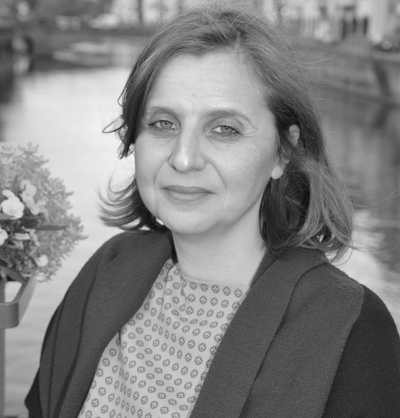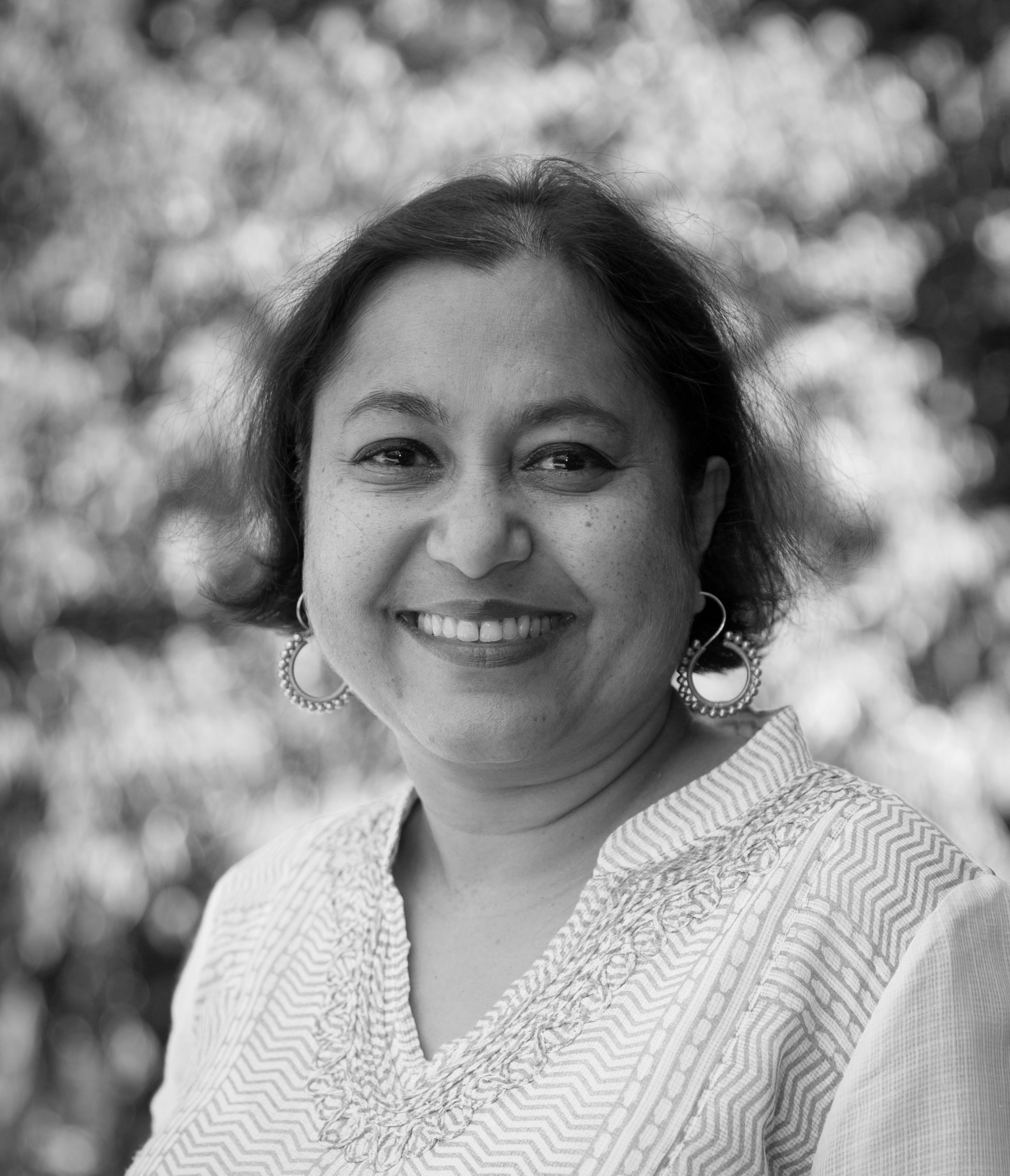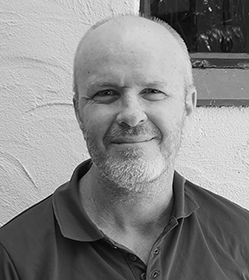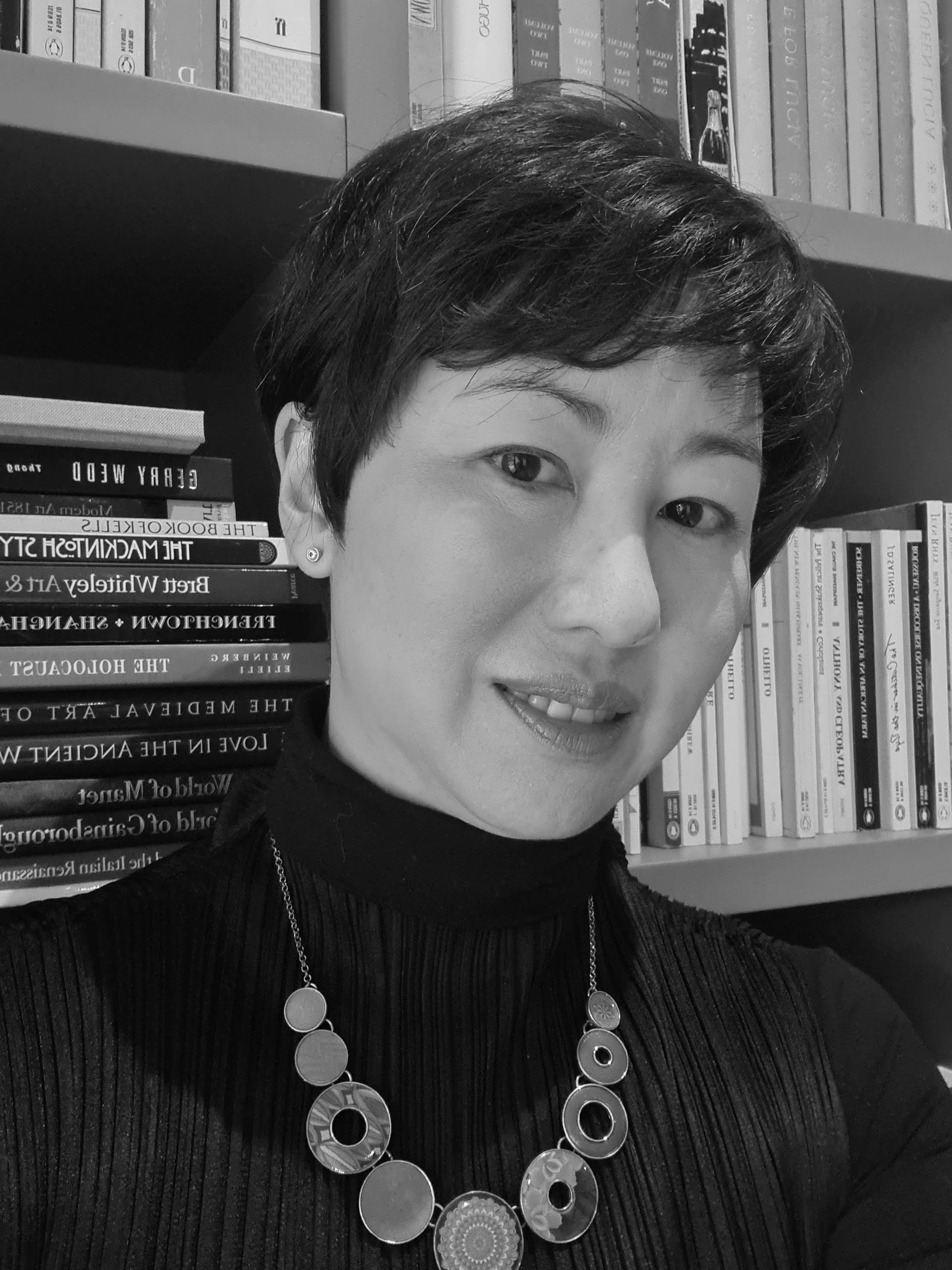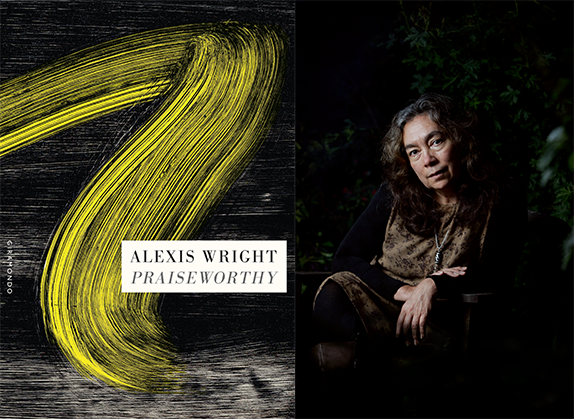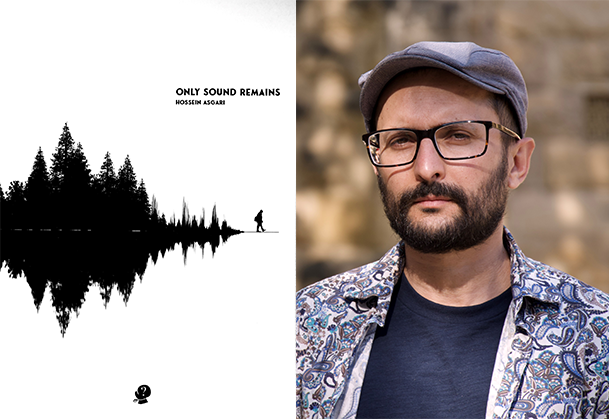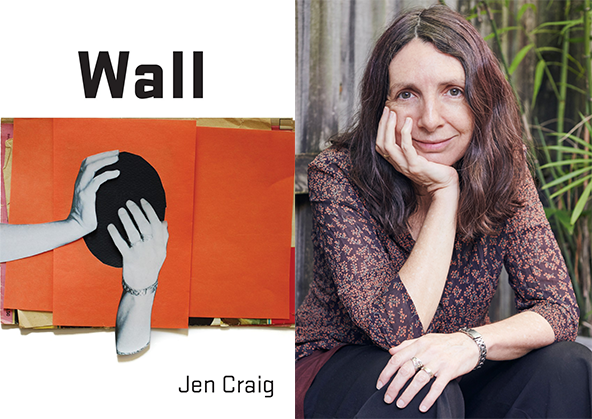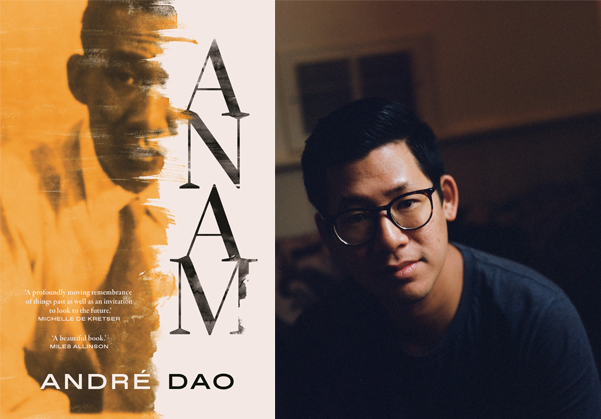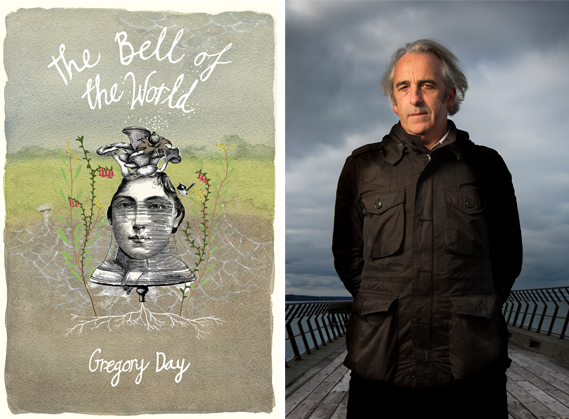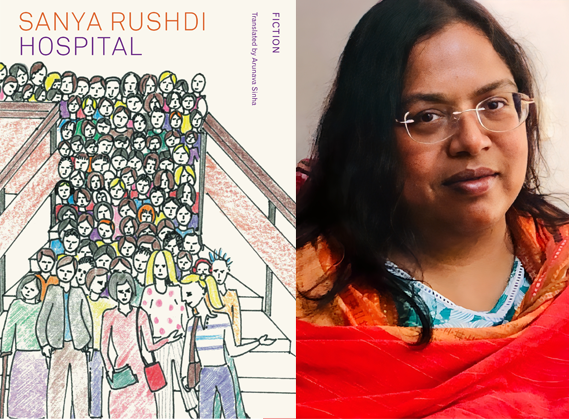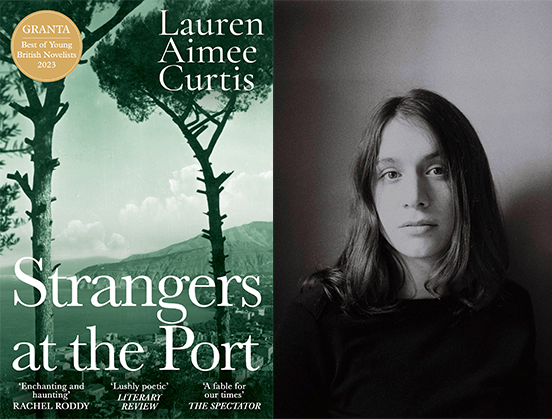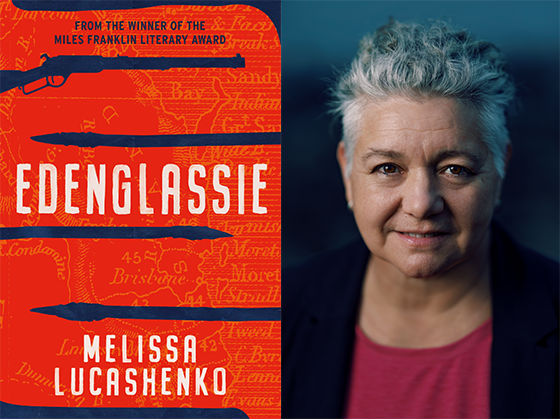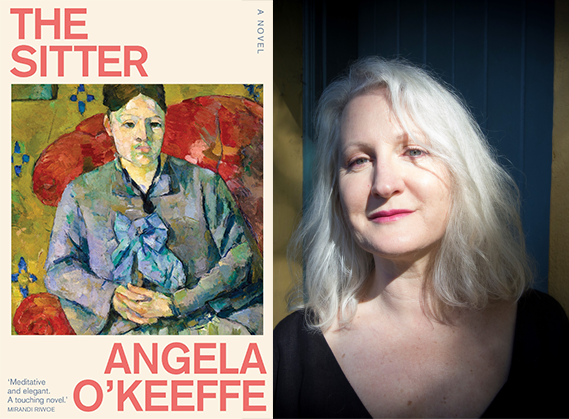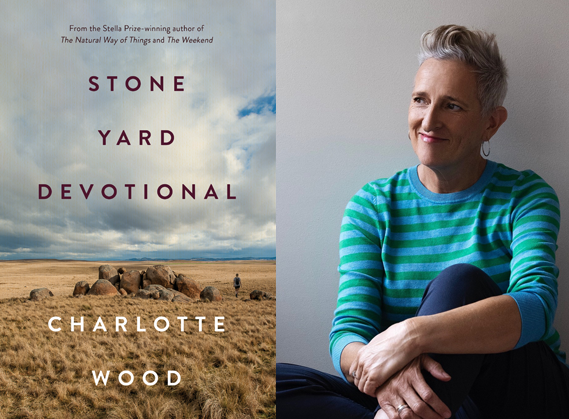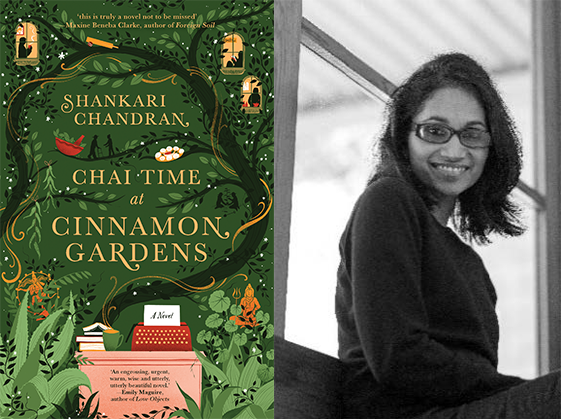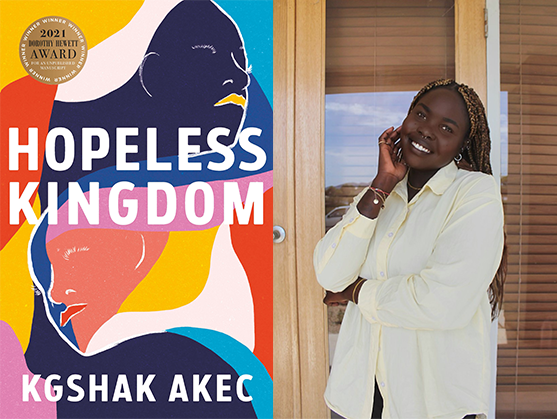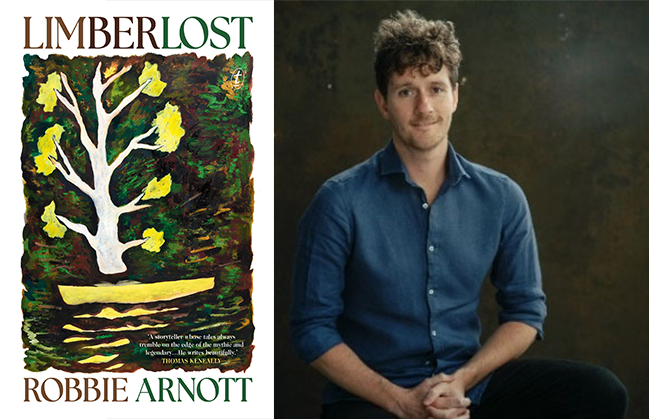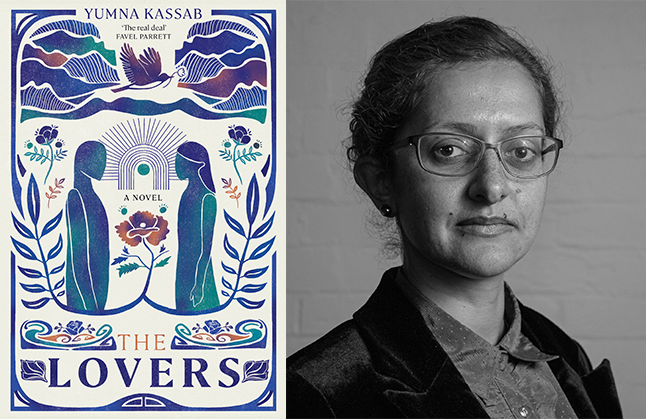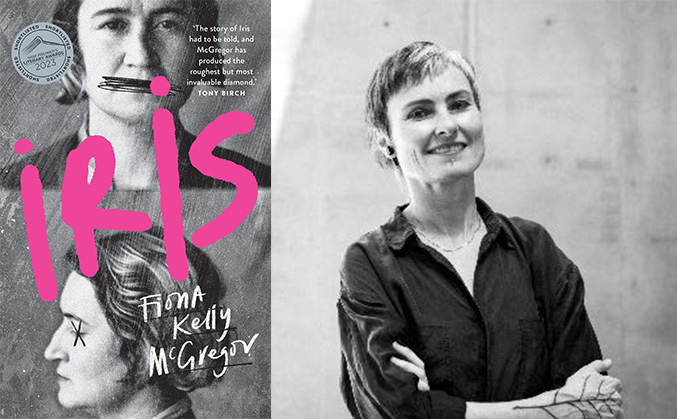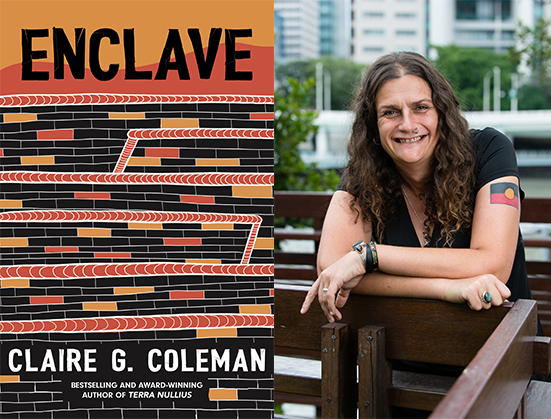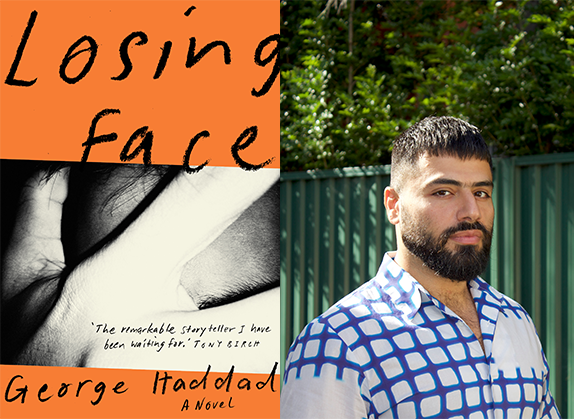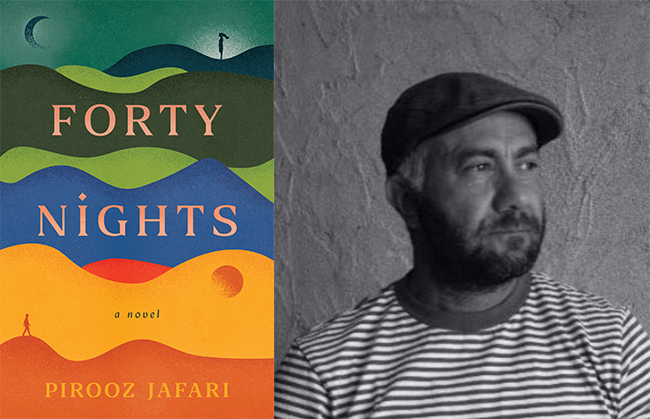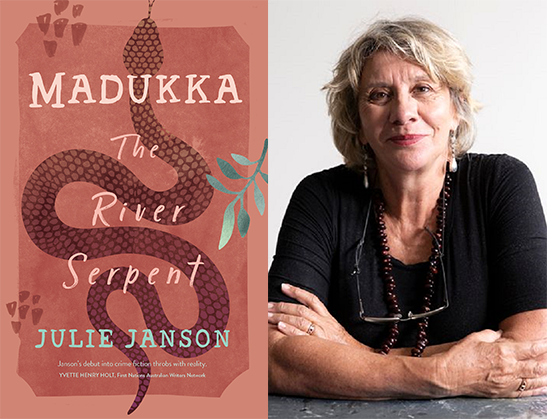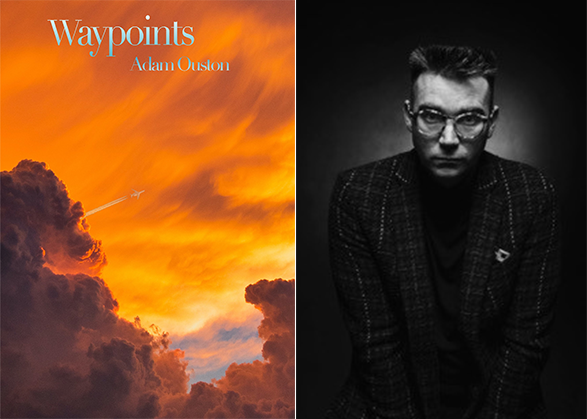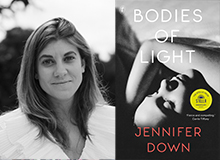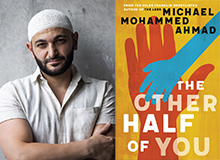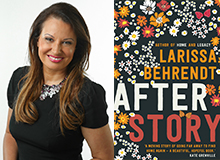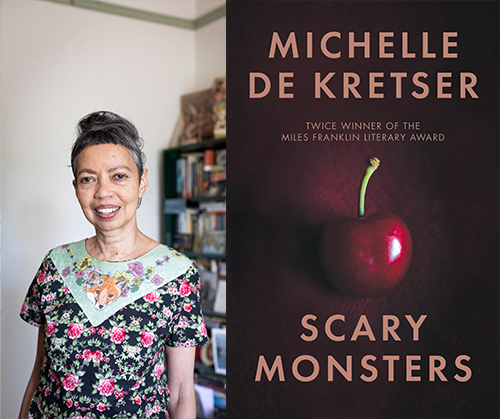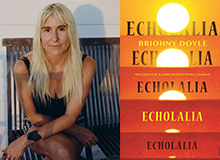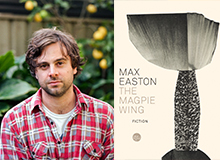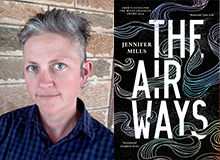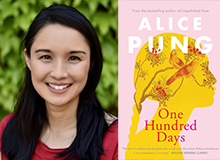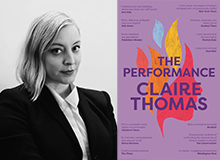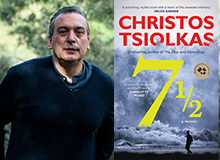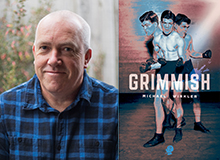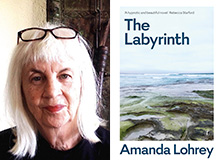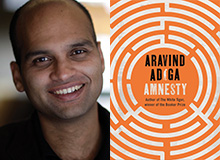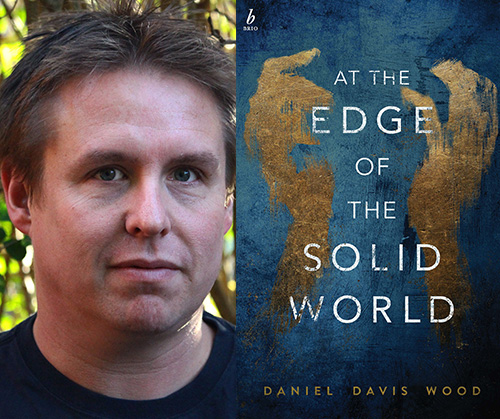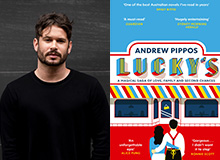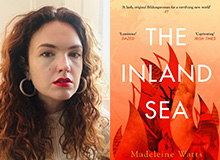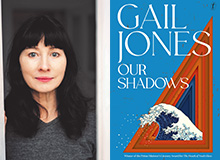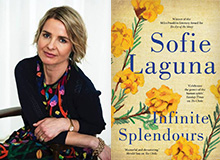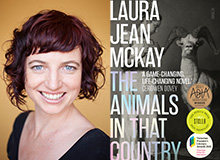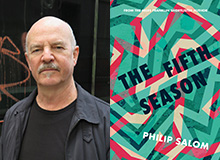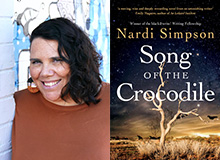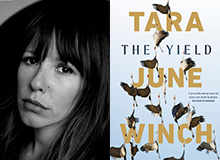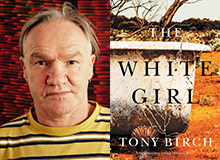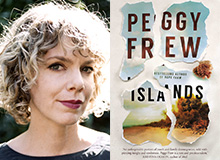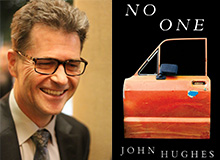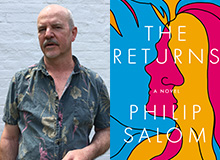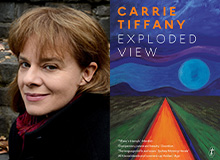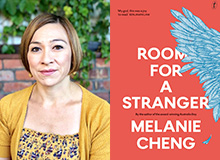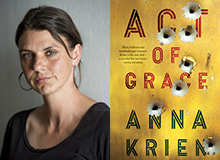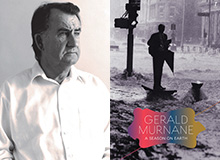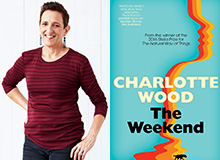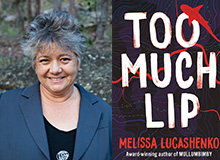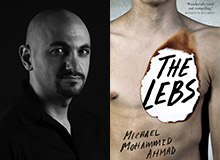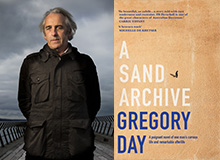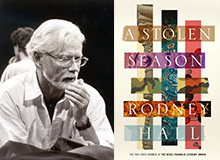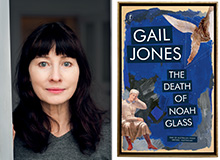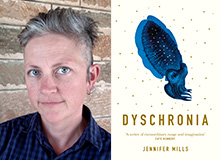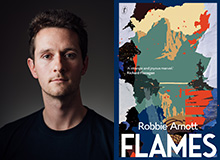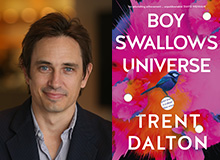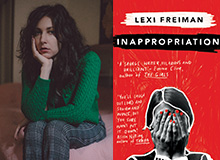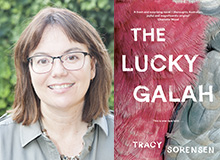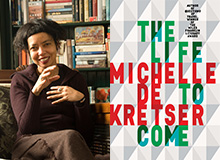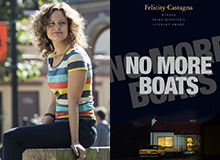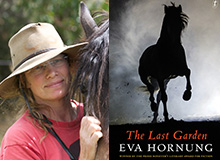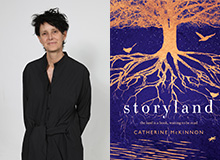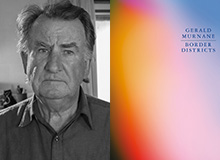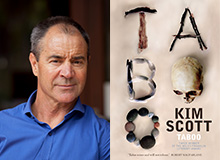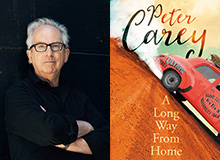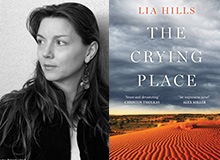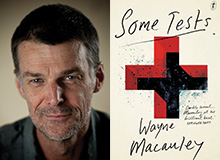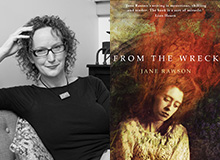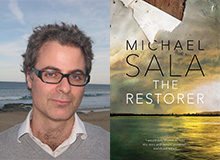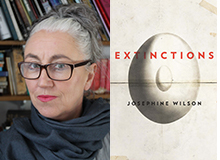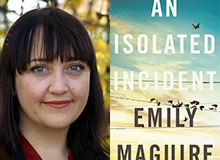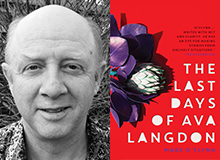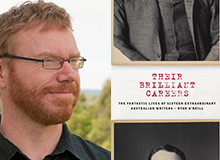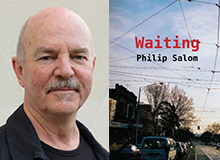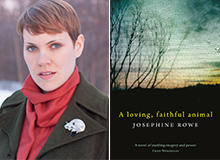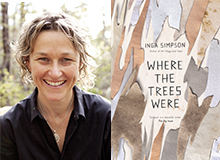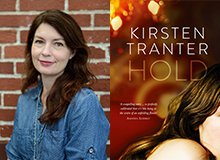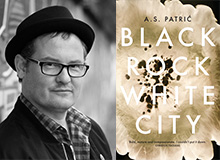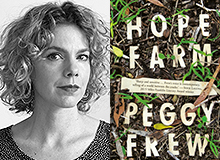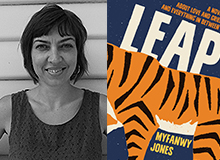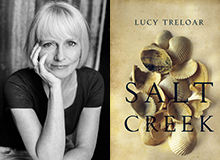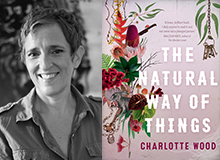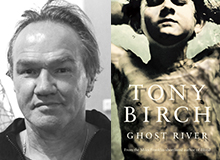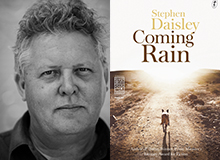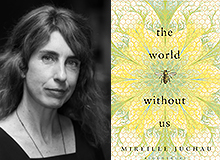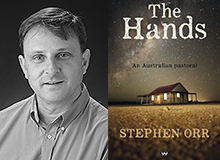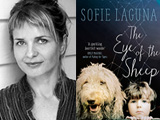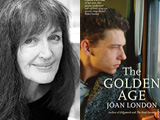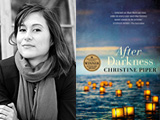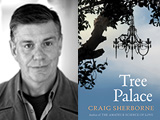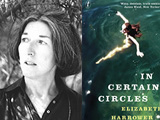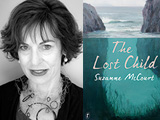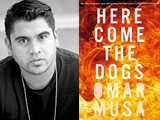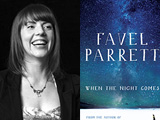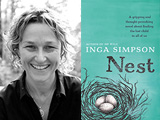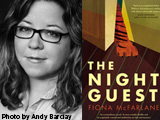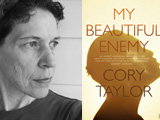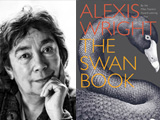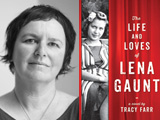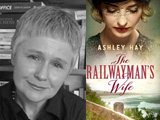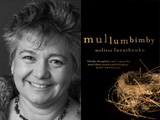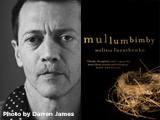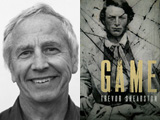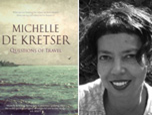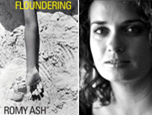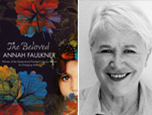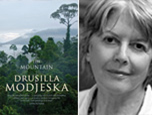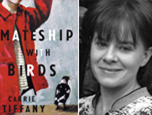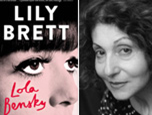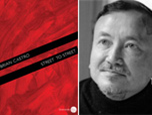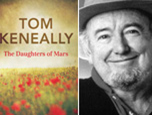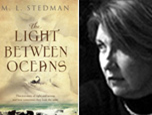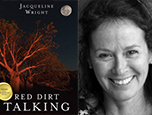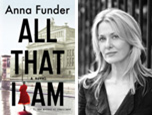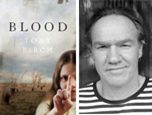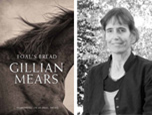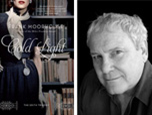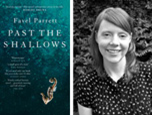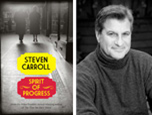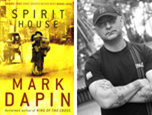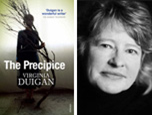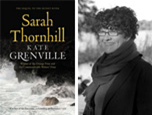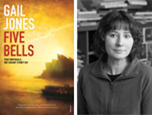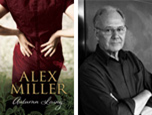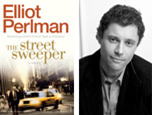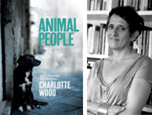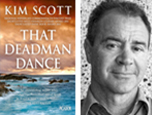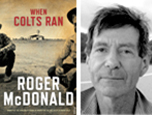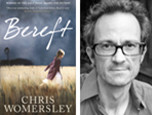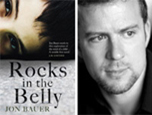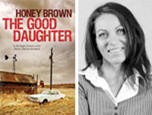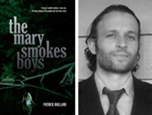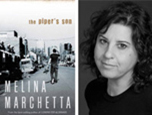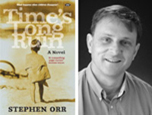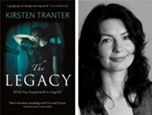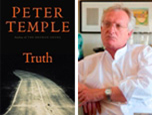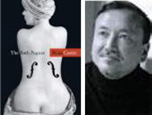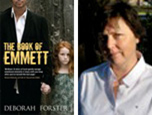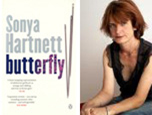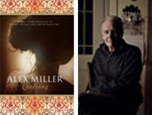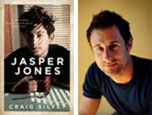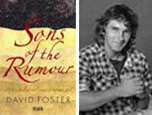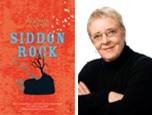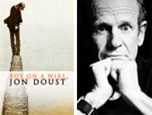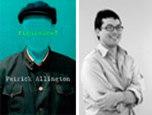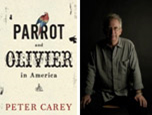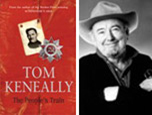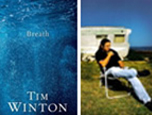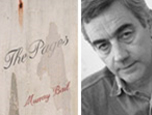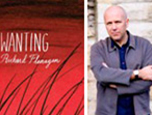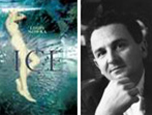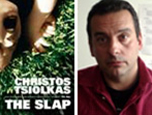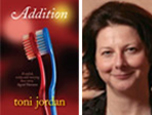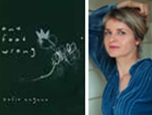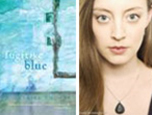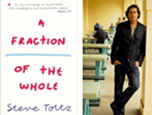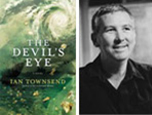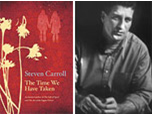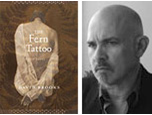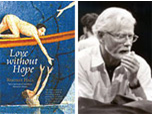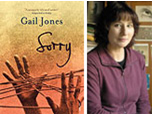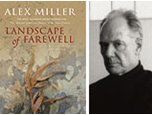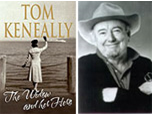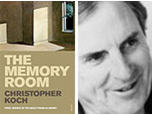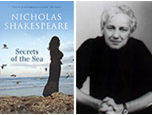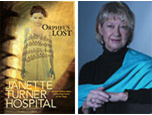Please try the following to find what you’re looking for:
- Check your spelling
- Try different words or word combinations (E.g. "fund form")

Miles Franklin Literary Award
Judges for the 2025 Award
|
|
Richard Neville is a Mitchell Librarian at the State Library of NSW and Chair of the Judging Panel.
|
|
Jumana Bayeh is Associate Professor at Macquarie University in Sydney. Her research sits at the intersection of postcolonial research and Arab studies, especially the Arab region and its diaspora. She has a keen interest in exploring how literature can make and unmake worlds, especially fiction by migrant or diasporic writers. She is the author of The Literature of the Lebanese Diaspora (2015), and co-editor of several collections including a special issue on “Arabs in Australia” in Mashriq & Mahjar (2017) and Writing the Global Riot: Literature in a Time of Crisis (2023).
|
|
Dr Mridula Nath Chakraborty is the National Convenor of the Asian Australian Studies Research Network (AASRN). She works on the unceded lands of the First Peoples of the Kulin nation on which Monash University operates. With an accidental academic career in literary studies spanning three continents, Mridula brings her keen interest in writing and story-telling to her scholarly work as well as public sphere discussions. Her specialisation is in postcolonial feminist studies, diasporic and national Asian and African writing in English, multicultural and Indigenous narrativisation of settler colonial nations, and world literatures in translation.
|
|
Tony Hughes-d’Aeth is the Chair of Australian Literature at the University of Western Australia and a Fellow of the Australian Academy of the Humanities. His books include Like Nothing on this Earth: A Literary History of the Wheatbelt (UWAP, 2017), which won the Walter McRae Russell Prize for Australian literary scholarship, and Paper Nation: The Story of the Picturesque Atlas of Australasia (MUP, 2001), which won the Ernest Scott and WK Hancock prizes for Australian history, and Netflicks: Conceptual Television in the Streaming Era (UWAP, 2024). In 2019 he convened the annual Association for the Studies of Australian Literature (ASAL) Conference Perth. Tony is also the Director of the Westerly Centre, which publishes Westerly Magazine, a literary journal founded in 1956 and is the Chair of the Publishing Board of UWA Publishing.
|
|
Hsu-Ming Teo is Professor of Literature and Creative Writing, and the Head of the Department of Media, Communications, Creative Arts, Language, and Literature at Macquarie University. Her first novel Love and Vertigo won The Australian/Vogel Literary Award. Her second novel Behind the Moon was shortlisted for the NSW Premier’s Literary Awards. She has judged The Australian/Vogel’s Literary Award, the NSW Premier’s Literary Award, the NSW Premier’s History Prize, and the Man Asian Literary Prize, and served as a peer reviewer for ArtsNSW, CreateNSW, and the Australia Council for the Arts.
2024 Miles Franklin Literary Award
Alexis Wright - Winner
Praiseworthy
|
|
Author photo credit: Darren James
Biography:
Alexis Wright is a member of the Waanyi nation of the southern highlands of the Gulf of Carpentaria. The author of the prize-winning novels Praiseworthy, Carpentaria and The Swan Book, Wright has published three works of non-fiction: Take Power, an oral history of the Central Land Council; Grog War, a study of alcohol abuse in the Northern Territory; and Tracker, an award-winning collective memoir of Aboriginal leader, Tracker Tilmouth. Her books have been published widely overseas, including in China, the US, the UK, Italy, France and Poland. Wright has won a number of literary awards, including the Miles Franklin Literary Award for Carpentaria, and a Queensland Literary Award for Praiseworthy, which was also shortlisted for the Dublin Literary Award, one of the world’s richest literary prizes. She is the first author to win the Stella Prize twice – for Tracker in 2018, and for Praiseworthy in 2024. She held the position of Boisbouvier Chair in Australian Literature at the University of Melbourne, and was honoured with the title of Distinguished Professor at Western Sydney University. She is the inaugural winner of the Creative Australia Award for Lifetime Achievement in Literature.
Judge's comment:
Everything about Praiseworthy is expansive: its themes, its imagery, its vibrant demotic prose. The novel is at once an epic of classical proportions and a wild comedic romp. Set in a fictional town permanently enshrouded in a mysterious haze, the story takes a quirky Indigenous family and renders them in mythical terms. The patriarch, a crackpot entrepreneur and visionary called (among other things) Cause Man Steel, hatches a harebrained scheme to preempt impending environmental collapse by cornering the donkey market. The ructions this generates within the small community of Praiseworthy and his exasperated family develops into a monumental, swirling and often brilliantly funny narrative that grapples with the largest issues of our time: climate change, the internet, capitalism, the devastating consequences on Indigenous communities of colonialism and ongoing political paternalism. A stylistic tour de force, its tone capable of switching in an instant between the lyrical and the wickedly satirical, Praiseworthy triumphantly assesses its themes against the ultimate measures: the timelessness of Country and the indomitable spirit of Aboriginal Sovereignty.
Hossein Asgari (Finalist)
Only Sound Remains
|
|
Author photo credit: Benjamin Nicholls
Biography:
Hossein Asgari studied physics and creative writing. His short stories have appeared in The Saltbush Review, Overland, and The Suburban Review. His debut novel, Only Sound Remains is shortlisted for the Victorian Premier’s Literary Awards in 2024.
Judge's comment:
This is a powerful story of a complex relationship between a son, Saeed, and his father, Ismael, that reflects on life in Iran from the vantage point of Adelaide. At one level, this is a tale where a father recounts to his son details of his own life in pre-revolutionary and revolutionary Iran, his hopes for Iran’s future and the richness of Iran’s history. Ismael’s story is framed by his obsessive love for Forugh Farrohzad, the famed Iranian poet. Although Saeed is a conflicted listener, it is imperative that he hears his father’s story. At another level, then, this novel is also about sound, about listening after years of silence and, perhaps, wilful silencing about a past and a culture that has undergone dramatic upheaval, shaping the lives of ordinary Iranians like Ismael. This is what Saeed must come to terms with, and what readers are privy to via Hossein Asgari’s skilful narration. As a diaspora author, Asgari integrates Iranian literary forms, namely Farrohzad’s poetry and the story of Shahnameh, in the English language to reveal to his readers a unique dimension of the modern Australian story.
_______
Jen Craig (Finalist)
Wall
|
|
Author photo credit: Felicity Jenkins
Biography:
Jen Craig lives on Gundungurra and Darug lands in NSW. She is the author of three novels: Since the Accident (2009), Panthers and the Museum of Fire (2015), and most recently Wall (2023), which was simultaneously released in Australia and North America, and shortlisted for the Victorian Premier’s Literary Awards 2024. Her body of work features, among many published pieces of short and micro fiction, essays, and reviews, the opera libretto A Dictionary of Maladies, for Swiss composer Michael Schneider, which saw a concert production in Lenzburg, Switzerland, in 2005. Jen holds a doctorate on transgenerational trauma, writing, anorexia, and the gothic from Western Sydney University, and now works as a trauma-informed psychotherapist.
Judge's comment:
Written as a monologue, Jen Craig’s Wall is a masterful display of narrative control. The narrator describes returning to Sydney from England on the occasion of her father’s death. As she sorts through the mountain of junk crammed into his house, she has an idea for an art installation that will display these quotidian remnants of his existence. Rendered in long, fluent, perfectly controlled sentences, the novel moves seamlessly between present and past, at times approaching a stream of consciousness, as the narrator reflects on her father’s death, her battles with anorexia, her troubled time as a young art student and her subsequent artistic career. Her ambitious art project becomes analogous to the novel itself. In transforming the material remnants of her father’s life into an installation, the narrator is attempting to understand her own. Wall is a brilliant novel full of pathos, humour and deep introspection that asks us to consider how we make meaning from life’s material accretions, formative experiences, stray memories and emotional baggage.
_______
André Dao (Finalist)
Anam
|
|
Author photo credit: Leah Jing McIntosh
Biography:
André Dao is a Melbourne-based writer, editor and artist. His debut novel, Anam, won the 2021 Victorian Premier’s Literary Award for an Unpublished Manuscript. His writing has appeared in Meanjin, Sydney Review of Books, Griffith Review, The Monthly, The Lifted Brow, Cordite, The Saturday Paper, New Philosopher, Arena Magazine, Asia Literary Review and elsewhere.
Judge's comment:
Memory and memorialisation, the failure of remembering, the re-constructions of revolutions past, the continuing but inconclusive meanings of the past in the present and the augury of that which remains to be revealed: these are the compulsions of Anam. Written over a tortuous period of twelve years, the novel traces the journey of a grandson discovering that his grandfather was imprisoned by the Communist government in Chi Hoa. A grandfather who enters the annals of Amnesty International by virtue of being a Catholic detained for 3653 days without being charged or tried. A quirk of history sees the grandson inherit an unmediated Vietnamese diasporic aspiration in Australia, embarking upon a doctorate in law. The narrator’s quest to find out this family history starts from the south-eastern suburbs of Melbourne and takes him to Boissy, France; Cambridge, England and Hanoi, Vietnam. It leads him to try and excavate the meaning of place names, and the meaning of names in places. But Anam is not just a metafictional treatise on the glorious failure of writing pursuits, whether it be in service of the identitarian or the doctrinal. It is about the here and now of returns: to a family whose legacy one bears, and to the future in one’s children. In the process, Anam sweeps the world-in-making for our times, redraws maps and reinvents what fiction can do, lest we forget.
_______
Gregory Day (Finalist)
The Bell of the World
|
|
Author photo credit: Simon O'Dwyer
Biography:
Gregory Day is a writer and musician from the Eastern Otways region of southwest Victoria, Australia. He lives on Wadawurrung tabayl. Gregory’s writing has won many awards, including the Australian Literature Society Gold Medal. In 2019 his novel A Sand Archive was shortlisted for the Miles Franklin Award. In 2020 Gregory received the prestigious Patrick White Award for his ongoing body of work.
Judge's comment:
Bell of the World is a novel that defamiliarises the world; a beautifully strange cabinet of curiosities, sublimely crafted by a writer with a dazzling mastery of words—the meaning, sound, sight and texture of words—and the plenitude of silence. Set in early twentieth century regional Victoria, the novel recounts Sarah Hutchison’s return from Europe to her uncle Ferny’s property, Ngangahook Run. Conflict arises when the locals wish to erect a bell for the town. Day makes us aware that colonisation involves an aural component. The bell intended to proclaim the importance of the European town would instead toll a knell foreboding environmental disruption and degradation. And, as Ferny recognises, it would ring out ‘our moral, not to mention legal illegitimacy as the scions of settlers’ on stolen Wadawurrung country. In resonance with our age of disruptions and mashups, objects, events, and storytelling itself are transformed as the most unlikely things are juxtaposed and made new, made fresh. This neo-historical novel literally re-members and repackages the past for contemporary purposes, one of which is to urge us to listen, and to grasp our embedded selves within the rich interconnectedness of the world.
_______
Sanya Rushdi (Finalist)
Hospital
|
|
Biography:
Sanya Rushdi was born in Bangladesh and studied the biological sciences and psychology at Monash University, the University of Sydney and Deakin University. Hospital, her first novel, was shortlisted for the 2024 Stella Prize. She currently lives in Melbourne, Australia.
Judge's comment:
Hospital is a fictional flourish of poetic utterance that is, in turns, affecting and absorbing in its disquisition upon the nature of psychosis. Based on the experiences of the Melbourne-based Bengali writer, the work is an illustration of what the narrator identifies as “someone’s picture turning out superbly, accurately representing a social system.” Hospital takes us through the corridors of treatment regimes of psychotic illness, while evoking the philosophical and political underpinnings of what constitutes the individual and the social. As the narrator navigates her way through these communities, she brings to us a world peopled with every rung of society. The short narrative is autofiction and testimonial, delineating the gap between normative family structures and friendships that are formed in medical establishments. The chronicle makes us wonder about the slippage between reality and fantasy, thought and language, humour and pain, defeat and joy. Ultimately, it is a feat of imagination undertaken by an utterly original voice rooted in contemporary Australia’s multicultural, multilingual ethos. Originally written in the author’s mother tongue, the book was translated by Arunava Sinha and retains the sparse economy and piercing psychotic insights of the source text.
_______
Lauren Aimee Curtis
Strangers at the Port
|
|
Author photo credit: Marie Rose Curtis
Biography:
Lauren Aimee Curtis was born in Sydney. Her first book, Dolores, was shortlisted for the Readings Prize, the UTS Glenda Adams Award for New Writing, and was selected as a New Statesman Book of the Year. She has written for Granta, The White Review and Sydney Review of Books, among other publications. In 2023, she was named one of Granta’s Best Young British Novelists.
Synopsis:
Giulia is ten. She lives on the greenest island in a volcanic archipelago. She has never left. Her best friend, apart from her older sister Giovanna, is a donkey. Giulia and Giovanna’s days on the island are shaped by ritual, community, superstition and isolation.
Until the men arrive. And a foreign yacht anchors at the port. And the vines begin to fail. And everything changes.
From the author of Dolores, Strangers at the Port is an exquisite, enchanted, atmospheric novel about myth and memory, suspicion and dislocation, emigrants and explorers.
_______
Melissa Lucashenko
Edenglassie
|
|
Author photo credit: Glenn Hunt
Biography:
Melissa Lucashenko is a Goorie (Aboriginal) author of Bundjalung and European heritage. Her first novel was published in 1997 and since then her work has received acclaim in many literary awards. Killing Darcy won the Royal Blind Society Award and was shortlisted for an Aurealis award. Her sixth novel, Too Much Lip, won the 2019 Miles Franklin Literary Award and the Queensland Premier’s Award for a work of State Significance. It was also shortlisted for the Prime Minister’s Literary Award for Fiction, the Stella Prize, two Victorian Premier’s Literary Awards, two Queensland Literary Awards and two NSW Premier’s Literary Awards. Melissa is a Walkley Award winner for her non-fiction, and a founding member of human rights organisation Sisters Inside. She writes about ordinary Australians and the extraordinary lives they lead. Her latest book is Edenglassie.
Synopsis:
In this epic novel set in Brisbane when First Nations people still outnumber the colonists, award-winning Goorie author Melissa Lucashenko tells two extraordinary stories set five generations apart.
When Mulanyin meets the beautiful Nita in Edenglassie, their saltwater people still outnumber the British. As colonial unrest peaks, Mulanyin dreams of taking his bride home to Yugambeh Country, but his plans for independence collide with white justice.
Two centuries later, fiery activist Winona meets Dr Johnny. Together they care for obstinate centenarian Granny Eddie, and sparks fly, but not always in the right direction. What nobody knows is how far the legacies of the past will reach into their modern lives.
In this brilliant epic, Melissa Lucashenko torches Queensland’s colonial myths, while reimagining an Australian future.
_______
Angela O'Keeffe
The Sitter
|
|
Author photo credit: Camille Walsh
Biography:
Angela O’Keeffe grew up with nine siblings on a farm in the Lockyer Valley, Queensland. She completed a Master of Arts in Writing at UTS, and her first novel, Night Blue, was shortlisted for the UTS Glenda Adams Award for New Writing and the Prime Minister’s Literary Awards. She was awarded the 2023 Varuna Eleanor Dark Fellowship.
Synopsis:
A highly original work narrated by Hortense Cezanne, the wife of the celebrated artist, as she witnesses an author in 2020 write a book about her life.
Paris, 2020. A writer is confined to her hotel room during the early days of the pandemic, struggling to finish a novel about Hortense Cezanne, wife and sometime muse of the famous painter. Dead for more than a century, Hortense has been reawakened by this creative endeavour, and now shadows the writer through the locked-down city. But Hortense, always subject to the gaze of others, is increasingly intrigued by the woman before her. Who is she and what event hides in her past?
Heartbreaking and perfectly formed, The Sitter explores the tension between artist and subject, and between the stories told about us and the stories we choose to tell.
_______
Charlotte Wood
Stone Yard Devotional
|
|
Author photo credit: Carly Earl
Biography:
Charlotte Wood is the author of ten books - seven novels and three non-fiction works. She has won the Stella Prize and the Prime Minister's Literary Award, among others, and her features and essays have appeared in The Guardian, New York Times, Sydney Morning Herald, The Monthly, Saturday Paper and others. She lives in Sydney.
Synopsis:
A woman abandons her city life and marriage to return to the place of her childhood, holing up in a small religious community hidden away on the stark plains of the Monaro.
She does not believe in God, doesn't know what prayer is, and finds herself living this strange, reclusive life almost by accident. As she gradually adjusts to the rhythms of monastic life, she finds herself turning again and again to thoughts of her mother, whose early death she can't forget.
Disquiet interrupts this secluded life with three visitations. First comes a terrible mouse plague, each day signalling a new battle against the rising infestation.
Second is the return of the skeletal remains of a sister who left the community decades before to minister to deprived women in Thailand - then disappeared, presumed murdered.
Finally, a troubling visitor to the monastery pulls the narrator further back into her past.
With each of these disturbing arrivals, the woman faces some deep questions. Can a person be truly good? What is forgiveness? Is loss of hope a moral failure? And can the business of grief ever really be finished?
A meditative and deeply moving novel from one of Australia's most acclaimed and best loved writers.
_______
2023 Miles Franklin Literary Award
Shankari Chandran - Winner
Chai Time at Cinnamon Gardens
|
|
Biography:
Shankari Chandran was raised in Canberra, Australia. She spent a decade in London, working as a lawyer in the social justice field. She eventually returned home to Australia, where she now lives with her husband, four children and their cavoodle puppy, Benji. She has published three works of fiction, Chai Time At Cinnamon Gardens, Song of the Sun God and The Barrier.
Judges' comments:
A fifty-year old library set on fire in an act of biblioclasm. An ancient archive sought to be erased, a people ethnically cleansed. Another fifty years later, a serene nursing home in suburban Sydney is caught up in the wake of this violent history and its complex aftermath. Shankari Chandran’s third novel, Chai Time at Cinnamon Gardens, introduces us to the flotsam and jetsam of Sri Lanka’s civil war refugees, who have come to rest in Australia, only to encounter a similar impulse towards irrational hatred that seeks to stamp out any trace of difference in this vast multicultural land. Intellectuals Maya and Zakhir, having crossed age-old lines of difference in a forbidden love that cannot bear the weight of history, flee to Australia to start life anew. Here too, unable to suppress their revolutionary spirits, they become inadvertent anti-colonial activists when an impulsive act has catastrophic consequences. Caught in the maelstrom is their daughter, Anji, who now runs a nursing home with husband Nathan, and their long-time friend, Gareth, local councillor who is himself battling issues on the home front. The novel reminds us that the personal is often political, and that unaddressed trauma of the past haunts us in the present. It treads carefully on contested historical claims, reminding us that horrors forgotten are horrors bound to be repeated, and that the reclamation and retelling of history cannot be undertaken without listening to the story-tellers amongst us.
Kgshak Akec (Finalist)
Hopeless Kingdom
|
|
Author photo credit: Ashot Valentin
Biography:
Kgshak Akec is a South-Sudanese writer, performing artist, storyteller, and a lover of words. Since the moment she learned how to write in English at the age of six, Kgshak has been writing out the stories that live inside her mind. As a migrant and non-native English speaker, Kgshak is fascinated by the unspoken words and unsung songs of the day-to-day, she finds herself drawn to stories that challenge perception and go against the grain of the expected while also being grounded in truth. Her debut novel Hopeless Kingdom (UWAP 2022), inspired by her own journey of migrating to Australia, explores the relationship of a mother and daughter as they settle, break, evolve, and adapt in new lands through multiple heartaches and triumphs.
Judges' comments:
In her impressive and expansive debut Hopeless Kingdom, Kgshak Akec masterfully weaves a story about a family searching for refuge and belonging. The story deftly unfolds through the interchanging voices and perspectives of eight-year-old Akita and her mother, Taresai, who travel from Sudan to Cairo, Sydney, and eventually a new home in Geelong. Grounded in Akec’s own experience of migration from Africa to Australia, Hopeless Kingdom honours deeply the daring agencies of women and girls who attempt to hold their families together during life-altering periods of upheaval and displacement. Criss-crossing boundaries of time and place, intergenerational trauma travels with Akita’s family to Geelong, and viscerally reverberates as the noisy backdrop to their new life in Australia, their experiences of racism, complex family relationships and the unending love for family who, in their grief and despair, cause great pain. Akec’s astute and powerful storytelling explores complex narratives of resilience and precariousness, and immerses the reader into the lived experiences of young women who attempt to determine their lives for themselves and free themselves from bounds of class, gender and race. Sounding with humanity and hope, Hopeless Kingdom is a novel of national significance which gives voice to silent memories of migration and ultimately transforms the Australian literary landscape.
_______
Robbie Arnott (Finalist)
Limberlost
|
|
Author photo credit: Mitch Osborne
Biography:
Robbie Arnott’s acclaimed debut, Flames (2018), won a Sydney Morning Herald Best Young Novelist award and a Tasmanian Premier’s Literary Prize, and was shortlisted for a Victorian Premier’s Literary Award, a New South Wales Premier’s Literary Award, a Queensland Literary Award, the Readings Prize for New Australian Fiction and the Not the Booker Prize. His follow-up, The Rain Heron (2020), won the Age Book of the Year award, and was shortlisted for the Miles Franklin Literary Award, the ALS Gold Medal, the Voss Literary Prize and an Adelaide Festival Award. He lives in Hobart.
Judges' comments:
Limberlost is a quiet, lyrical novel of subtle complexity. Set largely over one summer, with fifteen-year-old Ned West trapping rabbits on his father’s Tasmanian apple orchard and waiting anxiously for his brothers to return from the war, the narrative glides back and forth through time exploring questions of responsibility, care, innocence and experience. In this his third novel, Robbie Arnott continues to explore the often-fraught connections between the human and non-human worlds. Ned’s adolescent playground is one of plenitude and beauty yet also violence: ‘dark-eyed wallabies and fat-faced possums, flickering wrens and eagle-sized ravens’ inhabit forests of ‘tall ferns…bright fungus [and] thick-trunked trees.’ The river, both ‘wakening’ and ‘night-dark’, teems with life and fearful possibilities. Ned, inarticulate, empathic, moves through this landscape killing, maiming, loving and healing, all the while unaware of his privilege. Remaining faithful to the time in which his novel is set, Arnott draws a sympathetic portrait of a character steeped in the majesty of his landscape yet seemingly oblivious to the ways in which he contributes to the environmental destruction of Country. Limberlost is a moving coming-of-age story, a celebration of family bonds and a stunning love song for a rapidly disappearing natural world.
_______
Jessica Au (Finalist)
Cold Enough for Snow
|
|
Biography:
Jessica Au is a writer based in Melbourne. She has worked as deputy editor at the quarterly journal Meanjin and as a fact-checker for Aeon magazine. Her novel, Cold Enough for Snow (2022), is the inaugural winner of The Novel Prize and was published by Giramondo, New Directions and Fitzcarraldo Editions, with translation in eighteen languages.
Judges' comments:
Based around a finely observed account of a mother and daughter holidaying in Japan, Cold Enough for Snow is an elegant short novel that reflects on the twinned mysteries of life and art. The calm surface of Jessica Au’s superb prose creates a languid, dreamy atmosphere that belies the novel’s true emotional depth. Her narrator’s reflections move fluidly between past and present, summoning a web of memories whose meanings seem at first to be ambiguous and elusive. The acuity and sensitivity with which Au registers the distances between her characters, their small failures of communication, their unspoken feelings of unease, is one of the novel’s triumphs. Au’s uncertain and possibly unreliable narrator is nevertheless ingenuous in her restless desire to understand, a desire that finds its focus in her meditations on the mysteries of art. In an understated way, Cold Enough for Snow is a novel that, in asking questions about the enduring power of art, becomes a subtle reflection on its own process of creation. Its search for an entree into the mysteries of art is a search for a way to capture the disquiet at the novel’s core, to find resonant symbolic expressions of the narrator’s regrets and doubts. Cold Enough for Snow is a sublimely atmospheric novel that considers the transformation that occurs when an experience is drawn into the realms of memory and art; a novel respectful of the fact that when a moment is captured something is preserved, but something is lost.
_______
Yumna Kassab (Finalist)
The Lovers
|
|
Author photo credit: Tiger Webb
Biography:
Yumna Kassab is a writer from Western Sydney. She studied medical science and neuroscience at university. Her fiction (The House of Youssef, Australiana, The Lovers) has been listed for prizes including the Victorian Premier's Literary Awards, Queensland Literary Awards, NSW Premier's Literary Awards, and The Stella Prize.
Judges' comments:
Layla and Majnun. Shirin and Farhad. And now, Amir and Jamila. Can star-crossed lovers face the prosaic light of day? Does poetry from afar, in another language, gravid with lyricism, carry its jouissance into English in a land where the magpies sing? Yumna Kassab’s rhapsodic third work, The Lovers, is not a translated novel. And yet so powerfully does it recreate love and longing in the age of the anti-romance, in this most promiscuous of global languages, that we succumb to its spell, captivated by a linguistic sparseness that nonetheless evokes perfume and paradise, rose petals and recklessness, sex and silk gowns. How powerful is the hand of fate in the dance of desire? And what of the boundaries of love? In The Lovers, a luscious mix of fable, fairytale, moral codas and social commentary, such questions swirl and seduce. Kassab reaches not for answers but for possibilities and precariousness. Amir and Jamila, opposites drawn insatiably together ‘across the lines’, whisper sweet nothings to each other. Punctuating their passion are differences of class, place, freedom, mobility, religion and power, not least when conventional binaries of gendered agency are upturned. Through a tripartite division of Beginnings, The Letters and Endings, Kassab explodes expected concepts of temporality and structure, crafting a novel of playful, intense beauty. This contrary ode to the Shahnameh is for anyone who has ever transgressed and tried to solve the conundrum that confronts lovers.
_______
Fiona Kelly McGregor (Finalist)
Iris
|
|
Author photo credit: Joy Lai
Biography:
Fiona Kelly McGregor’s most recent novel Iris, is shortlisted for the NSW Premiers Awards and was longlisted for the Stella Prize. Previously, Indelible ink won Age Book of the Year and was published in French by Actes-Sud. Non fiction includes essay collection Buried not dead, shortlisted for the VPLA, genre-busting photoessay A novel idea, Strange museums, a travel memoir of a performance art tour through Poland, and the underground classic chemical palace. Short story collection Suck my toes/Dirt won the Steele Rudd Award. McGregor has decades’ experience as a performance artist as well as curator of events, and writes for The Saturday Paper, Sydney Review of Books, Art Monthly and more.
Judges' comments:
An immersive historical novel set in 1930s Sydney and rendered in the boisterous vernacular of the period, Iris tells the story of Iris Webber, an escapee from a abusive marriage in a country town, who is drawn into a criminal underworld dominated by the notorious madams Kate Leigh and Tilly Devine. In her lively account of Iris’ exploits, Fiona Kelly McGregor not only rehabilitates a once notorious denizen of the lower orders, who exists in the historical record largely thanks to her criminal exploits; she brings Iris vividly back to life, reimagining her as memorable and appealingly complicated character — shrewd, sardonic, observant, and possessed of a larrikin wit. The novel is concerned with the social forces that conspire to force a woman without means or support to the margins of society, and admiring of the intelligence required for her to survive there. But it is also a sympathetic story of sexual awakening, one that explores a different kind of marginalisation which opens up the possibility of a different kind of acceptance. Iris is grounded in extensive historical research, which McGregor draws on to capture the authentic texture of the times. It is also a novel that is highly conscious and respectful of its place within a long and rich tradition of Australian writing about the grit and grime of inner-urban Sydney, a tradition it brilliantly reinvents.
Fiona Kelly McGregor shortlist video
_______
Claire G Coleman
Enclave
|
|
Author photo credit: Lily Marc
Biography:
Claire G. Coleman is a Noongar writer, born in Western Australia, and now based in Naarm. Her family have been from the area around Ravensthorpe and Hopetoun on the south coast of WA since before time started being recorded. Claire wrote her black&write! Fellowship-winning book Terra Nullius while travelling around Australia in a caravan. The Old Lie (2019) was her second novel and in 2021 her acclaimed non-fiction book, Lies Damned Lies was published by Ultimo Press. Enclave is her third novel.
Synopsis:
'These are troubling times. The world is a dangerous place,' the voice of the Chairman said. 'I can continue to assure you of this: within the Wall you are perfectly safe.'
Christine could not sleep, she could not wake, she could not think. She stared, half-blind, at the cold screen of her smartphone. She was told the Agency was keeping them safe from the dangers outside, an outside world she would never see.
She never imagined questioning what she was told, what she was allowed to know, what she was permitted to think. She never even thought there were questions to ask.
The enclave was the only world she knew, the world outside was not safe. Staying or leaving was not a choice she had the power to make. But then Christine dared start thinking . . . and from that moment, danger was everywhere.
In our turbulent times, Claire G. Coleman's Enclave is a powerful dystopian allegory that confronts the ugly realities of racism, homophobia, surveillance, greed and privilege and the self-destructive distortions that occur when we ignore our shared humanity.
_______
George Haddad
Losing Face
|
|
Author photo credit: Patrick McDavitt
Biography:
George Haddad is a writer, artist and academic practising on Gadigal land. His novella, Populate and Perish, was the winner of the 2016 Viva La Novella competition and his short story Kátharsis was awarded the 2018 Neilma Sidney Prize. George’s novel, Losing Face, was published by UQP in 2022 and shortlisted for The Readings new Australian fiction prize. He is a creative writing lecturer at the Writing and Society Research Centre, Western Sydney University where his research addresses the intersection of masculinities, shame and suburbia.
Synopsis:
Joey is young, indifferent. He’s drifting around Western Sydney unaware that his passivity is leading him astray. And then one day he is involved in a violent crime, one that threatens to upend his life entirely.
Elaine, his grandmother, is a proud Lebanese woman with problems of her own. When Joey is arrested, she is desperate to save face and hold herself together. In her family, history repeats itself, vices come and go, and uncovering long-buried secrets isn’t always cathartic.
This gripping and hard-hitting novel reveals the richness and complexity of contemporary Australian life and tests the idea that facing consequences will make us better people.
_______
Pirooz Jafari
Forty Nights
|
|
Author photo credit: Mardi Hirst
Biography:
Born in Iran, Pirooz Jafari migrated to Australia more than two decades ago as an ambitious photographer. His experience of witnessing violations of human rights of every imaginable kind throughout his childhood, adolescence and young adult life in Iran ignited a passion in him to pursue legal studies and Pirooz graduated as a lawyer in Australia in the summer of 2003. Pirooz has since worked in various community-based organisations and statutory bodies. Forty Nights is his first literary fiction novel.
Synopsis:
Tishtar runs a small legal practice in Melbourne where he has a new client, Habiba, who seeks to bring her orphan nieces to Australia from war-torn Somalia. He is also a migrant, having left the civil unrest in Iran to find a new life in a new country.
As Tishtar becomes consumed with Habiba’s tales of war-torn Somalia, his own childhood memories return and he reflects on the time he spent at his grandmother’s house to escape the atrocities that unravelled post the Islamic Revolution. While at his grandmother’s house he comes to know Gretel, another lost soul who has experienced a community torn apart by division. Tishtar embarks on a journey in search of peace – for Habiba, for Gretel, for himself.
Spanning continents and centuries, Forty Nights is a tale of the ongoing effects of dispossession and dislocation – a struggle humankind has faced long into its past. Ultimately it is the story of finding home, wherever that might be.
_______
Julie Janson
Madukka: The River Serpent
|
|
Author photo credit: Sam MacAdam-Cooper
Biography:
Julie is a NSW Burruberongal woman of Darug Aboriginal nation. Novelist, playwright, and poet. Madukka the River Serpent UWA Publishing, an Indigenous crime novel. Benevolence Indigenous historical novel - Magabala 2020 and HarperVia USA, UK 2022. Nominated for NIB Literary Award 2020, Voss Literary Award 2020, Barbara Jefferis Award 2022. New novel Compassion to be published 2024 by Magabala. She is co-recipient of the Oodgeroo Noonuccal Poetry Prize 2016, winner Judith Wright Poetry Prize 2019. Her career as a playwright of 10 plays began with productions at Belvoir St Theatre, Adelaide Festival Centre, Sydney Opera House, USA and Indonesia.
Synopsis:
Aunty June is the proud owner of a TAFE certificate III in Investigative Services. It took her thirty hours to complete online. Now, she has set up her own private investigation service: Yanakirri Investigative Services – Confidentiality Guaranteed.
When environmental activist, Thommo, suddenly goes missing and the police ignore the case Aunty June takes it upon herself to uncover the secrets surrounding her nephew, Thommo’s, disappearance. Corruption, commercial cotton farmers, bikies, racism, water theft, and unreliable local police – Aunty June is really up against it. Lies and corruption are hiding the truth from reaching the surface. And the Darling River, the sacred Barka is running out of water. Aunty June may be out of her depth, but nothing will stop her fighting for her people and her land.
Madukka The River Serpent is a striking novel about family and resistance from Australian Darug Burruberongal writer and playwright Julie Janson.
_______
Adam Ouston
Waypoints
|
|
Author ohoto credit: Remi Chauvin
Biography:
Adam Ouston lives in Nipaluna/Hobart. He is the recipient of the 2014 Erica Bell Literary Award as well as the manuscript prize at the Tasmanian Premier’s Literary Awards in 2017. He holds a PhD and has worked as a copywriter, ghostwriter, editor and bookseller. As a musician he performs as Costume. Waypoints, his first novel, was shortlisted for the 2022 Tasmanian Premier’s Prize for Fiction.
Synopsis:
In 1910 the famed escapologist Harry Houdini made an ill-fated attempt to become the first person to fly an aircraft over Australian soil—yet while Houdini is remembered today for his failure, the true record-holder has been forgotten. This quirk of history becomes the focus for the obsessions of Bernard Cripp, world-weary scion of an ailing family circus, who tries to unearth every detail of Houdini’s flight in order to re-enact it. But why is Bernard so single-minded? As his manic testimony unspools, his story takes on a darker tone: he is, in fact, in mourning for a wife and child he has lost to the skies, and paralysed by the uncertainty surrounding their deaths. If his efforts to re-create history cannot bring back his loved ones, can they at least bring him peace as he struggles to live with his loss?
In Waypoints, his outlandish début novel, Adam Ouston embarks on a journey to reclaim a lost sense of awe and wonder from subjects as diverse as Victorian vaudeville and cutting-edge data storage, from the early history of Alzheimer’s disease to the immortality of human consciousness. Blending the solemnity of Sebald with the breathlessness of Bernhard, the result is equal parts rambunctious and ruminative, poignant and hilarious—a wild ride through a storm of grief, ambition, integrity, remembrance, and love.
2022 Miles Franklin Literary Award
Jennifer Down - Winner
Bodies of Light
|
|
Author photo credit: Leah Jing McIntosh
BIOGRAPHY:
Jennifer Down is a writer and editor whose work has appeared in the Age, Saturday Paper, Australian Book Review and Literary Hub. She was named a Sydney Morning Herald Young Novelist of the Year consecutively in 2017 and 2018. Our Magic Hour, her debut novel, was shortlisted for the 2014 Victorian Premier’s Literary Award for an unpublished manuscript. Her second book, Pulse Points, was the winner of the 2018 Readings Prize for New Australian Fiction and the 2018 Steele Rudd Award for a Short Story Collection in the Queensland Literary Awards, and was shortlisted for a 2018 NSW Premier’s Literary Award. She lives in Naarm/Melbourne.
JUDGES COMMENTS:
In Bodies of Light, Jennifer Down crafts a story of almost impossible regeneration from the ashes of unbearable pain and loss. The five-year-old Maggie, who will come to be known to us as Josie and Holly, undergoes a harrowing journey through state care, only to emerge with a new self. Through Maggie’s unreliable narration, we learn about her unstable life of being and becoming, and, as readers, we become increasingly unsettled ourselves. With ethical precision, Down insists that we do not look away from the destructive consequences of life on the fringes, that we do not render invisible those who come through, miraculously, despite decades spent in the shadows of institutionalised neglect, socially sanctioned loneliness, unforgivable poverty and the attendant abuse that accompanies these conditions.
Can a sense of self exist if there are no records of a life? If there is no-one to remember? Maggie wrestles with such questions. And more than once is almost destroyed by them. Ultimately, however, Bodies of Light is a novel of affirmation, resilience and survival, told through an astonishing voice that reinvents itself from age six to sixty. Through recounting her story and recording her memories, Maggie builds herself a body and realises that finally she is known.
2022 Miles Franklin Literary Award Winner Announcement
Michael Mohammed Ahmad - Finalist
The Other Half of You
|
|
Author photo credit: Anna Kucera
BIOGRAPHY:
Michael Mohammed Ahmad is the founding director of Sweatshop Literacy Movement and editor of the critically acclaimed anthology After Australia (Affirm Press, 2020). Mohammed's debut novel, The Tribe (Giramondo, 2014), won the 2015 Sydney Morning Herald Best Young Novelists of the Year Award. His second novel, The Lebs (Hachette Australia, 2018), won the 2019 NSW Premier's Multicultural Literary Award and was shortlisted for the 2019 Miles Franklin Literary Award. Mohammed received his Doctorate of Creative Arts from Western Sydney University in 2017.
JUDGES COMMENTS:
The irrepressible Bani Adam is back! This time, as an Australian father murmuring home truths to the bundle of joy, the blasphemous new blood, that has arrived in his tribal life. Michael Mohammed Ahmad’s latest addition to his Western Sydney trilogy takes us into the explosive intimacy of race and religion in Australia. The Other Half of You is the body-bruising, soul-searing confessional letter to a child, that anyone who has had to wrestle with the fluid-oozing, flesh-tearing oppositional pulls of family and freedom, community and calling, conformity and mutiny, will recognise. This is the howl of an Australian voice striving to be heard among the “nips, fobs, wogs and lebs” who animate the Bankstown line from centre to periphery, who crave Kentucky Fried Chicken, eschewing indiscriminatingly the delights of Lebanese kousa and born-again veganism. We accompany Bani on his journey from the fabled corridors of a sandstone university, where his English literary idols tell him in a thousand ways how he does not belong, into the arms of Sahara, warrior princess and hirsute love of his life. But love is a myriad-hued jewel, as Bani will discover: it exists equally in the tender image of Fatima wanting her freedom to wear pink g-strings and glued-on belly button rings, as it does in the anti-Arab skin of the White woman for whom Bani will exile himself from the House of Adam. In Kahlil, the White Wog son of Oli, the “half-insider, half-outsider” descendant of Alawites, Bani will also find the voice that sings the brilliant aria of Australia today.
_______
Larissa Behrendt
After Story
|
|
Author photo credit: ABC
BIOGRAPHY:
Larissa is the author of three novels: Home, which won the 2002 David Unaipon Award and the regional Commonwealth Writers’ Prize for Best First Book; Legacy, which won the 2010 Victorian Premier’s Literary Award for Indigenous Writing; and After Story. She has published numerous books on Indigenous legal issues; her most recent non-fiction book is Finding Eliza: Power and Colonial Storytelling. She was awarded the 2009 NAIDOC Person of the Year award and 2011 NSW Australian of the Year. Larissa wrote and directed the feature films, After the Apology and Innocence Betrayed and has written and produced several short films. In 2018 she won the Australian Directors’ Guild Award for Best Direction in a Documentary Feature and in 2020 the AACTA for Best Direction in Nonfiction Television. She is the host of Speaking Out on ABC radio and is Distinguished Professor at the Jumbunna Institute at the University of Technology Sydney.
SYNOPSIS:
When Indigenous lawyer Jasmine decides to take her mother, Della, on a tour of England’s most revered literary sites, Jasmine hopes it will bring them closer together and help them reconcile the past.
Twenty-five years earlier the disappearance of Jasmine’s older sister devastated their tight-knit community. This tragedy returns to haunt Jasmine and Della when another child mysteriously goes missing on Hampstead Heath. As Jasmine immerses herself in the world of her literary idols – including Jane Austen, the Brontë sisters and Virginia Woolf – Della is inspired to rediscover the wisdom of her own culture and storytelling. But sometimes the stories that are not told can become too great to bear.
Ambitious and engrossing, After Story celebrates the extraordinary power of words and the quiet spaces between. We can be ready to listen, but are we ready to hear?
_______
Michelle de Kretser - Finalist
Scary Monsters
|
|
Author photo credit: Joy Lai
BIOGRAPHY:
Michelle de Kretser was born in Sri Lanka and lives in Australia. Her fiction is published across the world and has attracted wide acclaim.
JUDGES COMMENTS:
Scary Monsters is a witty, meticulously witnessed and boldly imaginative work that rages against racism, ageism and misogyny. In this her seventh novel, Michelle de Kretser offers a provocative, disturbing yet often humorous take on some of the ways in which immigration ‘breaks people’. Through the twin narratives of Lili and Lyle, two South Asian migrants, she interrogates issues of belonging and authenticity, centre and periphery. Can immigrants to this country ever be thought of as something other than a ‘gimmicky trick’? And what of the gulf between being from Australia and being Australian? Lyle lives in the outer suburbs of Melbourne in a near dystopian future where Islamic worship is no longer tolerated, and a permanent fire zone and catastrophic sea levels have made much of Sydney uninhabitable. He works for ‘The Department’ in security and surveillance and to survive has become hollow, invisible and adept at ‘screaming inside [his] heart.’ Lili is on a gap year, teaching English in Montpelier before heading to Oxford. She is twenty-two, clever, ambitious and all too aware how her gender and skin colour circumscribe her opportunities. Mitterrand sweeps to victory but in Scary Monsters personal autonomy and the lived migrant experience are no match for ‘History’. Of central concern in this novel is the question: ‘What comes first, the future or the past’?
_______
Briohny Doyle
Echolalia
|
|
Author photo credit: Nash Ferguson
BIOGRAPHY:
Briohny Doyle is the author of the novel The Island Will Sink, and the memoir Adult Fantasy. Her fiction, poetry, and essays have appeared in The Monthly, Meanjin, Overland, The Griffith Review, Good Weekend, The Guardian, and the Sunday Times. She’s performed at the Sydney Festival and Museum of Contemporary Art, Sydney. She is a lecturer in writing and literature at Deakin University and a 2020 Fulbright Scholar. Echolalia is her second novel.
SYNOPSIS:
What could drive a mother to do the unthinkable?
Before: Emma Cormac married into a perfect life but now she’s barely coping. Inside a brand new, palatial home, her three young children need more than she can give. Clem, a wilful four year old, is intent on mimicking her grandmother; the formidable matriarch Pat Cormac. Arthur is almost three and still won't speak. At least baby Robbie is perfect. He’s the future of the family. So why can't Emma hold him without wanting to scream?
Beyond their gleaming windows, a lake vista is evaporating. The birds have mostly disappeared, too. All over Shorehaven, the Cormac family buys up land to develop into cheap housing for people they openly scorn.
After: The summers have grown even fiercer and the Cormac name doesn't mean what it used to. Arthur has taken it abroad, far from a family unable to understand him. Clem is a young artist who turns obsessively to the same dark subject. Pat doesn't even know what legacy means now. Not since the ground started sinking beneath her.
Meanwhile, a nameless woman has been released from state care. She sticks to her twelve-step program, recites her affirmations, works one day at a time on a humble life devoid of ambition or redemption. How can she have an after when baby Robbie doesn’t?
_______
Max Easton
The Magpie Wing
|
|
Author photo credit: Nash Ferguson
BIOGRAPHY:
Max Easton is a writer from south-west Sydney whose non-fiction work has appeared in Sydney Review of Books, Meanjin, Science for the People, The Lifted Brow and Mess+Noise. He is the creator of the underground music podcast Barely Human, and has played in a number of Sydney punk bands including BB & The Blips, The Baby, Basic Human and Romance. He is a former research scientist, and now works at the Western Suburbs Magpies rugby league club. The Magpie Wing is his first novel.
SYNOPSIS:
Helen, Walt and Duncan are looking for ways to entertain themselves in the sprawl of Sydney’s western suburbs. Walt, scrappy and idealistic, wants to prove a point and turns to petty vandalism. His friend Duncan is committed to his fledgling football career, and seeks out sexual encounters in unfamiliar houses. Walt’s sister Helen, in search of something larger than herself, is forced by scandal to leave the family home. As they move into adulthood they gravitate to the dingy glamour of the inner-city suburbs, looking to escape their families’ complicated histories, and to find new identities, artistic, sexual and political.
The Magpie Wing is set on football fields, in sharehouses, at punk gigs, and in dilapidated and gentrifying pubs. Max Easton’s debut novel moves from the nineties to the present, and between the suburbs and the inner city, exploring how communities that appear worlds apart – underground music scenes, rugby league clubs, communist splinter groups – often share unexpected roots.
_______
Jennifer Mills
The Airways
|
|
BIOGRAPHY:
Jennifer Mills is the author of the novels The Airways (forthcoming: Picador, 2021) Dyschronia (Picador, 2018), Gone (UQP, 2011) and The Diamond Anchor (UQP, 2009) and a collection of short stories, The Rest is Weight (UQP, 2012). In 2019 Dyschronia was shortlisted for the Miles Franklin Literary Award, Australia's most prestigious prize for literary fiction, the Adelaide Festival Awards for Literature, and the Aurealis Awards for science fiction.
The Rest is Weight was shortlisted for the 2013 Queensland Literary Awards Steele Rudd Award for an Australian Short Story Collection and longlisted for the 2013 Frank O'Connor International Short Story Award. In 2012 Mills was named a Sydney Morning Herald Best Young Australian Novelist and in 2014 she received the Barbara Hanrahan Fellowship from the Adelaide Festival Awards for Literature. Previous awards include the 2008 Marian Eldridge Award for Young Emerging Women Writers, the Commonwealth Short Story Prize, and the Northern Territory Literary Awards.
Mills' fiction, non-fiction and poetry have been widely published, appearing in Meanjin, Hecate, Overland, Heat, Island, the Lifted Brow, the Griffith Review, Best Australian Stories, New Australian Stories, and the Review of Australian Fiction, as well as being broadcast, recorded and performed from Adelaide to Berlin. Mills' creative residencies include time at Varuna and Bundanon, an Asialink residency in Beijing in 2010, and a residency at Yaddo in NY in 2015. She is a regular writer for Overland literary journal and has contributed criticism to the Sydney Morning Herald, the Wheeler Centre, and the Sydney Review of Books. From 2012-2018 she was the fiction editor at Overland.
SYNOPSIS:
I had a body once before. I didn't always love it. I knew the skin as my limit, and there were times I longed to leave it.
I knew better than to wish for this.
This is the story of Yun. It's the story of Adam.
Two young people. A familiar chase.
But this is not a love story.
It's a story of revenge, transformation, survival.
Feel something, the body commands. Feel this.
But it's a phantom . . . I go untouched.
They want their body back.
Who are we, if we lose hold of the body?
What might we become?
The Airways shifts between Sydney and Beijing, unsettling the boundaries of gender and power, consent and rage, self and other, and even life and death.
A powerful, inventive, and immersive novel from award-winning author Jennifer Mills.
_______
Alice Pung - Finalist
One Hundred Days
|
|
Author photo credit: Courtney Brown
BIOGRAPHY:
Alice Pung OAM is an award-winning writer based in Melbourne. She is the bestselling author of the memoirs Unpolished Gem and Her Father's Daughter, and the essay collection Close to Home, as well as the editor of the anthologies Growing Up Asian in Australia and My First Lesson. Her first novel, Laurinda, won the Ethel Turner Prize at the 2016 NSW Premier's Literary Awards. One Hundred Days is her most recent novel. Alice was awarded an Order of Australia Medal for services to literature in 2022.
JUDGES COMMENTS:
In One Hundred Days, Alice Pung astutely explores the agencies of girls to unravel the bounds of gender, race and class and attempt to determine their futures for themselves. The novel follows the story of sixteen-year-old Karuna, who moves into a housing commission tower in Melbourne with her Philippines-born Chinese mother, Grand Mar, in the afterlife of her parents’ divorce. When Karuna falls pregnant, Grand Mar locks her in their flat for one hundred days before the birth of her child. Within this story, mothering practices transcend the ordinary and intimate, becoming instead an epic site of intergenerational cultural struggle between mother and daughter. Questioning the extent to which children belong to their parents, Pung sophisticatedly explores the co-existence of love, protection, control and abuse. While One Hundred Days carries the heaviness of Karuna’s captivity with suspense and claustrophobia, it is full of warmth and humour. Pung deftly revitalises traditional fairy tales by imbuing prickly and tenacious Karuna with lucid human agency, exploring diverse and complex narratives of hero(ine)ism, resilience and precariousness. We are fully immersed into the lived experiences of young women who attempt to resist a prescribed fate. Pung has gifted us with a novel of national significance, by making visible the stories of those deemed powerless, and vividly patterning the mosaic of Australian literature.
_______
Claire Thomas
The Performance
|
|
Author photo credit: Leah Jing McIntosh
BIOGRAPHY:
Claire Thomas is a Melbourne writer. Her acclaimed first novel was Fugitive Blue, which won the Dobbie Award for women writers, and was longlisted for the Miles Franklin Literary Award. Claire holds a PhD from the University of Melbourne where she taught literary studies and creative writing for many years.
SYNOPSIS:
The false cold of the theatre makes it hard to imagine the heavy wind outside in the real world, the ash air pressing onto the city from the nearby hills where bushfires are taking hold.
The house lights lower.
The auditorium feels hopeful in the darkness.
As bushfires rage outside the city, three women watch a performance of a Beckett play.
Margot is a successful professor, preoccupied by her fraught relationship with her ailing husband. Ivy is a philanthropist with a troubled past, distracted by the snoring man beside her. Summer is a young theatre usher, anxious about the safety of her girlfriend in the fire zone.
As the performance unfolds, so does each woman's story. By the time the curtain falls, they will all have a new understanding of the world beyond the stage.
_______
Christos Tsiolkas
7 ½
|
|
Author photo credit: Sarah Enticknap
BIOGRAPHY:
Christos Tsiolkas is the author of seven novels, including Loaded, which was made into the feature film Head-On, The Jesus Man and Dead Europe, which won the 2006 Age Fiction Prize and the 2006 Melbourne Best Writing Award, as well as being made into a feature film. His fourth novel, the international bestseller The Slap, won Overall Best Book in the Commonwealth Writers' Prize 2009, was shortlisted for the 2009 Miles Franklin Literary Award, longlisted for the 2010 Man Booker Prize and won the Australian Literary Society Gold, as well as the 2009 Australian Booksellers Association and Australian Book Industry Awards Books of the Year.
Christos's fifth novel Barracuda was shortlisted for the ALS Gold Medal and the inaugural Voss Literary Prize. The Slap and Barracuda were both adapted into celebrated television series. Christos's acclaimed collection of short stories, Merciless Gods, was published in 2014 and his critical literary study On Patrick White came out in 2018. His sixth novel, Damascus, was published in 2019 and won the 2019 Victorian Premier's Literary Award for Fiction. He is also a playwright, essayist and screen writer. He lives in Melbourne.
SYNOPSIS:
A man arrives at a house on the coast to write a book. Separated from his lover and family and friends, he finds the solitude he craves in the pyrotechnic beauty of nature, just as the world he has shut out is experiencing a cataclysmic shift. The preoccupations that have galvanised him and his work fall away, and he becomes lost in memory and beauty …
He also begins to tell us a story …
A retired porn star is made an offer he can't refuse for the sake of his family and future. So he returns to the world he fled years before, all too aware of the danger of opening the door to past temptations and long-buried desires. Can he resist the oblivion and bliss they promise?
A breathtakingly audacious novel by the acclaimed author of The Slap and Damascus about finding joy and beauty in a raging and punitive world, about the refractions of memory and time and, most subversive of all, about the mystery of art and its creation.
_______
Michael Winkler - Finalist
Grimmish
|
|
Author photo credit: Joe Winkler
BIOGRAPHY:
Michael Winkler is a writer of fiction and non-fiction. Nobel Laureate JM Coetzee described Winkler’s novel Grimmish as, ‘The strangest book you are likely to read this year.’ Helen Garner said, ‘Grimmish meets a need I didn't even know I had. I lurched between bursts of wild laughter, shudders of horror, and gasps of awe at Winkler’s verbal command.’ Winkler won the Calibre Prize for The Great Red Whale, an essay about Uluru, relationships between First Nations and non-Indigenous Australians, mental illness and Moby Dick. His journalism, short fiction, reviews and essays have been widely published and anthologised. michaelwinkler.com.au
JUDGES COMMENTS:
Grimmish is based on the true story of a boxer named Joe Grim — a terrible boxer who somehow managed to sustain a professional career in the early twentieth century solely on the basis of his ability to take a savage beating without falling over. Around the historical tale of Grim’s unusual career, Michael Winker has crafted an equally unusual novel that is by turns playful, funny, heartfelt and deeply reflective. Interweaving comical and philosophical passages with the tall tales told by the narrator’s drunk “uncle” (one of which features a foul-mouthed talking goat), Grimmish sets out to anatomise the phenomenon of physical pain in mock-scholarly fashion. In doing so, it gently disentangles the ugly knot of violence and self-destructiveness at the heart of masculinity. Winker approaches his subject with keen eye for life’s absurdity, grotesquery and tragedy. The novel’s metafictional dimension — it begins with a “review” of itself — is deployed to great effect, the ironies of its formal self-consciousness acting as cover for its underlying sincerity and its distinct note of melancholy. Daring and hilarious, Grimmish is a uniquely witty and original contribution to Australian literature.
_______
2022 Miles Franklin Literary Award Shortlist Announcement
2021 Miles Franklin Literary Award
Amanda Lohrey - Winner
The Labyrinth
|
|
Author photo credit: Amanda Lohrey
Text Publishing
BIOGRAPHY:
Amanda Lohrey lives in Tasmania and writes fiction and non-fiction. She has taught Politics at the University of Tasmania and Writing and Textual Studies at the University of Technology Sydney and the University of Queensland. Amanda is a regular contributor to the Monthly magazine and is a former Senior Fellow of the Literature Board of the Australia Council. In November 2012 she received the Patrick White Award for literature.
SYNOPSIS:
Erica Marsden’s son, an artist, has been imprisoned for homicidal negligence. In a state of grief, Erica cuts off all ties to family and friends, and retreats to a quiet hamlet on the south-east coast near the prison where he is serving his sentence.
There, in a rundown shack, she obsesses over creating a labyrinth by the ocean. To build it—to find a way out of her quandary—Erica will need the help of strangers. And that will require her to trust, and to reckon with her past.
The Labyrinth is a hypnotic story of guilt and denial, of the fraught relationship between parents and children, that is also a meditation on how art can both be ruthlessly destructive and restore sanity. It shows Amanda Lohrey to be at the peak of her powers.
Aravind Adiga - Finalist
Amnesty
|
|
Author photo credit: Fernando Morales/The Globe and Mail
Pan Macmillan Australia
BIOGRAPHY:
Aravind Adiga was born in 1974 in Madras (now Chennai). He was educated at Columbia University in New York and Magdalen College, Oxford. His articles have appeared in publications including the New Yorker, the Sunday Times, the Financial Times, and the Times of India. His first novel, The White Tiger, won the Man Booker Prize for Fiction in 2008.
SYNOPSIS:
Danny – Dhananjaya Rajaratnam – is an illegal immigrant in Sydney, denied refugee status after he has fled from his native Sri Lanka. Working as a cleaner, living out of a grocery storeroom, for three years he's been trying to create a new identity for himself. And now, with his beloved vegan girlfriend, Sonja, with his hidden accent and highlights in his hair, he is as close as he has ever come to living a normal Australian life.
But then one morning, Danny learns a female client of his has been murdered. When Danny recognizes a jacket left at the murder scene, he believes it belongs to another of his clients - a doctor with whom he knows the woman was having an affair. Suddenly Danny is confronted with a choice: come forward with his knowledge about the crime and risk being deported, or say nothing, and let justice go undone? Over the course of a single day, evaluating the weight of his past, his dreams for the future, and the unpredictable, often absurd reality of living invisibly and undocumented, he must wrestle with his conscience and decide if a person without rights still has responsibilities.
_______
Robbie Arnott - Finalist
The Rain Heron
|
|
Mitch Osborne
Text Publishing
BIOGRAPHY:
Robbie Arnott was a 2019 Sydney Morning Herald Best Young Novelist and won the Margaret Scott Prize in the 2019 Tasmanian Premier’s Literary Prizes. His widely acclaimed debut, Flames (2018), was shortlisted for a Victorian Premier’s Literary Award, a New South Wales Premier’s Literary Award, a Queensland Literary Award, the Readings Prize for New Australian Fiction and Not the Booker Prize. He lives in Hobart.
SYNOPSIS:
Ren lives alone on the remote frontier of a country devastated by a coup. High on the forested slopes, she survives by hunting and trading—and forgetting.
But when a young soldier comes to the mountains in search of a local myth, Ren is inexorably drawn into her impossible mission.
As their lives entwine, unravel and erupt—as myths merge with reality—both Ren and the soldier are forced to confront what they regret, what they love, and what they fear.
Robbie Arnott’s stunning second novel remakes our relationship with the natural world. The Rain Heron is equal parts horror and wonder, and utterly gripping.
_______
Daniel Davis Wood - Finalist
At the edge of the solid world
|
|
Author photo credit: Manon van Pagee
Brio
BIOGRAPHY:
Daniel Davis Wood was born in Sydney and is currently based in Birmingham, England. Between 2009 and 2012, he worked on a PhD thesis in Literary Studies at the University of Melbourne. He also helped to organise an international humanities symposium, co-ordinated a fortnightly reading group, co-edited the academic journal, Antithesis, and edited and published a collection of essays on the work of the American writer Edward P. Jones. His first book, Blood and Bone, won the 2014 Seizure Viva La Novella Prize.
SYNOPSIS:
In a snowbound village in the heart of the Alps, a husband and wife find their lives breaking apart in the days and months following the death of their firstborn. On the far side of the world, in their hometown of Sydney, a man on the margins of Australian society commits an act of shocking violence that galvanises international attention. As the husband recognises signs of his own grief in both the survivors and the perpetrator, his fixation on the details of the case feeds into insomnia, trauma, and an obsession with the terms on which we give value to human lives.
A compulsive, compelling and lyrical novel, told with extraordinary empathy and emotional intelligence, this sweeping saga examines the nature of loss, the resilience and fragility of the family unit and the stories we tell to explain the world.
_______
Andrew Pippos - Finalist
Lucky's
|
|
Author photo credit: Wes Nel
Pan Macmillan Australia
BIOGRAPHY:
Andrew Pippos spent part of his childhood getting underfoot in his family's Greek-Australian café. When he grew up, he worked in newspapers and taught in universities. This is his first novel, and it packs in everything he knows about growing up in a noisy, complicated, loving family. He lives in Sydney.
SYNOPSIS:
Lucky's is a story of family. A story about migration. It is also about a man called Lucky. His restaurant chain. A fire that changed everything. A New Yorker article which might save a career. The mystery of a missing father. An impostor who got the girl. An unthinkable tragedy. A roll of the dice. And a story of love - lost, sought and won again (at last).
Following a trail of cause and effect that spans decades, this unforgettable epic tells a story about lives bound together by the pursuit of love, family, and new beginnings.
_______
Madeleine Watts - Finalist
The Inland Sea
|
|
Author photo credit: Madeleine Watts
Pushkin Press
BIOGRAPHY:
Madeleine Watts grew up in Sydney, Australia and has lived in New York since 2013. She has an MFA in creative writing from Columbia University, and her fiction has been published in The White Review and The Lifted Brow. Her novella, Afraid of Waking, It was awarded the 2015 Griffith Review Novella Prize. Her non-fiction has appeared in The Believer and the Los Angeles Review of Books. The Inland Sea is her first novel.
SYNOPSIS:
As she faces the open wilderness of adulthood, our young narrator finds that the world around her is coming undone. She works part-time as an emergency dispatch operator, tracking the fires and floods that rage across Australia during an increasingly unstable year. Drinking heavily, sleeping with strangers, she finds herself wandering Sydney's streets late at night as she navigates a troubled affair with an ex-lover. Reckless and adrift, she begins to contemplate leaving. Writing with down-to-earth lucidity and ethereal breeziness, Watts builds to a tightly controlled bushfire of ecological and personal crisis. This is an unforgettable debut about coming of age in a dying world.
_______
Gail Jones
Our Shadows
|
|
Author photo credit: Heike Steinweg
Text Publishing
BIOGRAPHY:
Gail Jones is one of Australia’s most celebrated writers. She is the author of two short story collections and eight novels, and her work has been translated into several languages. She has received numerous literary awards, including the Prime Minister’s Literary Award, the Age Book of the Year, the South Australian Premier’s Award, the ALS Gold Medal and the Kibble Award, and has been shortlisted for the Miles Franklin Literary Award, the International Dublin Literary Award and the Prix Femina Étranger. Originally from Western Australia, she now lives in Sydney.
SYNOPSIS:
Our Shadows tells the story of three generations of family living in Kalgoorlie, where gold was discovered in 1893 by an Irish-born prospector named Paddy Hannan, whose own history weaves in and out of this beguiling novel.
Sisters Nell and Frances were raised by their grandparents and were once closely bound by reading and fantasy. Now they live in Sydney and are estranged. Each in her own way struggles with the loss of their parents.
Little by little the sisters grow to understand the imaginative force of the past and the legacy of their shared orphanhood. Then Frances decides to make a journey home to the goldfields to explore what lies hidden and unspoken in their lives, in the shadowy tunnels of the past.
_______
Sofie Laguna
Infinite Splendours
|
|
Author photo credit: Brigid Arnott
Allen & Unwin
BIOGRAPHY:
Sofie Laguna's first novel for adults, One Foot Wrong, was published throughout Europe, the US and the UK, was longlisted for the Miles Franklin Literary Award and shortlisted for the Prime Minister's Literary Award. Her second novel for adults, The Eye of the Sheep, won the 2015 Miles Franklin Literary Award and was shortlisted for the Stella Prize and longlisted for the International Dublin IMPAC Award. Sofie Laguna's third novel, The Choke, won the 2018 Indie Book Award for Fiction, and was shortlisted for the Victorian Premier's Literary Award, the Voss Literary Prize, the Australian Literary Society Gold Medal and the Australian Book Industry Award, and longlisted for the Stella Prize, the Kibble Award and the International Dublin IMPAC Award. Sofie's many books for young people have been published in the US, the UK and in translation throughout Europe and Asia. She has been shortlisted for the Queensland Premier's Award, and her books have been named Honour Books and Notable Books by the Children's Book Council of Australia.
SYNOPSIS:
Lawrence Loman is a bright, caring, curious boy with a gift for painting. He lives at home with his mother and younger brother, and the future is laid out before him, full of promise. But when he is ten, an experience of betrayal takes it all away, and Lawrence is left to deal with the devastating aftermath.
As he grows into a man, how will he make sense of what he has suffered? He cannot rewrite history, but must he be condemned to repeat it?
Lawrence finds meaning in the best way he knows. By surrendering himself to art and nature, he creates beauty - beauty made all the more astonishing and soulful for the deprivation that gives rise to it.
Infinite Splendours is an extraordinary novel, incandescent with love and compassion, rich in colour and character. The power and virtuosity of Laguna's writing make it impossible for us to look away; by being seen, Lawrence is redeemed.
And we, as readers, have had our minds and hearts opened in ways we can't forget.
_______
Laura Jean McKay
The Animals in that Country
|
|
Author photo credit: Laura Jean McKay
Scribe Publications
BIOGRAPHY:
Laura Jean McKay is the author of The Animals in That Country (Scribe 2020) — winner of The Victorian Prize for Literature and Victorian Premier's Literary Award for Fiction 2021. She is also the author of Holiday in Cambodia (Black Inc., 2013). Laura is a lecturer in Creative Writing at Massey University.
SYNOPSIS:
Out on the road, no one speaks, everything talks.
Hard-drinking, foul-mouthed, and allergic to bullshit, Jean is not your usual grandma. She’s never been good at getting on with other humans, apart from her beloved granddaughter, Kimberly. Instead, she surrounds herself with animals, working as a guide in an outback wildlife park. And although Jean talks to all her charges, she has a particular soft spot for a young dingo called Sue.
As disturbing news arrives of a pandemic sweeping the country, Jean realises this is no ordinary flu: its chief symptom is that its victims begin to understand the language of animals — first mammals, then birds and insects, too. As the flu progresses, the unstoppable voices become overwhelming, and many people begin to lose their minds, including Jean’s infected son, Lee. When he takes off with Kimberly, heading south, Jean feels the pull to follow her kin.
Setting off on their trail, with Sue the dingo riding shotgun, they find themselves in a stark, strange world in which the animal apocalypse has only further isolated people from other species. Bold, exhilarating, and wholly original, The Animals in That Country asks what would happen, for better or worse, if we finally understood what animals were saying.
_______
Mirandi Riwoe
Stone Sky Gold Mountain
|
|
Author photo credit:Claudia Baxter
University of Queensland Press
BIOGRAPHY:
Mirandi Riwoe is the author of the novella, The Fish Girl, which won Seizure’s Viva la Novella V and was shortlisted for the Stella Prize and the Queensland Literary Award’s UQ Fiction Prize, and Stone Sky Gold Mountain, which won the 2020 Queensland Literary Award – Fiction Book Award and the inaugural ARA Historical Novel Prize and was shortlisted for the 2021 Stella Prize. Her work has appeared in Best Australian Stories, Meanjin, Review of Australian Fiction, Griffith Review and Best Summer Stories. Mirandi has a PhD in Creative Writing and Literary Studies and lives in Brisbane.
SYNOPSIS:
Family circumstances force siblings Ying and Lai Yue to flee their home in China to seek their fortunes in Australia. Life on the gold fields is hard, and they soon abandon the diggings and head to nearby Maytown. Once there, Lai Yue gets a job as a carrier on an overland expedition, while Ying finds work in a local store and strikes up a friendship with Meriem, a young white woman with her own troubled past. When a serious crime is committed, suspicion falls on all those who are considered outsiders.
Evoking the rich, unfolding tapestry of Australian life in the late nineteenth century, Stone Sky Gold Mountain is a heartbreaking and universal story about the exiled and displaced, about those who encounter discrimination yet yearn for acceptance.
_______
Philip Salom
The Fifth Season
|
|
Author photo credit: Meredith Kidby
Transit Lounge
BIOGRAPHY:
Philip Salom lives in North Melbourne, Australia. In 2017 his novel Waiting was shortlisted for the Miles Franklin Award, the Prime Minister's Award and the Victorian Premiers Prize. This was followed by The Returns shortlisted for The Miles Franklin Award and the Queensland Premier's Prize. His earlier novel Playback won the WA Premier's Prize. His poetry books have twice won: the Commonwealth Poetry Prize in London and the Western Australia Premier’s Prize. Philip was born in Bunbury, Western Australia, and raised on a dairy farm in Brunswick Junction. After several years working in farming districts he went to University in Perth. Over the years he has lectured in Creative Writing at the Universities of Murdoch, Curtin, Deakin and the University of Melbourne. He now writes full time.
SYNOPSIS:
Jack retreats to an Airbnb cottage in a small coastal town. As a writer he is pre-occupied with the phenomenon of found people: the Somerton Man, the Gippsland Man, the Isdal Woman, people who are found dead – their identities unknown or erased – and the mysterious pull this has on the public mind.
In Blue Bay, as well as encountering the town’s colourful inhabitants, Jack befriends Sarah, whose sister Alice is one of the many thousands of people who go missing every year. Sarah has been painting her sister’s likeness in murals throughout the country, hoping that Alice will be found. Then Jack discovers a book about the people of the town, and about Sarah, which was written by a man who called himself Simon. Who once lived in the same cottage and created a backyard garden comprised of crazy mosaics. Until he too disappeared.
While Sarah’s life seems beholden to an ambiguous grief, Jack’s own condition is unclear. Is he writing or dying? In The Fifth Season Philip Salom brings his virtuoso gifts for storytelling, humour and character to a haunting and unforgettable novel about the tenuousness of life and what it means to be both lost and found.
_______
Nardi Simpson
Song of the Crocodile
|
|
Author photo credit: Lucy Simpson
Hachette Australia
BIOGRAPHY:
Nardi Simpson is a Yuwaalaraay writer, musician, composer and educator from North West NSW freshwater plains. A founding member of Indigenous folk duo Stiff Gins, Nardi has been performing nationally and internationally for 20 years. Her debut novel, Song of the Crocodile was a 2018 winner of a black&write! writing fellowship.
SYNOPSIS:
Darnmoor, The Gateway to Happiness. The sign taunts a fool into feeling some sense of achievement, some kind of end- that you have reached a destination in the very least. Yet as the sign states, Darnmoor is merely a gateway, a waypoint on the road to where you really want to be.
Darnmoor is the home of the Billymil family, three generations who have lived in this 'gateway town'. Race relations between Indigenous and settler families are fraught, though the rigid status quo is upheld through threats and soft power rather than the overt violence of yesteryear.
As progress marches forwards, Darnmoor and its surrounds undergo rapid social and environmental changes, but as some things change, some stay exactly the same. The Billymil family are watched (and sometimes visited) by ancestral spirits and spirits of the recently deceased, who look out for their descendants and attempt to help them on the right path.
When the town's secrets start to be uncovered the town will be rocked by a violent act that forever shatters a century of silence.
Full of music, Yuwaalaraay language and exquisite description, Song of the Crocodile is a lament to choice and change, and the unyielding land that sustains us all, if only we could listen to it.
2020 Miles Franklin Literary Award
The Yield
|
|
Author photo credit: Tara June Winch
Penguin Random House Australia
BIOGRAPHY:
Tara June Winch is a Wiradjuri author, born in Australia in 1983 and based in France. Her first novel, Swallow the Air was critically acclaimed. She was named a Sydney Morning Herald Best Young Australian Novelist, and has won numerous literary awards for Swallow the Air. A 10th Anniversary edition was published in 2016. In 2008, Tara was mentored by Nobel Prize winner Wole Soyinka as part of the prestigious Rolex Mentor and Protégé Arts Initiative. Her second book, the story collection After the Carnage was published in 2016. After the Carnage was longlisted for the Victorian Premier’s Literary Award for fiction, shortlisted for the 2017 NSW Premier’s Christina Stead prize for Fiction and the Queensland Literary Award for a collection. She wrote the Indigenous dance documentary, Carriberrie, which screened at the 71st Cannes Film Festival and toured internationally. The Yield won the Christina Stead Prize for Fiction, the People’s Choice Award and Book of the Year at the 2020 NSW Premier’s Literary Awards.
SYNOPSIS:
The yield in English is the reaping, the things that man can take from the land. In the language of the Wiradjuri yield is the things you give to, the movement, the space between things: baayanha.
Knowing that he will soon die, Albert ‘Poppy’ Gondiwindi takes pen to paper. His life has been spent on the banks of the Murrumby River at Prosperous House, on Massacre Plains. Albert is determined to pass on the language of his people and everything that was ever remembered. He finds the words on the wind. August Gondiwindi has been living on the other side of the world for ten years when she learns of her grandfather’s death. She returns home for his burial, wracked with grief and burdened with all she tried to leave behind. Her homecoming is bittersweet as she confronts the love of her kin and news that Prosperous is to be repossessed by a mining company. Determined to make amends she endeavours to save their land – a quest that leads her to the voice of her grandfather and into the past, the stories of her people, the secrets of the river.
Profoundly moving and exquisitely written, Tara June Winch’s The Yield is the story of a people and a culture dispossessed. But it is as much a celebration of what was and what endures, and a powerful reclaiming of Indigenous language, storytelling and identity.
JUDGES' COMMENTS
In English, ‘the yield’ is product gained from agricultural or industrial processes; in the Wiradjuri language, ‘it’s the things you give to, the movement, the space between things’. Wiradjuri author Tara June Winch’s The Yield explores the gap between white and Indigenous cultures as well as the intersections between the contemporary and the colonial. There are three narrators – a young woman returning home for her grandfather’s funeral after a decade in self-imposed exile on the other side of the world; a grandfather whose dying days are spent compiling an anecdotal dictionary of reclaimed words and cultural values; and a 19th-century missionary whose despairing letters detail “deeds of infamy”. The Yield illustrates how Indigenous history carries forward pain and sorrow yet also allows compassion, resilience, dignity, humour and humanity to flourish. Haunting and accomplished, the novel does not gloss over the realities of dysfunction in enunciating what was and what remains yet it gifts its readers an elegant exposure to Indigenous language and speaks of the endurance of family ties and a redemptive hope for the future.
Tony Birch - Finalist
The White Girl
|
|
Author photo credit: Sara Wills
University of Queensland Press
BIOGRAPHY:
Tony Birch is the author of three novels: the bestselling The White Girl, winner of the NSW Premier’s Award for Indigenous Writing; Ghost River, winner of the Victorian Premier’s Literary Award for Indigenous Writing; and Blood, which was shortlisted for the Miles Franklin Award. He is also the author of Shadowboxing and three short story collections, Father’s Day, The Promise and Common People. In 2017 he was awarded the Patrick White Literary Award. Tony is a frequent contributor to ABC local and national radio, a regular guest at writers’ festivals, and a climate justice campaigner. He lives in Melbourne.
SYNOPSIS:
Odette Brown has lived her whole life on the fringes of a small country town. After her daughter disappeared and left her with her granddaughter Sissy to raise on her own, Odette has managed to stay under the radar of the welfare authorities who are removing fair-skinned Aboriginal children from their families. When a new policeman arrives in town, determined to enforce the law, Odette must risk everything to save Sissy and protect everything she loves.
In The White Girl, Miles-Franklin-shortlisted author Tony Birch shines a spotlight on the 1960s and the devastating government policy of taking Indigenous children from their families.
JUDGES' COMMENTS
The White Girl tells a story familiar to, or indeed lived by, Aboriginal Australians, but one that is largely absent from the nation’s literature. Tony Birch’s novel describes the journey of Odette, her thirteen-year-old granddaughter Sissy and their struggle to stay together when the authorities are determined to break them apart. Set in the early 1960s, the novel begins in the dangerous hostility of a segregated township in rural Australia. Desperate to stop Sissy being removed from her custody, Odette escapes to the city looking for safety and solutions. At the centre of The White Girl are the everyday crushing indignities imposed by White Australia on Aboriginal people, and the vast pools of community resistance and support in response. The novel unfolds with an uncompromising and engaging clarity in terms of both structure and style. In Odette, Birch creates a character of immense courage and moral strength negotiating the bastardry of officials, legislation and bureaucracy, and the legacy of violence inflicted on her family. This is not a novel given to sentimentality; it is a celebration of Aboriginal resilience and kinship in response to trauma. It demands that Australia address this savage past.
_______
Peggy Frew - Finalist
Islands
|
|
Author photo credit: Mclean Stephenson
Allen and Unwin
BIOGRAPHY:
Peggy Frew's first novel, House of Sticks, won the Victorian Premier's Literary Award for an Unpublished Manuscript by an Emerging Victorian Writer, and was shortlisted for the UTS Glenda Adams Prize for New Writing. Hope Farm, her second novel, won the Barbara Jefferis Award, was shortlisted for the Stella Prize and the Miles Franklin Literary Award, and longlisted for the International Dublin Literary Award. She has been published in New Australian Stories 2, Kill Your Darlings, Meanjin and The Big Issue. Peggy is also a member of the critically acclaimed and award-winning Melbourne band Art of Fighting. Islands is her third novel.
SYNOPSIS:
A stunning literary novel from the author of the Stella Prize shortlisted Hope Farm.
Helen and John are too preoccupied with making a mess of their marriage to notice the quiet ways in which their daughters are suffering. Junie grows up brittle and defensive, Anna difficult and rebellious. When fifteen-year-old Anna fails to come home one night, her mother's not too worried; Anna's taken off before but always returned. Helen waits three days to report her disappearance. But this time Anna doesn't come back ...
A spellbinding novel in the tradition of Helen Garner, Charlotte Wood and Georgia Blain, Islands is a riveting and brilliant portrait of a family in crisis by the breathtakingly talented author of House of Sticks and Hope Farm.
JUDGES' COMMENTS
In Islands Peggy Frew maps the disintegration of a nuclear family, set against the rugged backdrop of Phillip Island and Melbourne suburbia. June and Anna Worth are teenagers when their parents, John and Helen, separate. That initial family trauma, exacerbated by John’s inability to accept Helen’s decision to leave, rips the family apart. June chooses to live with John, Anna with Helen. Neither girl is afforded due care or attention. Neither knows how to articulate their needs. And would the self-absorbed adults in their lives listen anyway? When fifteen-year-old Anna disappears the remaining family members are each islanded in their grief. Frew takes great narrative risks in this poetic novel that explores the generational repercussions of loss and trauma through a fractured multi-perspectival narrative in which time becomes fluid, truths are radically subjective, and absence is always a wounding presence.
_______
John Hughes - Finalist
No One
|
|
Author photo credit: Paul Eichorn
UWA
BIOGRAPHY:
John Hughes’ first book, The Idea of Home, won the 2005 NSW Premier’s Award for Non-Fiction, the 2006 National Biography Award, and was the National Year of Reading ‘Our Story’ winner for NSW in 2012. His second book, Someone Else: Fictional Essays, won the Adelaide 2008 Festival Award for Innovation and the 2008 Queensland Premier’s Award for Short Stories, and was listed for the inaugural 2009 Warwick International Prize for Writing. His third book, The Remnants, was published in 2012 by UWAP, which also published The Garden of Sorrows in 2013 and Asylum in 2016. The Garden of Sorrows was translated by Li Yao and published in China by the Foreign Language Teaching and Research Publishing Company in 2016, and republished by Azoth Books in Taiwan, Hong Kong and Macau, also in 2016. John has published widely in journals and magazines throughout Australia and overseas and is Librarian at Sydney Grammar School.
SYNOPSIS:
In the ghost hours of a Monday morning a man feels a dull thud against the side of his car near the entrance to Redfern Station. He doesn’t stop immediately. By the time he returns to the scene, the road is empty, but there is a dent in the car, high up on the passenger door, and what looks like blood. Only a man could have made such a dent, he thinks. For some reason he looks up, though he knows no one is there. Has he hit someone, and if so, where is the victim? So begins a story that takes us to the heart of contemporary Australia’s festering relationship to its indigenous past. A story about guilt for acts which precede us, crimes we are not sure we have committed, crimes gone on so long they now seem criminal-less.
Part crime novel, part road movie, part love story, No One takes its protagonist to the very heart of a nation where non-existence is the true existence, where crimes cannot be resolved and guilt cannot be redeemed, and no one knows what to do with ghosts that are real.
JUDGES' COMMENTS
In this gripping novel, an unnamed narrator recalls the chain of events that were set in train when he hit – or thought he hit – a person with his car in Redfern nineteen years ago. His efforts to find the imagined victim of the accident lead him to a woman with a scarred face whom he names ‘the Poetess’. Together they enter a phantasmagorical underworld of hospital waiting rooms, local parks, pubs and public transport. This story is interspersed with moth-eaten memories of the narrator’s own past of itineracy and deprivation: first as the child of Iraqi refugees in Istanbul, next as an orphan in foster homes from Katherine to Cessnock, and last as an adult and stranger to Sydney. It is a story entangled with Australia’s biggest and most indelible one: that of indigenous dispossession from land, language, culture and family. It is a slim book, but it contains a multitude of references that reverberate the theme of absent presences: Francis Bacon, the Orpheus myth, Neil Young, Winnie-the-Pooh… What emerges is a portrait of being Australian that entails the necessity of listening to the relentless rumbles of a traumatic history.
_______
Philip Salom - Finalist
The Returns
|
|
Author photo credit: Meredith Kidby
Transit Lounge Publishing
BIOGRAPHY:
Philip Salom lives in North Melbourne, Australia. In 2017 his novel Waiting was shortlisted for the Miles Franklin Award, the Prime Minister's Award and the Victorian Premiers Prize. His novel Toccata and Rain was shortlisted for the ALS Gold Medal and the WA Premiers Prize for Fiction, and Playback won the WA Premiers Prize for Fiction. His poetry books have twice won: the Commonwealth Poetry Book Prize in London and the Western Australia Premier’s Prize for Poetry. Philip was born in Bunbury, Western Australia, and raised on a dairy farm in Brunswick Junction. After several years working in farming districts he went to University in Perth. Over the years he has lectured in Creative Writing at the Universities of Murdoch, Curtin, Deakin and the University of Melbourne.
SYNOPSIS:
Elizabeth posts a 'room for rent' notice in Trevor's bookshop and is caught off-guard when Trevor answers the advertisement himself. She expected a young student not a middle-aged bookseller whose marriage has fallen apart. But Trevor is attracted to Elizabeth's house because of the empty shed in her backyard, the perfect space for him to revive the artistic career he abandoned years earlier. The face-blind, EH Holden-driving Elizabeth is a solitary and feisty book editor, and she accepts him, on probation...
Years earlier Elizabeth’s mother had been a strikingly wilful Rajneeshee, renouncing the world – and her family – but now she is the ageing matriarch, increasingly unwell and become, of all things, a hoarder. Trevor’s father has been missing, assumed dead, for thirty years, until he suddenly re-appears in Trevor’s bookshop demanding money. The Returns is a story of odd couples and eccentric encounters and of life’s many ironies.
JUDGES' COMMENTS
Trevor and Elizabeth might be disparagingly called ordinary middle-aged people. Really, they are just in the middle of living, with all the everyday concerns of work, health and relationships. Circumstances bring them together as lodger and landlady and bind them together as friends, with the unspoken possibility of more. The ‘returns’ of the title include Trevor's father (long ago declared legally dead), abandoned talents and ways of seeing - but also the restoration of confidence, love and feeling that life is worth living and chances worth taking. This novel is a celebration of the humble and unsung, firmly grounded in a specific North Melbourne locale. The characters' failings and small triumphs are observed good-naturedly and non-judgementally, and often with a playfulness that does not disguise empathy or compassion. The pithy observations, authentic dialogue and keenly rendered characterisation gives weight to even the most minor of players and celebrates the poetry of ordinary existence. There is a joyousness in the author's use of the well-turned phrase that makes this slice-of-life novel a delight to read, not least of all because of its spirit of generosity in regards to people’s follies and foibles.
_______
Carrie Tiffany - Finalist
Exploded View
|
|
Author photo credit: Celeste de Clario
Text Publishing
BIOGRAPHY:
Carrie Tiffany was born in West Yorkshire and grew up in Western Australia. She spent her early twenties working as a park ranger in Central Australia. Her first novel, Everyman’s Rules for Scientific Living (2005), was shortlisted for the Orange Prize, the Miles Franklin Literary Award, the Guardian First Book Award and the Commonwealth Writers’ Prize, and won the Dobbie Award and the WA Premier’s Award for Fiction. Mateship with Birds (2011) was also shortlisted for many awards and won the inaugural Stella Prize and the Christina Stead Prize for Fiction in the NSW Premier’s Literary Awards. Carrie’s latest novel Exploded View (2019) won the University of Queensland Fiction Book Award in the 2019 Queensland Literary Awards. She lives and works in Melbourne.
SYNOPSIS:
Must a girl always be a part? How can she become a whole?
In the late 1970s, in the forgotten outer suburbs, a girl has her hands in the engine of a Holden. A sinister new man has joined the family. He works as a mechanic and operates an unlicensed repair shop at the back of their block. The family is under threat. The girl reads the Holden workshop manual for guidance. She resists the man with silence, then with sabotage. She fights him at the place where she believes his heart lives – in the engine of the car.
Spare, poetic and intensely visual, Exploded View is the powerful new novel from the author of Everyman’s Rules for Scientific Living and Mateship with Birds – one of Australia’s most celebrated writers and winner of the inaugural Stella Prize.
JUDGES' COMMENTS
Carrie Tiffany’s Exploded View, set in Perth’s outer suburbs in the 1970s, is narrated by an unnamed adolescent girl who has chosen not to speak. This novel of radical interiority, told through first and second person vignettes and the spaces in between, charts the dissociative, watchful and knowing thoughts of a girl trapped and traumatised by familial neglect and sexual abuse. Occasionally, the girl helps her stepfather repair cars in his backyard workshop. At night when she can escape his body and his house, she commits small acts of sabotage on the cars or steals them and goes for a liberating drive. The girl likens her body to a car’s engine, but while her stolen manual’s exploded view shows how an engine may be reassembled, its instructions are not transferable: ‘When a human body is taken apart there’s no way it can ever be put back together again’. In this arresting book, Tiffany interrogates power and gender, gives voice to voicelessness and tells masterfully a tale that must never again be unheard.
_______
Melanie Cheng
Room for a Stranger
|
|
Author photo credit: Rani Chahal
Text Publishing
BIOGRAPHY:
Melanie Cheng is a writer and general practitioner. She was born in Adelaide, grew up in Hong Kong and now lives in Melbourne. Her debut collection of short stories, Australia Day, won the Victorian Premier’s Literary Award for an Unpublished Manuscript in 2016 and the Victorian Premier’s Literary Award for Fiction in 2018. Room for a Stranger is her first novel.
SYNOPSIS:
Since her sister died, Meg has been on her own. She doesn’t mind, not really—not with Atticus, her African grey parrot, to keep her company—but after her house is broken into by a knife-wielding intruder, she decides it might be good to have some company after all.
Andy’s father has lost his job, and his parents’ savings are barely enough to cover his tuition. If he wants to graduate, he’ll have to give up his student flat and find a homeshare. Living with an elderly Australian woman is harder than he’d expected, though, and soon he’s struggling with more than his studies.
_______
Anna Krien
Act of Grace
|
|
Author photo credit: Jesse Marlow
Black inc books
BIOGRAPHY:
Anna Krien is the author of the award-winning Night Games and Into the Woods, as well as two Quarterly Essays, Us and Them and The Long Goodbye. Anna’s writing has been published in The Monthly, The Age, Best Australian Essays, Best Australian Stories and The Big Issue. In 2014 she won the UK William Hill Sports Book of the Year Award, and 2018 she received a Sidney Myer Fellowship. Act of Grace, her debut novel, was shortlisted for the 2020 Victorian Premier’s Literary Awards.
SYNOPSIS:
An electrifying story of fear and sacrifice, and what people will do to outrun the shadows.
Iraqi aspiring pianist Nasim falls from favour with Saddam Hussein and his psychopathic son, triggering a perilous search for safety. In Australia, decades later, Gerry is in fear of his tyrannical father, Toohey, who has returned from the Iraq War bearing the physical and psychological scars of conflict. Meanwhile, Robbie is dealing with her own father’s dementia when the past enters the present. These characters’ worlds intertwine in a brilliant narrative of guilt and reckoning, trauma and survival.
Crossing the frontiers of war, protest and reconciliation, Act of Grace is a meditation on inheritance: the damage that one generation passes on to the next, and the potential for transformation.
_______
Gerald Murnane
A Season on Earth
|
|
Author photo credit: Ian Hill
Text Publishing
BIOGRAPHY:
Gerald Murnane was born in Melbourne in 1939. He is the author of thirteen works of fiction, including the internationally acclaimed novel The Plains and most recently A Season on Earth, as well as a memoir, a collection of essays and a volume of poetry. He has won the Patrick White Award, the Melbourne Prize for Literature, an Adelaide Festival Award, a Victorian Premier’s Literary Award and, for Border Districts, a Prime Minister’s Literary Award. Murnane lives in Goroke, in western Victoria.
SYNOPSIS:
What he had been searching for was not the perfect religious order but the perfect landscape…From that moment on he was a poet in search of his ideal landscape.
Lost to the world for more than four decades, A Season on Earth is the essential link between two acknowledged masterpieces by Gerald Murnane: the lyrical account of boyhood in his debut novel, Tamarisk Row, and the revolutionary prose of The Plains. A Season on Earth is Murnane’s second novel as it was intended to be, bringing together all of its four sections—the first two of which were published as A Lifetime on Clouds in 1976 and the last two of which have never been in print. A hilarious tale of a lustful teenager in 1950s Melbourne, A Lifetime on Clouds has been considered an outlier in Murnane’s fiction. That is because, as Murnane writes in his foreword, it is ‘only half a book and Adrian Sherd only half a character’.
Here, at last, is sixteen-year-old Adrian’s journey in full, from fantasies about orgies with American film stars and idealised visions of suburban marital bliss to his struggles as a Catholic novice, and finally a burgeoning sense of the boundless imaginative possibilities to be found in literature and landscapes. Adrian Sherd is one of the great comic creations in Australian writing, and A Season on Earth is a revelatory portrait of the artist as a young man.
_______
Charlotte Wood
The Weekend
|
|
Chris Chen
Allen and Unwin
BIOGRAPHY:
Charlotte Wood has been described as 'one of our most original and provocative writers'. She is the author of six novels and two books of non-fiction. Her bestselling novel, The Natural Way of Things, won the 2016 Stella Prize, the Indie Book of the Year and Indie Book Award for Fiction, was joint winner of the Prime Minister's Literary Award for Fiction, and was published throughout Europe, the United Kingdom and North America. She has been twice shortlisted for the Miles Franklin Literary Award, as well as many others for this and previous works. Her non-fiction books include The Writer's Room, a collection of interviews with authors about the creative process, and Love & Hunger, a book about cooking. She lives in Sydney with her husband.
SYNOPSIS:
The brilliant new novel from Charlotte Wood, acclaimed author of The Natural Way of Things. Four older women have a lifelong friendship of the best kind: loving, practical, frank and steadfast. But when Sylvie dies, the ground shifts dangerously for the remaining three. Can they survive together without her? They are Jude, a once-famous restaurateur, Wendy, an acclaimed public intellectual, and Adele, a renowned actress now mostly out of work. Struggling to recall exactly why they've remained close all these years, the grieving women gather for Christmas at Sylvie's old beach house - not for festivities, but to clean the place out before it is sold. Without Sylvie to maintain the group's delicate equilibrium, frustrations build and painful memories press in. Fraying tempers, an elderly dog, unwelcome guests and too much wine collide in a storm that brings long-buried hurts to the surface - and threatens to sweep away their friendship for good.
The Weekend explores growing old and growing up, and what happens when we're forced to uncover the lies we tell ourselves. Sharply observed and excruciatingly funny, this is a jewel of a book: a celebration of tenderness and friendship that is nothing short of a masterpiece.
_______
2019 Miles Franklin Literary Award
Melissa Lucashenko
Too Much Lip
|
|
Author photo credit: LaVonne Bobongie Photography
UQP
BIOGRAPHY:
Melissa Lucashenko is a Goorie author of Bundjalung and European heritage. She has been publishing books with the University of Queensland Press since 1997, with her first novel, Steam Pigs, winning the Dobbie Literary Award and being shortlisted for the NSW Premier’s Literary Awards and regional Commonwealth Writers’ Prize. Hard Yards (UQP, 1999) was shortlisted for the Courier-Mail Book of the Year and the NSW Premier’s Literary Awards, and Mullumbimby (UQP, 2013) won the Queensland Literary Award and was longlisted for the Stella Prize, the Miles Franklin Literary Award for Fiction and the Kibble Literary Award. She has also written two novels for teenagers: Killing Darcy (UQP, 1998) and Too Flash (IAD Press, 2002). In 2013 Melissa won the inaugural long-form Walkley Award for her Griffith REVIEW essay ‘Sinking below sight: Down and out in Brisbane and Logan’.
Too Much Lip has been shortlisted for the Stella Prize, the Victorian Premier’s Literary Awards, the NSW Premier’s Literary Awards and the Australian Book Industry Awards.
SYNOPSIS:
Wise-cracking Kerry Salter has spent a lifetime avoiding two things – her hometown and prison. But now her Pop is dying and she’s an inch away from the lockup, so she heads south on a stolen Harley.
Kerry plans to spend twenty-four hours, tops, over the border. She quickly discovers, though, that Bundjalung country has a funny way of grabbing on to people. Old family wounds open as the Salters fight to stop the development of their beloved river. And the unexpected arrival on the scene of a good-looking dugai fella intent on loving her up only adds more trouble – but then trouble is Kerry’s middle name.
Gritty and darkly hilarious, Too Much Lip offers redemption and forgiveness where none seems possible.
Michael Mohammed Ahmad - Finalist
The Lebs
|
|
Author photo credit: Stelios Papadakis
Hachette
BIOGRAPHY:
MICHAEL MOHAMMED AHMAD is an Arab-Australian writer, editor, teacher and community arts worker. He is the founder and director of Sweatshop, a literacy movement in Western Sydney devoted to empowering culturally and linguistically diverse artists through creative writing. Mohammed's essays and short stories have appeared in the Sydney Review of Books, The Guardian, Heat, Seizure, The Lifted Brow, The Australian and Coming of Age: Australian Muslim Stories. His debut novel, The Tribe, received a 2015 Sydney Morning Herald Best Young Australian Novelists of the Year Award. Mohammed received his Doctorate of Creative Arts at Western Sydney University in 2017.
SYNOPSIS:
‘Bani Adam thinks he’s better than us!’ they say over and over until finally I shout back, ‘I have something to say!’ They all go quiet and wait for me to explain myself, redeem myself, pull my shirt out, rejoin the pack. I hold their anticipation for three seconds, and then, while they’re all ablaze, I say out loud, ‘I do think I’m better.’
As far as Bani Adam is concerned Punchbowl Boys is the arse end of the earth. Though he’s a Leb and they control the school, Bani feels at odds with the other students, who just don’t seem to care. He is a romantic in a sea of hypermasculinity.
Bani must come to terms with his place in this hostile, hopeless world, while dreaming of so much more. Confronting, heartbreaking and illuminating, this fearless novel is from Sydney Morning Herald Best Young Australian Novelist, author of The Tribe, and the founder and director of Sweatshop, Michael Mohammed Ahmad.
JUDGES' COMMENTS
The Lebs plunges us deep inside the testosterone-fuelled classrooms and corridors of Punchbowl Boys High School. Bani Adam, first encountered in Ahmad’s The Tribe, believes himself to be a cut above his peers: he thinks he sees more, understands more, feels more. He narrates a tale of adolescent posturing, bigotry and bravado. This confronting, irreverent and darkly humorous novel speaks with power and urgency about the lived reality of mislabelling, marginalisation and demonisation, and their effect on shaping identity. With masterful irony, Ahmad constructs characters who play up to the negative stereotypes of misogynistic, aggressive Muslim men, and then undercuts them. The Lebs is a deliberately unsettling novel; a vital call to consciousness about the politics of identity in our troubled age.
_______
Gregory Day - Finalist
A Sand Archive
|
|
Author photo credit: Lorne Pier
Pan Macmillan
BIOGRAPHY:
Gregory Day is a writer, poet and musician whose debut novel, The Patron Saint of Eels (Picador, 2005), won the prestigious Australian Literature Society Gold Medal in 2006, was shortlisted for the Commonwealth Writers Prize for a first novel, and included on the VCE Literature syllabus for five years. His second novel, Ron McCoy's Sea of Diamonds (Picador, 2007), was shortlisted for the 2008 NSW Premier's Prize for fiction, and his novel, The Grand Hotel (Random House, 2010), was chosen by the Herald Sun as the Best Australian Novel of 2010. In 2011 Gregory's story 'The Neighbour's Beans' won the Elizabeth Jolley Short Story Prize. He is a regular contributor to the literary pages of The Age and The Australian newspapers, writes a regular feature called 'Mislaid Books of the Sea' for Great Ocean Quarterly magazine and also writes long form literary criticism for the Sydney Review of Books. He lives on the southwest coast of Victoria, Australia. His novel Archipelago of Souls was shortlisted for the Tasmanian Premier's Award in 2017 and his new novel, A Sand Archive ('A bravura work' Michelle de Kretser) was published in May 2018.
SYNOPSIS:
Long before I ever met him I knew his name from the leaky desiccated type of a grey-brown slim volume, cheaply printed but essential to my research...
Seeking stories of Australia's Great Ocean Road, a young writer stumbles across a manual from a minor player in the road's history, FB Herschell. It is a volume unremarkable in every way, save for the surprising portrait of its author that can be read between its lines: a vision of a man who writes with uncanny poetry about sand.
And as he continues to mine the archive of FB Herschell - engineer, historian, philosopher - it is not the subject, but the man who begins to fascinate. A man whose private revolution among the streets of Paris in May 1968 begins to change the way he views life, love, and the coastal landscape into which he was born...
JUDGES' COMMENTS
Gregory Day’s A Sand Archive contemplates how lives and landscapes are altered across time and generations by the irresistible forces of nature and the random volatilities of society. His scrutiny is unrelenting but rewarding, homing in on the micro to embrace the macro. From the apparent regional stillness around Victoria’s Great Ocean Road to the cosmopolitan upheavals of 1968 Paris, “the enigmas of sand” provide a gritty if shifting base for an adroit study of obsession and evocation of personal transformations. Through a nameless narrator who forensically excavates, and mirrors, the life and cultural sensitivities of driven engineer/author FB Herschell, Day explores the human condition with deft skill, merging the technical and lyrical with pared back poeticism as he unsentimentally unearths the loneliness of the long-distance outsider.
_______
Rodney Hall - Finalist
A Stolen Season
|
|
Pan Macmillan
BIOGRAPHY:
Rodney Hall is one of our foremost authors. He left school at sixteen for family reasons, already determined to become a writer and to educate himself by experience. Two years later he was called up for National Service. Afterwards, when the opportunity arose, he sailed from Brisbane to Genoa and set out, with £112 in his pocket, to walk around Europe. He was thirty-one when he enrolled at university and his formative literary influences-quite at odds with those of his contemporaries-were already set. He studied Old English and the cultural history of India while supporting himself as an ABC radio actor and scriptwriter. Since then he has won two Miles Franklin Awards, his novels have been widely published and translated into many languages, and he has been twice presented with the gold medal of the Australian Literature Society.
SYNOPSIS:
Adam's life has been ruined by war... A veteran of the Iraq conflict who has suffered such extensive bodily trauma that he can only really survive by means of a mechanical skeleton.
Marianna's has been ruined by men... A woman who has had to flee the country after her husband lied to the wrong people.
John Philip's by too much money... Until he receives a surprise inheritance in the evening of his own life.
Rodney Hall, two-times winner of the Miles Franklin Literary Award, presents the story of three people experiencing a period of life they never thought possible, and, perhaps, should never have been granted at all...
JUDGES' COMMENTS
A Stolen Season is a triptych narrative that offers, beyond savage political critique, gripping portraits of its characters on the edge of some crisis. Adam, an Australian army soldier, is returned from Iraq with catastrophic injuries and to a wife who is halfway out the door. Marianna, a dance teacher, escaping grief and deception at home, flings herself into a surprising encounter with a mysterious ancient civilisation. John, born into wealth and privilege, receives a gift from a distant ancestor that resets his relationship with his extended family. What unites these stories is a bracing examination of what, ultimately, the self is made of when things go awry - when the body, the heart, the ancestral line is broken - and how resilient some of us can be in the face of extraordinary challenges.
_______
Gail Jones - Finalist
The Death of Noah Glass
|
|
Author photo credit: Heike Steinweg
Text Publishing
BIOGRAPHY:
The author of seven novels and two collections of stories, Gail Jones is one of Australia’s most celebrated writers. Her work has been translated into twelve languages, awarded several prizes in Australia. Internationally her fiction has been longlisted for the Man Booker Prize and the Orange Prize and shortlisted for the IMPAC Award and the Prix Femina Étranger. She lives in Glebe, NSW.
SYNOPSIS:
The art historian Noah Glass, having just returned from a trip to Sicily, is discovered floating face down in the swimming pool at his Sydney apartment block. His adult children, Martin and Evie, must come to terms with the shock of their father’s death. But a sculpture has gone missing from a museum in Palermo, and Noah is a suspect. The police are investigating.
None of it makes any sense. Martin sets off to Palermo in search of answers about his father’s activities, while Evie moves into Noah’s apartment, waiting to learn where her life might take her. Retracing their father’s steps in their own way, neither of his children can see the path ahead.
Gail Jones’s mesmerising new novel tells a story about parents and children, and explores the overlapping patterns that life makes. The Death of Noah Glass is about love and art, about grief and happiness, about memory and the mystery of time.
JUDGES' COMMENTS
When Noah Glass is found dead in his swimming pool, the grief of his two children, Martin and Evie, threatens to consume their lives. Their grief is not simply the sudden loss of a beloved art historian father; rather his passing fuels the already complex legacy of Noah’s own traumas that he has bequeathed to them. His death, and his apparent complicity in an art theft in Sicily committed with a mysterious Italian lover, upends the already unstable lives of his children. For Noah, Martin and Evie, their past history is ever-present, and debilitating: but for Martin and Evie their confrontation with this legacy finally gives them hope of a future in which their past can be resolved. Death of Noah Glass is a complex novel, as intricately and richly composed as a Piero della Francesca painting, so beloved by Noah. It perceptively explores the intergenerational complications we weave around life and death.
_______
Jennifer Mills - Finalist
Dyschronia
|
|
Pan Macmillan
BIOGRAPHY:
Jennifer Mills is the author of the novels Gone (UQP, 2011) and The Diamond Anchor (UQP, 2009) and a collection of short stories, The Rest is Weight (UQP, 2012). Mills' fiction, non-fiction and poetry have been widely published, appearing in Meanjin, Hecate, Overland, Heat, Island, the Lifted Brow, the Griffith Review, Best Australian Stories, New Australian Stories, and the Review of Australian Fiction, as well as being broadcast, recorded and performed from Adelaide to Berlin. She is a regular writer for Overland literary journal and has contributed criticism to the Sydney Morning Herald, the Wheeler Centre, and the Sydney Review of Books. She is currently the fiction editor at Overland.
SYNOPSIS:
An electrifying novel about an oracle. A small town. And the end of the world as we know it...
One morning, the residents of a small coastal town somewhere in Australia wake to discover the sea has disappeared. One among them has been plagued by troubling visions of this cataclysm for years. Is she a prophet? Does she have a disorder that skews her perception of time? Or is she a gifted and compulsive liar?
Oscillating between the future and the past, Dyschronia is a novel that tantalises and dazzles, as one woman's prescient nightmares become entangled with her town's uncertain fate. Blazing with questions of consciousness, trust, and destiny, this is a wildly imaginative and extraordinary novel from award-winning author Jennifer Mills.
JUDGES' COMMENTS
Dyschronia is as if the Pythian oracle, accompanied by a Greek chorus, has been transplanted to rural Australia. The novel destablises the concept of time - the illusion that it progresses in a straight line, or that narrative does. Set in a small town, founded initially on false hope and then a toxic extractive industry, a young girl sees, but cannot separate, slivers of the future from the present. Disbelieved, then reviled, eventually Sam is expected to know what will happen although she has no ability to change or even understand what she senses is coming. Her community follows the path of least resistance, surrendering any responsibility for their own lives, mindlessly accepting illness, malaise and spurious authority as the landscape around them is utterly degraded. Dyschronia is an ambitious novel with striking imagery and a merciless commentary on how contemporary inertia is leading to irreversible environmental, societal and individual damage.
_______
Robbie Arnott
Flames
|
|
Author photo credit: Mitch Osborne
Text Publishing
BIOGRAPHY:
Robbie Arnott was born in Launceston in 1989. His writing has appeared in Island, the Lifted Brow, Kill Your Darlings and the 2017 anthology Seven Stories. He won the 2015 Tasmanian Young Writers’ Fellowship and the 2014 Scribe Nonfiction Prize for Young Writers. Robbie lives in Hobart and is an advertising copywriter.
SYNOPSIS:
A young man named Levi McAllister decides to build a coffin for his twenty-three-year-old sister, Charlotte—who promptly runs for her life. A water rat swims upriver in quest of the cloud god. A fisherman named Karl hunts for tuna in partnership with a seal. And a father takes form from fire.
The answers to these riddles are to be found in this tale of grief and love and the bonds of family, tracing a journey across the southern island that takes us full circle.
Flames sings out with joy and sadness. Utterly original in conception, spellbinding in its descriptions of nature and its celebration of the power of language, it announces the arrival of a thrilling new voice in contemporary fiction.
_______
Trent Dalton
Boy Swallows Universe
|
|
Author photo credit: Lyndon Mechielsen
HarperCollins
BIOGRAPHY:
Trent Dalton is a staff writer for the Weekend Australian Magazine and a former assistant editor of The Courier Mail. He’s a two-time winner of a Walkley Award for Excellence in Journalism, a four-time winner of a Kennedy Award for Excellence in NSW Journalism and a four-time winner of the national News Awards Features Journalist of the Year. His debut novel, Boy Swallows Universe, published in 2018, is a national bestseller and critically acclaimed, winning the 2019 Indie Book of the Year Award, the MUD Literary Prize, the UTS Glenda Adams Award for New Writing and the People’s Choice Award at the 2019 NSW Premier’s Literary Awards, and in addition, at the 2019 Australian Book Industry Awards, the book won a record four ABIA Awards including the prestigious Book of the Year Award. Boy Swallows Universe will be published across 34 English language and translation territories.
SYNOPSIS:
Brisbane, 1983: A lost father, a mute brother, a mum in jail, a heroin dealer for a stepfather and a notorious crim for a babysitter. It's not as if Eli's life isn't complicated enough already. He's just trying to follow his heart, learning what it takes to be a good man, but life just keeps throwing obstacles in the way - not least of which is Tytus Broz, legendary Brisbane drug dealer.
But Eli's life is about to get a whole lot more serious. He's about to fall in love. And, oh yeah, he has to break into Boggo Road Gaol on Christmas Day, to save his mum.
A story of brotherhood, true love and the most unlikely of friendships, Boy Swallows Universe will be the most heartbreaking, joyous and exhilarating novel you will read all year.
_______
Lexi Freiman
Innappropriation
|
|
Author photo credit: Nathan Bajar
Allen and Unwin
BIOGRAPHY:
Lexi Freiman is an Australian author and editor who graduated from Columbia's MFA program in 2012. She has been a recipient of the NYC Emerging Writer's Fellowship, an Aspen Words scholarship, and has published fiction in The Literary Review. Before moving to New York in 2010, Lexi worked as an actress for several years with the Bell Shakespeare Company, performing in As You Like It, Romeo and Juliet, and Pericles, all at the Sydney Opera House. She lives in Manhattan.
SYNOPSIS:
Starting at a prestigious private Australian girls' school, fifteen-year-old Ziggy Klein is confronted with an alienating social hierarchy that hurls her into the arms of her grade's most radical feminists. Plagued by fantasies of offensive sexual stereotypes and a psychotherapist mother who thinks bum-pinching is fine if it comes from the heart chakra, Ziggy sets off on a journey of self-discovery that moves from the Sydney drag scene to the extremist underbelly of the internet to the coastal bohemia of a long-dissolved matriarchal cult.
As PC culture collides with her friends' morphing ideology and her parents' kinky sex life, Ziggy's understanding of gender, race, and class begins to warp. Ostracised at school, she seeks refuge in Donna Haraway's seminal feminist text, A Cyborg Manifesto, and discovers an indisputable alternative identity. Or so she thinks. A controversial Indian guru, a mean clique of blondes all called Cate, and her own Holocaust-surviving grandmother propel Ziggy through a series of misidentifications, culminating in a date-rape revenge plot so confused, it just might work.
_______
Tracy Sorensen
The Lucky Galah
|
|
Pan Macmillan
BIOGRAPHY:
Tracy Sorensen is a writer, filmmaker and academic. She was born in Brisbane, grew up in Carnarvon on the north coast of Western Australia and lived in and around Newtown, Sydney, for about 15 years. She now lives in Bathurst with her partner Steve and a black Labrador (Bertie). The Lucky Galah is her first novel.
SYNOPSIS:
A magnificent novel about fate, Australia and what it means to be human... it just happens to be narrated by a galah called Lucky.
It's 1969 and a remote coastal town in Western Australia is poised to play a pivotal part in the moon landing. Perched on the red dunes of its outskirts looms the great Dish: a relay for messages between Apollo 11 and Houston, Texas.
Radar technician Evan Johnson and his colleagues stare, transfixed, at the moving images on the console -although his glossy young wife, Linda, seems distracted. Meanwhile the people of Port Badminton have gathered to watch Armstrong's small step on a single television sitting centre stage in the old theatre. The Kelly family, a crop of redheads, sit in rare silence. Roo shooters at the back of the hall squint through their rifles to see the tiny screen.
I'm in my cage on the Kelly's back verandah. I sit here, unheard, underestimated, biscuit crumbs on my beak. But fate is a curious thing. For just as Evan Johnson's story is about to end (and perhaps with a giant leap), my story prepares to take flight...
_______
2018 Miles Franklin Literary Award
Michelle de Kretser
The Life to Come
|
|
Author photo credit: Fred Koch
Allen & Unwin
BIOGRAPHY:
Michelle de Kretser was born in Sri Lanka and emigrated to Australia when she was 14. Educated in Melbourne and Paris, Michelle has worked as a university tutor, an editor and a book reviewer. She is the author of The Rose Grower, The Hamilton Case, which won the Commonwealth Prize (SE Asia and Pacific region) and the UK Encore Prize, and The Lost Dog, which was widely praised by writers such as AS Byatt, Hilary Mantel and William Boyd and won a swag of awards, including: the 2008 NSW Premier's Book of the Year Award and the Christina Stead Prize for Fiction, and the 2008 ALS Gold Medal. The Lost Dog was also shortlisted for the Vance Palmer Prize for Fiction, the Western Australian Premier's Australia-Asia Literary Award, the Commonwealth Writers' Prize (Asia-Pacific Region) and Orange Prize's Shadow Youth Panel. It was longlisted for the Man Booker Prize and the Orange Prize for Fiction. Her last novel, Questions of Travel, received 14 honours, including winning the 2013 Miles Franklin Literary Award.
SYNOPSIS:
Set in Sydney, Paris and Sri Lanka, The Life to Come is a mesmerising novel about the stories we tell and don't tell ourselves as individuals, as societies and as nations. It feels at once firmly classic and exhilaratingly contemporary.
Pippa is a writer who longs for success. Celeste tries to convince herself that her feelings for her married lover are reciprocated. Ash makes strategic use of his childhood in Sri Lanka but blots out the memory of a tragedy from that time. Driven by riveting stories and unforgettable characters, here is a dazzling meditation on intimacy, loneliness and our flawed perception of other people.
Profoundly moving as well as wickedly funny, The Life to Come reveals how the shadows cast by both the past and the future can transform, distort and undo the present. This extraordinary novel by Miles Franklin-winning author Michelle de Kretser will strike to your soul.
JUDGES’ COMMENTS:
Michelle de Kretser’s The Life to Come is a powerful novel that effortlessly blends sharp satire of the literary world with deeply compassionate portraits of lonely people and their strategies for survival. It keenly skewers certain contemporary ways of being such as our obsession with food, use of social media and modes of political activism. But it is, at its heart, a novel about character: it probes to expose foibles but also to understand and, ultimately, sympathise. Sydney is the principal setting - its weather, light, seasons and urban geography are vividly evoked - and the multiple stories detour to Paris and Sri Lanka as well. Sentence-by-sentence, it is elegant, full of life and funny. With her characteristic wit and style Michelle de Kretser dissects the way Australians see ourselves, and reflects on the ways other parts of the world see us.
Felicity Castagna - Finalist
No More Boats
|
|
Author photo credit: Michal Kriesch
Giramondo Publishing
BIOGRAPHY:
Felicity Castagna won the 2014 Prime Minister’s Literary Award for Young Adult Fiction for her previous novel, The Incredible Here and Now, which was shortlisted for the Children’s Book Council of Australia and NSW Premier’s Literary Awards, and adapted for the stage by the National Theatre of Parramatta. Her collection of short stories, Small Indiscretions, was named an Australian Book Review Book of the Year. Castagna’s work has appeared on radio and television, and she runs the storytelling series Studio Stories.
SYNOPSIS:
It is 2001. 438 refugees sit in a boat called Tampa off the shoreline of Australia, while the TV and radio scream out that the country is being flooded, inundated, overrun by migrants.
Antonio Martone, once a migrant himself, has been forced to retire, his wife has moved in with the woman next door, his daughter runs off with strange men, his deadbeat son is hiding in the garden smoking marijuana. Amid his growing paranoia, the ghost of his dead friend shows up and commands him to paint ‘No More Boats’ in giant letters across his front yard.
The Prime Minister of Australia keeps telling Antonio that ‘we will decide who comes to this country and the circumstances in which they come’. Antonio’s not sure he wants to think about all the things that led him to get on a boat and come to Australia in the first place. A man and a nation unravel together.
JUDGES’ COMMENTS:
This novel brings to life an Italo-Australian migrant family living in Parramatta, that historic town at the border of Sydney’s western suburbs, on the river ‘where salt water met fresh and the boats could go no further’. It is 2001, the time of the Tampa crisis when the prime minister intoned, ‘we will decide who comes to this country and the circumstances in which they come.’ His words resonate with Antonio Martone, unhinged by grief for his dead friend and his forced retirement from the building business they shared. When he paints ‘No More Boats’ on his front yard, his alienation from his English-born wife and adult son and daughter is complete.
Castagna skilfully dramatizes the generational conflicts as well as the everyday multiculturalism of the Martones’ relationships with family and friends. Borders, boats and homes are powerful motifs in this novel. It conveys a vivid sense of a decisive historical moment, as the events of 9/11 loom – events that generated ‘all those connections between Muslims in planes and Muslims on boats’ that have marked Australian life ever since.
_______
Eva Hornung - Finalist
The Last Garden
|
|
Author photo credit: Noni Martin
Text Publishing
BIOGRAPHY:
Eva Hornung, formerly published as Eva Sallis, was born in Bendigo and now lives in rural South Australia. Her first novel Hiam won the Australian/Vogel Literary Award in 1997 and the Nita May Dobbie Award in 1999 while The Marsh Birds won the Asher Literary Award in 2005. The highly acclaimed Dog Boy was shortlisted for numerous prizes and won the Prime Minister’s Literary Award in 2010. The Last Garden won the Premier’s Award in the 2018 Adelaide Festival Awards for Literature and has been shortlisted for the ALS Gold Medal.
SYNOPSIS:
The settlement of Wahrheit, founded in exile to await the return of the Messiah, has been waiting longer than expected. Pastor Helfgott has begun to feel the subtle fraying of the community’s faith.
Then Matthias Orion shoots his wife and himself, on the very day their son Benedict returns home from boarding school.
Benedict is unmoored by shock, severed from his past and his future. Unable to be inside the house, unable to speak, he moves into the barn with the horses and chooks, relying on the animals’ strength and the rhythm of the working day to hold his shattered self together.
The pastor watches over Benedict through the year of his crazy grief: man and boy growing, each according to his own capacity, as they come to terms with the unknowable past and the frailties of being human.
JUDGES’ COMMENTS:
Thought-provoking ideas about faith, morals, violence, grief, the enduring spirit of animals and the strengths and weaknesses of people underlie this beautifully crafted tale that is compelling, profoundly affecting and philosophically challenging.
Warheit (“truth” in German) is a settlement of exiles whose parents fled persecution to await the Messiah’s return in a new land. The wait has been long, however, and their spiritual leader is aware the townsfolks’ faith is wavering.
A murder-suicide shatters the complacent community. Benedict, a 15-year-old returning home from boarding school, is affected most of all; in confusion and despair, unable to remain inside his dead parents’ home and stricken dumb by the horror he has encountered, he isolates himself in the family barn to coexist with the horses and fowls.
The town’s humane if self-doubting Pastor Helfgott watches over Benedict’s grief as the seasons year by. Both boy and cleric have to learn to accommodate the enigmas of the past, the fragilities of the human condition, and the painful uncertainties of the future.
In forensic prose that has a richly poetic edge, Eva Hornung gifts the reader an assured, multilayered novel that is as moving as it is confronting, exposing human foibles with subtlety and empathy.
_______
Catherine McKinnon - Finalist
Storyland
|
|
HarperCollins Publishers
BIOGRAPHY:
Award-winning playwright and novelist, Catherine McKinnon studied theatre performance and cinema at Flinders University, and worked for the Red Shed Theatre and later the State Theatre Company as a theatre director and writer. Her play Tilt was selected for the 2010 National Playwriting Festival, and As I Lay Dreaming won the 2010 Mitch Matthews Award. Her short stories, reviews and articles have appeared in Transnational Literature, Text Journal, RealTime, Narrative and Griffith Review. Most recently, McKinnon, along with four other writers, won the Griffith Review Novella 111 Award, 2015, and her novella 'Will Martin' was published by Griffith Review in October of that year. She currently lectures in Performance and Creative Writing at the University of Wollongong. Her novel Storyland was published by HarperCollins in 2017.
SYNOPSIS:
In 1796, a young cabin boy, Will Martin, goes on a voyage of discovery in the Tom Thumb with Matthew Flinders and Mr Bass: two men and a boy in a tiny boat on an exploratory journey south from Sydney Cove to the Illawarra, full of hope and dreams, daring and fearfulness.
Set on the banks of Lake Illawarra and spanning four centuries, Storyland is a unique and compelling novel of people and place - which tells in essence the story of Australia. Told in an unfurling narrative of interlinking stories, in a style reminiscent of David Mitchell's Cloud Atlas, McKinnon weaves together the stories of Will Martin together with the stories of four others: a desperate ex-convict, Hawker, who commits an act of terrible brutality; Lola, who in 1900 runs a dairy farm on the Illawarra with her brother and sister, when they come under suspicion for a crime they did not commit; Bel, a young girl who goes on a rafting adventure with her friends in 1998 and is unexpectedly caught up in violent events; and in 2033, Nada, who sees her world start to crumble apart. Intriguingly, all these characters are all connected - not only through the same land and water they inhabit over the decades, but also by tendrils of blood, history, memory and property.
JUDGES’ COMMENTS:
Storyland is a cleverly woven novel spanning centuries, told through the perspectives of five main characters, who reflect different aspects of Australian history and experience. It is set firmly and recognisably in the Illawarra district of NSW and mirrors the stages in settler occupation of the region: explorer, convict, farmer, contemporary.
Whether the storyteller is the blustering cabin boy accompanying Bass and Flinders on their exploratory journey south, or the hardened convict desperately wanting to improve his situation, the determined dairy farmer in 1900 who faces discrimination because of her past and her siblings, or the curious young girl caught up in a neighbour’s dramas in the late 90s, or the fearful woman of the near future who suffers the catastrophes of climate change and societal breakdown, their narratives also resonate with a strong Indigenous presence. The characters are connected by kinship or history, but all witness – or perpetrate – violence, and all are affected by the landscape which binds and influences their actions.
The structure of the novel breaks and bleeds as it progresses forward in time, until it reaches the far-distant future and retreats back through the years. The writing convincingly reflects the different characters’ voices, captures the contours of the region and allows some mysteries to remain unsolved so that the reader has a full sense of the potency of story-telling. A vivid and evocative novel of place, time and Australian life.
_______
Gerald Murnane - Finalist
Border Districts
|
|
Author photo credit: Ben Denham
Giramondo Publishing
BIOGRAPHY:
Gerald Murnane was born in Melbourne in 1939. He is the author of eleven works of fiction, including Tamarisk Row, The Plains, Inland, Barley Patch, A History of Books, A Million Windows, and Border Districts, and a collection of essays, Invisible Yet Enduring Lilacs. He is a recipient of an Emeritus Fellowship from the Australia Council, the Patrick White Literary Award, the Melbourne Prize for Literature, the Adelaide Festival Literature Award for Innovation and the Victorian Premier’s Literary Award.
SYNOPSIS:
Conceived as Gerald Murnane’s last work of fiction, Border Districts was written after the author moved from Melbourne to a small town on the western edge of the Wimmera plains, near the border with South Australia.
The narrator of this fiction has made a similar move, from a capital city to a remote town in the border country, where he intends to spend the last years of his life. It is a time for exploring the enduring elements of his experience, as these exist in his mind, not as an integral landscape now, but as image-fragments; so that there is an urgency in his attempts to gather them together. Often it is the way the light falls that makes the image memorable. At the end of the work, Murnane quotes the poet Shelley, ‘Life, like a dome of many-coloured glass,/ Stains the white radiance of Eternity’. But if Border Districts suggests the border land between life and death, it also refers to the narrator’s discovery of someone else who might share his world, though she enters it from another direction, across the distance which separates them as human beings.
JUDGES’ COMMENTS:
The occasion for this novel is the narrator’s move to a remote district near the border to be alert to what might be described as the landscape of his own mind. We are told that what we are reading is a ‘report’, intended only for the narrator’s own files, on the series of mental images that are set in train by a very ordinary sight: a tiny church and its porch window that is passed daily on the morning walk to the shops and the post office. From here, we follow the narrator down certain rabbit holes into his history that centre on books read, people recalled, objects owned and locations visited.
The focus is on paying attention to the vines of thoughts and feelings, then and now, that wind around and cling to these things. The telling is lyrical, precise, highly self-aware and, at times, disarmingly humorous. The result is a subjective portrait of certain religious, geographical, architectural, social and cultural textures of life as it has been lived in Australia over the past seven decades. This novel, a consolidation of the idiosyncratic aesthetic programme Murnane has pursued throughout his career, gestures towards the capriciousness of consciousness, the relationship between fiction and fact and the purpose of writing itself.
_______
Kim Scott - Finalist
Taboo
|
|
Author photo credit: Janine Boreland
Picador Australia (Pan Macmillan Australia)
BIOGRAPHY:
Kim Scott grew up on the South Coast of Western Australia. As a descendant of those who first created human society along that edge of ocean, he is proud to be one among those who call themselves Noongar. He began writing for publication when he became a teacher of English and has had poetry and short stories published in a number of anthologies. That Deadman Dance has won several awards, including the 2011 Miles Franklin Award and the 2011 Commonwealth Writers' Prize for Fiction – regional winner. Kim lives in Coolbellup, Western Australia, and is currently employed at the Curtin Health Innovation Research Institute, Curtin University.
SYNOPSIS:
Taboo takes place in the present day, in the rural South-West of Western Australia, and tells the story of a group of Noongar people who revisit, for the first time in many decades, a taboo place: the site of a massacre that followed the assassination, by these Noongar's descendants, of a white man who had stolen a black woman. They come at the invitation of Dan Horton, the elderly owner of the farm on which the massacres unfolded. He hopes that by hosting the group he will satisfy his wife's dying wishes and cleanse some moral stain from the ground on which he and his family have lived for generations. But the sins of the past will not be so easily expunged.
We walk with the ragtag group through this taboo country and note in them glimmers of re-connection with language, lore, country. We learn alongside them how countless generations of Noongar may have lived in ideal rapport with the land. This is a novel of survival and renewal, as much as destruction; and, ultimately, of hope as much as despair.
JUDGES’ COMMENTS:
Taboo is a compelling novel about an issue at the heart of this country – the possibilities of reconciliation between Aboriginal Australia and White Australia. Kim Scott builds his novel on the past, a terrible massacre of the Noongar people in southern Western Australia. This distant, but still living past, drives the narrative of Taboo which tells the story of a commemoration, initiated by a local historical society, of the massacre. This event draws into the orbit of the small country town of Kepalup, a cast of characters – Noongar and European – whose messy, sometimes tragic, always truthful and often spiritual lives, collide around its preparation.
Scott writes with deft, tight clarity about intergenerational trauma, memory and legacy. His rich and poetic prose is unsentimental: instead underpinning this story is a sensitivity, humour and candour which gives it its strength of truthfulness, and therefore hope. Scott suggests that ordinary lives – lived with flaws of authenticity, open to knowledge and the mysterious, and an acceptance of the vagaries of human beings – can heal the past. The complexity of this story unfolds with humour, pace and beautifully crafted prose which mixes this elixir of tragedy, survival and hope into a powerful tale of the possibilities of the wisdom of people and the potential for reconciliation.
_______
Peter Carey
A Long Way From Home
|
|
Author photo credit: Heike Steinweg
Penguin Random House
BIOGRAPHY:
Peter Carey was born in Bacchus Marsh, Victoria, and now lives in New York. He is the author of fourteen novels (including one for children), two volumes of short stories, and two books on travel.
Amongst other prizes, Carey has won the Booker Prize twice (for Oscar and Lucinda and True History of the Kelly Gang), the Commonwealth Writers' Prize twice (for Jack Maggs and True History of the Kelly Gang), and the Miles Franklin Literary Award three times (for Bliss, Oscar and Lucinda and Jack Maggs).
SYNOPSIS:
Irene Bobs loves fast driving. Her husband is the best car salesman in western Victoria. Together they enter the Redex Trial, a brutal race around the ancient continent over roads no car will ever quite survive.
With them is their lanky fair-haired navigator, Willie Bachhuber, a quiz show champion and failed schoolteacher whose job it is to call out the turns, the grids, the creek crossings on a map that will finally remove them, without warning, from the lily-white Australia they know so well.
This thrilling, high-speed story starts in one way and then takes you someplace else. It is often funny, the more so as the world gets stranger, and always a page-turner, even as you learn a history these characters never knew themselves. Set in the 1950s amid the consequences of the age of empires, this brilliantly vivid and lively novel reminds us how Europeans took possession of a timeless culture – the high purpose they invented and the crimes they committed along the way.
_______
Lia Hills
The Crying Place
|
|
Author photo credit: Patrick Ulrich
Allen & Unwin
BIOGRAPHY:
Lia Hills is a poet, novelist and translator. Her debut novel, The Beginner's Guide to Living, was released to critical acclaim and was shortlisted for the Victorian, Queensland and Western Australian Premiers' Literary Awards and the New Zealand Post Book Awards. It has been translated into several languages. Other works include her award-winning poetry collection the possibility of flight and her translation of Marie Darrieussecq's acclaimed novel, Tom is Dead. She lives with her family in the hills outside Melbourne.
SYNOPSIS:
After years of travelling, Saul is trying to settle down. But one night he receives the devastating news of the death of his oldest friend, Jed, recently returned from working in a remote Aboriginal community. Saul's discovery in Jed's belongings of a photo of a woman convinces him that she may hold the answers to Jed's fate. So he heads out on a journey into the heart of the Australian desert to find the truth, setting in motion a powerful story about the landscapes that shape us and the ghosts that lay their claim.
The Crying Place is a haunting, luminous novel about love, country, and the varied ways in which we grieve. In its unflinching portrayal of the borderlands where worlds come together, and the past and present overlap, it speaks of the places and moments that bind us. The myths that draw us in. And, ultimately, the ways in which we find our way home.
______
Wayne Macauley
Some Tests
|
|
Text Publishing
BIOGRAPHY:
Wayne Macauley is the author of the acclaimed novels Blueprints for a Barbed-Wire Canoe, Caravan Story, The Cook and Demons. The Cook was shortlisted for a Western Australian Premier’s Book Award, a Victorian Premier’s Literary Award and the Melbourne Prize Best Writing Award. Some Tests has been shortlisted for an Adelaide Festival Award for Literature and an Australian Book Design Award.
SYNOPSIS:
It begins with the normally healthy Beth—aged-care worker, wife of David, mother of Lettie and Gem—feeling vaguely off-colour. A locum sends her to Dr Yi for some tests. ‘There are a few things here that aren’t quite right,’ says Dr Yi, ‘and sometimes it is these little wrongnesses that can lead us to the bigger wrongs that matter.’
Beth is sent on to Dr Twoomey for more tests. Then to another specialist, and another…Referral after referral sees her bumped from suburb to suburb, bewildered, joining busloads of people all clutching white envelopes and hoping for answers.
But what is actually wrong with Beth—is anything, in fact, wrong with her? And what strange forces are at work in the system? As the novel reaches its stunning climax, we realise how strange these forces are.
Unnerving and brilliant, Some Tests is about waking up one morning and finding your ordinary life changed forever.
_______
Jane Rawson
From the Wreck
|
|
Author photo credit: Brendan Finn / Folded Bird Photography
Transit Lounge
BIOGRAPHY:
Jane Rawson's latest novel, From the wreck (2017, Transit Lounge), won the Aurealis Award for Best Science Fiction Novel and was shortlisted for the Readings Prize for New Australian Fiction and the Adelaide Festival Awards for Literature. Her previous novel, A wrong turn at the Office of Unmade Lists (2013 Transit Lounge), won the Small Press Network’s 2014 ‘Most Underrated Book’ Award, and her novella, Formaldehyde (2015 Seizure), won the Seizure Viva La Novella Prize. She is the co-author of The handbook: surviving and living with climate change (2015 Transit Lounge), written with James Whitmore. Her short fiction has been published by Overland, Tincture, Seizure, Griffith Review, Meanjin and Review of Australian Fiction. She works as a public servant.
SYNOPSIS:
From the Wreck is about loss, loneliness, seeking refuge, and our relationship with other species. It is set in Port Adelaide, South Australia, in the late 19th century. There are four main characters. George Hills is a young ship’s steward who survives the sinking of the steamship Admella by clinging to the wreck for eight days. (George is based on my great-great-grandfather, who survived the real-life wreck of the Admella.) Ten years later, George is running a sailors’ home and is married with three boys. Henry, aged 10, is the oldest. He is a strange child who falls into trances and is obsessed with life underwater. Their neighbour is Beatrice Gallwey, a free-spirited widow in her 40s who is raising her infant grandson against her will. The fourth character is an unnamed shape-shifting creature who fled her home planet when it was destroyed by human-like invaders, ending up in the South Australian ocean. Shortly after we first meet her she takes the shape of shipwreck survivor, Bridget Ledwith. Minor characters are George’s wife, Eliza, her sister Sarah and husband William, and a younger Hills son, Georgie.
_______
Michael Sala
The Restorer
|
|
Author photo credit: Kimiko Yoshinaga
Text Publishing
BIOGRAPHY:
Michael Sala was born in the Netherlands in 1975 to a Greek father and a Dutch mother, and first came to Australia in the 1980s. He lives in Newcastle. His critically acclaimed debut, The Last Thread, won the 2013 NSW Premier’s Award for New Writing and was the regional winner (Pacific) of the 2013 Commonwealth Book Prize. In 2018, The Restorer was shortlisted for a Victorian Premier’s Literary Awards for Fiction, the NSW Premier’s Christina Stead Prize for Fiction and the ABIA’s Small Publisher’s Adult Book of the Year.
SYNOPSIS:
After a year apart, Maryanne returns to her husband, Roy, bringing their eight-year-old son Daniel and his teenage sister Freya with her. The family move from Sydney to Newcastle, where Roy has bought a derelict house on the coast. As Roy painstakingly patches the holes in the floorboards and plasters over cracks in the walls, Maryanne believes, for a while, that they can rebuild a life together.
But Freya doesn’t want a fresh start—she just wants out—and Daniel drifts around the sprawling, run-down house in a dream, infuriating his father, who soon forgets the promises he has made.
Some cracks can never be smoothed over, and tension grows between Roy and Maryanne until their uneasy peace is ruptured—with devastating consequences.
_______
2017 Miles Franklin Literary Award
Josephine Wilson - Winner
Extinctions
|
|
BIOGRAPHY:
Josephine Wilson is a Perth-based writer. Her writing career began in the area of performance. Her early works included The Geography of Haunted Place, with Erin Hefferon, and Customs. Her first novel was Cusp, (UWA Publishing, 2005). Josephine has lectured and taught in the tertiary sector. She is the busy parent of two children and works as a sessional staff member at Curtin University, where she teaches in the Humanities Honours Program, in Creative Writing and in Art and Design history. She completed her Masters of Philosophy at Queensland University and her PhD at UWA. Her novel Extinctions (UWA Publishing, 2016) was the winner of the inaugural Dorothy Hewett Prize.
SYNOPSIS:
He hated the word ‘retirement’, but not as much as he hated the word ‘village’, as if ageing made you a peasant or a fool. Herein lives the village idiot.
Professor Frederick Lothian, retired engineer, world expert on concrete and connoisseur of modernist design, has quarantined himself from life by moving to a retirement village. His wife, Martha, is dead and his two adult children are lost to him in their own ways. Surrounded and obstructed by the debris of his life – objects he has collected over many years and tells himself he is keeping for his daughter – he is determined to be miserable, but is tired of his existence and of the life he has chosen.
When a series of unfortunate incidents forces him and his neighbour, Jan, together, he begins to realise the damage done by the accumulation of a lifetime’s secrets and lies, and to comprehend his own shortcomings. Finally, Frederick Lothian has the opportunity to build something meaningful for the ones he loves.
Humorous, poignant and galvanising by turns, Extinctions is a novel about all kinds of extinction – natural, racial, national and personal – and what we can do to prevent them.
JUDGES’ COMMENTS:
In Extinctions, a compassionate and unapologetically intelligent novel, Josephine Wilson explores ageing, adoption, grief and remorse, empathy and self-centredness. Fred Lothian is a man in denial: a brilliant engineer, now retired and widowed. He knows that ‘for an engineer there was a bridge for every situation’; but solutions for the complexity of human problems elude him.
So he looks away from his son’s tragic injury, his adopted Aboriginal daughter’s cultural loss: his only intimacy is with his collection of high design modernist objects. Only the intervention of his spirited next-door neighbour at his retirement village, Jan Venturi, forces him out of his carapace of self-absorption long enough to bring both comedy and recognition into his life, and some degree of redemption.
Extinctions is set in Perth, a city of both recent settlement and ageless history, now disrupted; all the characters of Extinctions are negotiating geographical or familial disruption. Memory and love emerge as the countervailing forces to Fred’s blind egotism. The novel is also a meditation on survival: on what people carry, on how they cope, and on why they might, after so much putting their head in the sand, come to the decision to engage, and even change.
Emily Maguire - Finalist
An Isolated Incident
|
|
BIOGRAPHY:
Emily Maguire is the author of the novels Taming the Beast (2004), an international bestseller and finalist for the Dylan Thomas Prize and the Kathleen Mitchell Award, The Gospel According to Luke (2006), Smoke in the Room (2009) and Fishing for Tigers (2012).
Emily enjoys a high-profile in Australia as a social commentator, with her articles and essays on sex, religion and culture having been published in newspapers and journals including The Sydney Morning Herald, The Financial Review, The Big Issue and The Griffith Review.
SYNOPSIS:
When 25-year-old Bella Michaels is brutally murdered in the small town of Strathdee, the community is stunned and a media storm descends.
Unwillingly thrust into the eye of that storm is Bella’s beloved older sister, Chris, a barmaid at the local pub, whose apparent easy going nature conceals hard-won wisdom and the kind of street-smarts only experience can bring.
As Chris is plunged into despair and searches for answers, reasons, explanation – anything – that could make even the smallest sense of Bella’s death, her ex-husband, friends and neighbours do their best to support her. But as the days tick by with no arrest, Chris’s suspicion of those around her grows.
An Isolated Incident is a psychological thriller about everyday violence, the media’s obsession with pretty dead girls, the grip of grief and the myth of closure, and the difficulties of knowing the difference between a ghost and a memory, between a monster and a man.
JUDGES’ COMMENTS:
An Isolated Incident begins like a crime thriller – a young woman, Bella, murdered; a grieving sister; and a truck-stop country town. But the novel doesn’t dwell on the crime, or its resolution. Instead it focuses on Bella’s older sister, Chris, and May, a young reporter sent to sensationalise the story. Emily Maguire creates characters whose complexities and fragilities explore despair, loss and grief, and also the redemptive power of love and empathy, no matter how inexpertly articulated.
Both Chris and May have back stories of failed relationships, but Maguire’s narrative avoids cliché and sentiment. Chris relies on her ex-husband Nate to deal with the aftermath of the murder, while May struggles with the fallout from the sudden termination of her relationship with a married man. These are not censorious but emotionally real and visceral relationships. Chris plummets into deep grief: Nate’s ministrations to her despair, despite the bitter failure of their marriage, form the tender heart of this remarkable novel.
Maguire’s novel explores masculinity and violence, both personal and corporate, set in a tough regional town. Maguire mediates on the negotiations and compromises of power and sex, and the violence that circulates around them. At the heart of this absorbing novel are people, whose lives defy convention but in whom Maguire embeds us completely. Maguire writes her readers into the heart of Australian masculinity in this powerful novel of grief, loss and empathy.
_______
Mark O’Flynn - Finalist
The Last Days of Ava Langdon
|
|
Author photo credit: Barbara Fitzgerald
BIOGRAPHY:
Mark O’Flynn’s fiction and poetry have been widely published in Australian journals as well as overseas. His novels include Grassdogs and The Forgotten World, and he has published five collections of poems, most recently The Soup’s Song. He has also published the comic memoir False Start and a collection of short fiction, White Light. He lives in the Blue Mountains.
SYNOPSIS:
Ava Langdon is often not herself. Having fled her early life in New Zealand and endured the loss of her children, she now lives as a recluse in the Blue Mountains. Regarded by locals as a colourful eccentric, she dresses in men’s clothes and fearlessly pursues her artistic path.
All that matters to Ava is her writing. Words offer beauty and a sense of possibility when so much has been lost. But can they offer her redemption in her last days?
Poetic, poignant, and at times bitingly funny, The Last Days of Ava Langdon takes us into the mind of a true maverick.
JUDGES’ COMMENTS:
Ava Langdon is an eccentric recluse living in a dilapidated shack on the outskirts of Katoomba. The once critically acclaimed author of two published novels (and a number that weren’t), she has a gender-fluid identity and puts on an Oscar Wilde persona to protect her fragile ego. Over the course of a day she posts her finished manuscript, stops a newly widowed woman from jumping off a cliff, slashes her way through town, has an accident and is reunited with her long-lost son.
The beauty of this novel is in its lively and colourful language and the warmly empathetic portrayal of a misunderstood but spirited outsider (based loosely on the real-life author Eve Langley) who refuses to conform to society’s narrow expectations. Her disregard for convention does not get in the way of her keen interest in how others live. Ava’s mind is full of rush and creativity, imagination and fury, tenderness and contempt, of self-importance and self-abrogation. The material poverty she lives in does not equate to poverty of spirit. To others, her life might be sad and pitiful, but Ava never succumbs to self-pity, taking – and making – her joys wherever and however she pleases. Words have not failed her, as people have, and they provide her with an inner nourishment whatever her physical state may be. Gleeful, unrepentant, brave and admirable, Ava Langdon is a marvellous creation, and this vivid novel a tribute to the whole process of creating – art, literature, and life.
_______
Ryan O’Neill - Finalist
Their Brilliant Careers
|
|
Author photo credit: Rachel Saunders
BIOGRAPHY:
Ryan O’Neill is the author of The Weight of a Human Heart and Their Brilliant Careers.
He was born in Glasgow in 1975 and has lived in Africa, Europe and Asia before settling in Newcastle, Australia, with his wife and two daughters. His fiction has appeared in The Best Australian Stories, The Sleepers Almanac, Meanjin, New Australian Stories, Wet Ink, Etchings and Westerly. His work has won the Hal Porter and Roland Robinson awards and been shortlisted for the Queensland Premier’s Steele Rudd Award and the Age Short-Story Prize. He teaches at the University of Newcastle.
SYNOPSIS:
Absurd, original and highly addictive . . .
In Their Brilliant Careers, Ryan O’Neill has written a hilarious novel in the guise of sixteen biographies of (invented) Australian writers. Meet Rachel Deverall, who discovered the secret source of the great literature of our time – and paid a terrible price for her discovery. Meet Rand Washington, hugely popular sci-fi author (of Whiteman of Cor) and inveterate racist. Meet Addison Tiller, master of the bush yarn, “The Chekhov of Coolabah”, who never travelled outside Sydney.
Their Brilliant Careers is a playful set of stories, linked in many ways, which together form a memorable whole. A wonderful comic tapestry of the writing life, this unpredictable and intriguing work takes Australian writing in a whole new direction . . .
JUDGES’ COMMENTS:
The biographical narrative is a fundamental component of any history: it’s a scaffold around which the status and authority of a text can be conferred. Ryan O’Neill’s startling inventive novel, Their Brilliant Careers, is a rich and entertaining upending of this scholarly device, set in the field of literary history. O’Neill cleverly plays on the idea of a literary cannon and its often circular and self-referential foundations, in which luck – as much as talent – can develop, and end, a career. Indeed the novel’s very title is a play on Miles Franklin’s first novel My Brilliant Career. O’Neill has imagined some fifteen biographies of Australian writers – literary authors, poets, hacks, editors and academics – whose bizarre and exaggerated lives he neatly slots into real literary history.
But Their Brilliant Careers is much more than satire. It is a beautifully crafted, carefully plotted, maze of a novel which contests its genre, through wit, absurdity, and clichéd tropes of literature and literary life. O’Neill questions authorship, authenticity, whether talent is natural or nurtured, and the very origins of culture. O’Neill effortlessly captures the smooth detachment of the biographical format, but at the same time trips it up with outrageous insertions and risible comments. Their Brilliant Careers is a sparkling, intelligent and fun riposte to the manufacturing of history.
______
Philip Salom - Finalist
Waiting
|
|
BIOGRAPHY:
Philip Salom is a poet and novelist originally from Western Australia. Several of his collections have won national and international acclaim, including the Commonwealth Poetry prize in London, and his two previous novels between them have won the WA Premier’s Prize, a Canberra Times Book of the Year, and shortlisting for the ASL Gold Medal. His recent poetry collection Alterworld is a trilogy of his earlier major works Sky Poems and The Well Mouth and the new Alterworld. He was awarded the Christopher Brennan award for "poetry of sustained quality and distinction.” His novel Waiting is set in North Melbourne, where he now lives.
SYNOPSIS:
Waiting is a story of two odd couples in prose as marvellously idiosyncratic as its characters. Big is a hefty cross-dresser and Little is little. Both are long used to the routines of boarding house life in the inner suburbs of Melbourne, but Little, with the prospect of an inheritance, is beginning to indulge in the great Australian dream, which has Big worried. Little’s cousin, Angus, is a solitary man who designs lake-scapes for city councils, and strangely constructed fireproof houses for the bushfire zone. A handy man, he meets Jasmin an academic who races in her ideas as much as in her runners. Her head is set on publishing books on semiotics and her heart is turned towards her stalled personal life. All four are waiting, for something if not someone.
JUDGES’ COMMENTS:
Philip Salom’s deftly executed novel could be seen as a lyrical variation on the Lennon line, ‘Life is what happens while you’re making other plans’. Waiting centres on a pair of odd couples: the physically disparate duo of timid/tiny Little and pontificating heavyweight cross-dresser Big, who haunt the inner-city margins; and the mind/body mix of athletic academic Jasmin, a cynical semiotician, and solitary handyman Angus, who constructs public gardens to expiate the ashes of his past. All four are waiting, in Godot-like pauses and with greater or lesser awareness, for some thing or someone to change their lives.
Salom interweaves their tales, with walk-ons by an eclectic cast of eccentrics, to dissect the vulnerabilities of the human condition (loneliness, fear of intimacy, powerlessness, guilt), the power of the past to haunt us, the fear of the future to mire us, and the redemptive effects of love and acceptance.
Waiting is poignant, compassionate and droll; it is never maudlin nor idealised. Salom’s prose, poetic and frequently playful, bestows a multiplicity of incidental insights en route, yet never condescends to its subjects nor patronises its readers. As rollicking as it is original and affecting, Waiting is a highly readable addition to Australian literature.
_______
Steve Amsterdam
The Easy Way Out
|
|
BIOGRAPHY:
Steven Amsterdam is the award-winning author of Things We Didn't See Coming (winner of the Age Book Of The Year, shortlisted for the NSW Premier's Award for Fiction and longlisted for The Guardian First Book Award) and What The Family Needed (AWW Great Read and longlisted for the Dublin IMPAC literary award). He lives in Melbourne with his partner where he works as a palliative care nurse.
SYNOPSIS:
If you could help someone in pain, would you?
Evan is a nurse, a suicide assistant. His job is legal . . . just. He's the one at the hospital who hands out the last drink to those who ask for it.
Evan's friends don't know what he does during the day. His mother, Viv, doesn't know what he's up to at night. And his supervisor suspects there may be trouble ahead.
As he helps one patient after another die, Evan pushes against legality, his own morality and the best intentions of those closest to him, discovering that his own path will be neither quick nor painless.
He knows what he has to do.
In this powerful novel, award-winning author Steven Amsterdam challenges readers to face the most taboo and heartbreaking of dilemmas. Would you help someone end their life?
_______
Josephine Rowe
A Loving, Faithful Animal
|
|
Author photo credit: Patrick Pittman
BIOGRAPHY:
Josephine Rowe was born in 1984 in Rockhampton, and grew up in Melbourne. She is the author of two short story collections and a novel, A Loving, Faithful Animal. Her writing has appeared in McSweeney’s Quarterly Concern, Best Australian Stories, Best Australian Poems, Meanjin, The Monthly, Harvard Review and elsewhere, and her story ‘Glisk’ was awarded the 2016 ABR Elizabeth Jolley Short Story Prize. Rowe holds fellowships from the International Writing Program at The University of Iowa, and the Wallace Stegner Program at Stanford University. She currently lives in Tasmania.
SYNOPSIS:
It is New Year’s Eve, 1990, and Ru’s father, Jack, has disappeared in the wake of a savage incident. A Vietnam War veteran, he has long been an erratic presence at home, where Ru’s allegiances are divided amongst those she loves. Her sister, Lani, seeks to escape the claustrophobia of small-town life, while their mother, Evelyn, takes refuge in a more vibrant past. And then there’s Les, Jack’s inscrutable brother, whose loyalties are also torn.
A Loving, Faithful Animal is an incandescent portrait of one family searching for what may yet be redeemable from the ruins of war. Tender, brutal, and heart-stopping in its beauty, this is a hypnotic novel by one of Australia’s brightest talents.
_______
Inga Simpson
Where The Trees Are
|
|
BIOGRAPHY:
Inga Simpson began her career as a professional writer for government before gaining a PhD in creative writing. In 2011, she took part in the Queensland Writers Centre Manuscript Development Program and, as a result, Hachette Australia published her first novel, Mr Wigg, in 2013. Nest, Inga's second novel, was published in 2014, before being longlisted for the Miles Franklin Literary Award and the Stella Prize, and shortlisted for the ALS Gold Medal. Inga's third novel, the acclaimed Where the Trees Were, was published in 2016. Inga won the final Eric Rolls Prize for her nature writing and recently completed a second PhD, exploring the history of Australian nature writers. Inga's memoir about her love of Australian nature and life with trees, Understory, will be published in June 2017.
SYNOPSIS:
A beautiful new novel about the innocence of childhood and the scars that stay with you for life, from the award winning author of MR WIGG and NEST.
'All in?' Kieran pulled me up, and the others followed. We gathered around the bigger tree. No one asked Matty - he just reached up and put his right hand on the trunk with ours.
Kieran cleared his throat. 'We swear, on these trees, to always be friends. To protect each other - and this place.'
Finding those carved trees forged a bond between Jay and her four childhood friends and opened their eyes to a wider world. But their attempt to protect the grove ends in disaster, and that one day on the river changes their lives forever.
Seventeen years later, Jay finally has her chance to make amends. But at what cost? Not every wrong can be put right, but sometimes looking the other way is no longer an option.
_______
Kirsten Tranter
Hold
|
|
Author photo credit: Danny Fisher
BIOGRAPHY:
Kirsten Tranter grew up in Sydney and studied at the University of Sydney. She now lives in the San Francisco Bay Area. Kirsten’s first novel, The LegacY, was published to international critical acclaim in 2010. It was selected as a Kirkus Reviews Best Debut Novel of the year and was shortlisted for the ABIA Literary Fiction award, the ALS Gold Medal, the Indie Debut Fiction award, and longlisted for the Miles Franklin award. Her second novel, A Common Loss, was released in 2012 and her third novel, Hold, in 2016. Kirsten’s novels have been translated into Spanish, Chinese, and Polish.
SYNOPSIS:
A haunting, hypnotic and enticing novel of grief and desire, by one of Australia's finest, most assured novelists.
Three years ago, Shelley's lover, Conrad, died in a surfing accident. Now, still in a state of subdued grief, Shelley has just moved into an old Victorian terrace in Paddington with David, her new partner, trying for a new beginning. At home one morning, Shelley discovers a door to a small intriguing room, which is not on the plans. There is a window, a fireplace and a beautiful chandelier. But nothing else.
When Shelley meets a man who seems to be Conrad's uncanny double, the mysterious room begins to dominate her world, becoming a focus for her secret fantasies and fears, offering an escape which also threatens to become a trap. A waking dream of a novel, HOLD is spellbinding, sensual and unsettling.
_______
2016 Miles Franklin Literary Award
A.S. Patrić - Winner
Black Rock White City
|
|
BIOGRAPHY:
A. S. Patrić is the award winning author of Las Vegas for Vegans, published in 2012 by Transit Lounge. Las Vegas for Vegans was shortlisted for the 2013 Queensland Literary Awards’ Steele Rudd Prize. His debut novel Black Rock White City was launched to critical acclaim in 2015. He is also the author of Bruno Kramzer and The Rattler & other stories. Alec lives in bayside Melbourne and is a St Kilda bookseller.
SYNOPSIS:
During a hot Melbourne summer Jovan’s cleaning work at a bayside hospital is disrupted by acts of graffiti and violence becoming increasingly malevolent. For Jovan the mysterious words that must be cleaned away dislodge the poetry of the past. He and his wife Suzana were forced to flee Sarajevo and the death of their children.
Intensely human, yet majestic in its moral vision, Black Rock White City is an essential story of Australia’s suburbs now, of displacement and immediate threat, and the unexpected responses of two refugees as they try to reclaim their dreams. It is a breathtaking roar of energy that explores the immigrant experience with ferocity, beauty and humour.
JUDGES’ COMMENTS:
A fresh and powerful exploration of the immigrant experience and Australian life, Black Rock White City explores the damages of war, the constraints of choice, the possibility of redemptive love and social isolation amid suburbia.
Traumatised by the carnage and personal tragedies of war-torn Yugoslavia, Jovan and Suzana wash up in mid-90s Melbourne where, a former poet and an academic, they find themselves limited by language and cultural stereotype into roles as cleaners.
A menacing sense of anarchy inhabits the hospital where Jovan works after an anonymous ‘Dr Graffito’ begins defacing the wards with cryptic, distressing messages. It is Jovan’s job to erase the evidence, all the while negotiating the blandness of a society that doesn’t see him, or the flashbacks of his former life and his dysfunctional marriage to Suzana.
In language as crisp and pungent as the chemicals Jovan uses to erase the graffiti, Black Rock White City submerges the reader in its unapologetic intimacy. It is at times brutal, and frequently challenging, yet a deft poetry underlies its cinematic reach. Patric’s idiosyncratic awareness and sometimes disconcerting vision inhabits the margins between realism and fable as the novel’s invigorating vitality, astute wit and adroit observations on the links between language and identity gives us a roller-coaster read that pins the immigrant – and the wider Australian - experience with an eye that is unflinchingly, and unforgettably, honest.
Peggy Frew - Finalist
Hope Farm
|
|
BIOGRAPHY:
Peggy Frew's debut novel, House of Sticks, won the 2010 Victorian Premier's Literary Award for an unpublished manuscript. Her story 'Home Visit' won The Age short story competition. She has been published in New Australian Stories 2, Kill Your Darlings, The Big Issue, and Meanjin. Peggy is also a member of the critically acclaimed and award-winning Melbourne band Art of Fighting. Her latest novel is Hope Farm.
SYNOPSIS:
They were inescapable, the tensions of the adult world — the fraught and febrile aura that surrounded Ishtar and those in her orbit, that whined and creaked like a wire pulled too tight.'
It is the winter of 1985. Hope Farm sticks out of the ragged landscape like a decaying tooth, its weatherboard walls sagging into the undergrowth. Silver's mother, Ishtar, has fallen for the charismatic Miller, and the three of them have moved to the rural hippie commune to make a new start.
At Hope, Silver finds unexpected friendship and, at last, a place to call home. But it is also here that, at just thirteen, she is thrust into an unrelenting adult world — and the walls begin to come tumbling down, with deadly consequences.
Hope Farm is the masterful second novel from award-winning author Peggy Frew, and is a devastatingly beautiful story about the broken bonds of childhood, and the enduring cost of holding back the truth.
JUDGES’ COMMENTS:
Silver is thirteen when her mother, Ishtar, falls under the spell of the blazing larger-than-life Miller and follows him to a communal farm in Gippsland. Ishtar has led an alternative life since she was forced out of home, pregnant, ignorant and seventeen. Silver has learnt not attach to herself to anyone or anything, as her experience of being constantly uprooted as Ishtar drifts from relationship to relationship has taught her wariness. She is at an age where adults still control her life, but where she is starting to question their motives.
It is at Hope Farm that Silver makes her first true friend, Ian, who has secrets and resources of his own. It is also where she meets Dan, who is young, confident and quietly efficient, and his dreams and goals awaken an echoing need in Silver for escape. As Ishtar becomes aware of the disappointing reality of Miller’s nature, so too does Silver realise her mother is not the woman she wants her to be, and the scene is set for larger betrayals and life-changing tragedy.
This finely crafted novel presents two distinct voices, and as Silver recounts the events at the commune, the reader is also aware of the unfolding story of Ishtar as told through her semi-literate diary notes. Hope Farm is a quietly powerful and haunting novel, full of the aching intensity of the outcast, rendered in pitch-perfect tone and heartbreakingly believable
_____
Myfanwy Jones - Finalist
Leap
|
|
BIOGRAPHY:
Myfanwy Jones is the author of The Rainy Season, shortlisted for The Melbourne Prize for Literature's Best Writing Award 2009, and co-author of the bestselling Parlour Games for Modern Families, Book of the Year for Older Children ABIA 2010. She lives by a creek in Melbourne with her human and non-human family.
SYNOPSIS:
Joe lives-despite himself. Driven by the need to atone for the neglect of a single tragic summer's night, he works at nothing jobs and, in his spare time, trains his body and mind to conquer the hostile environment that took his love and smashed up his future. So when a breathless girl turns up on the doorstep, why does he let her in? Isn't he done with love and hope?
On the other side of the city, graphic designer Elise is watching her marriage bleed out. She retreats to the only place that holds any meaning for her-the tiger enclosure at the zoo-where, for reasons she barely understands, she starts to sketch the beautiful killers.
Leap is a beautiful urban fairytale about human and animal nature, and the transformative power of grief. While at its heart is a searing absence, this haunting and addictive novel is propelled by an exhilarating life force, and the eternally hopeful promise of redemptive love.
JUDGES’ COMMENTS:
Twenty-something Joe, who lives in inner-city Melbourne in a shared house and works in bars and cafes, is grieving for his girlfriend, Jen, who died in an accident, for which he blames himself. Elise, Jen’s mother, who lives in middle-class Melbourne, is also grieving. Her marriage is collapsing under the weight and silence of her grief. Both Joe and Elise are paralysed: neither can move past guilt and remembering.
This beautiful novel – with its engaging and spirited characters effortlessly evoked by astute observation and crackling, perfectly weighted dialogue – is about the resolution of grief, not by moving on or forgetting, but by finally accommodating, absorbing and accepting its weight. Joe’s redemption evolves with his developing relationship with a work colleague, which draws him back into life and its possibilities. Elise, too, sufficiently reconciles her pain and her stasis to tentatively return to her marriage.
Leap’s apparent simplicity belies the strength of its narrative and the substance of its ideas. Jones’s taut, clear prose makes for an absorbing and deftly self-assured novel, whose warmly empathetic timbre engrosses the reader along its journey through the fault lines of grief.
_____
Lucy Treloar - Finalist
Salt Creek
|
|
BIOGRAPHY:
Lucy Treloar was born in Malaysia and educated in England, Sweden and Melbourne. A graduate of the University of Melbourne and RMIT, Lucy is a writer and editor, and has plied her trades both in Australia and in Cambodia, where she lived for a number of years. Her short fiction has appeared in Sleepers, Overland, Seizure and Best Australian Stories 2013, and her non-fiction in a range of print media including The Age, The Sydney Morning Herald, Womankind, G Magazine, The West, Visit Cambodia, RAM and Gardening Australia. Her first novel, Salt Creek, was published by Picador in 2015. Lucy lives in inner Melbourne with her husband, four children and two whippets.
SYNOPSIS:
Salt Creek, 1855, lies at the far reaches of the remote, beautiful and inhospitable coastal region, the Coorong, in the new province of South Australia. The area, just opened to graziers willing to chance their luck, becomes home to Stanton Finch and his large family, including fifteen-year-old Hester Finch.
Once wealthy political activists, the Finch family has fallen on hard times. Cut adrift from the polite society they were raised to be part of, Hester and her siblings make connections where they can: with the few travellers that pass along the nearby stock route - among them a young artist, Charles - and the Ngarrindjeri people they have dispossessed. Over the years that pass, an Aboriginal boy, Tully, at first a friend, becomes part of the family.
Stanton's attempts to tame the harsh landscape bring ruin to the Ngarrindjeri people's homes and livelihoods, and unleash a chain of events that will tear the family asunder. As Hester witnesses the destruction of the Ngarrindjeri's subtle culture and the ideals that her family once held so close, she begins to wonder what civilization is. Was it for this life and this world that she was educated?
JUDGES’ COMMENTS:
As if Emily Bronte had once lived in far-flung South Australia, this accomplished novel is a time-traveller’s delight. Looking back from 1870s England, narrator Hester Finch recounts the seven eventful years after her family took up a pastoral ‘selection’ in 1855 along the wild windswept Coorong. Though Hester’s Quaker father always harboured high hopes and ideals, as her story unfolds, the reality of their lives is very different.Thwarted love is embedded at the heart of this novel. Hester’s sister Addie falls for the family’s adopted Ngarrindjeri boy Tully who moves between two worlds, reading Charles Darwin in an attempt to understand the Finches. Hester herself survives family disgrace to build another life for herself and her son.
Salt Creek’s portrait of frontier life – seen through the observant eyes of fifteen-year-old Hester – unsettles assumptions about European ‘settlement’ and its devastating effects on Aboriginal culture. It also graphically charts the unequal nineteenth-century power relations between men and women, and the lasting consequences for both Hester and Addie.
_____
Charlotte Wood - Finalist
The Natural Way of Things
|
|
BIOGRAPHY:
Charlotte Wood is the author of five novels and a book of non-fiction, and editor of The Writer's Room Interviews magazine. Her last novel, Animal People, was longlisted for the Miles Franklin award and her other books have been shortlisted for many prizes including the Miles Franklin and the Christina Stead Prize for Fiction. The Australian described her as "one of our finest and most chameleonic writers". She lives in Sydney.
SYNOPSIS:
She hears her own thick voice deep inside her ears when she says, 'I need to know where I am.' The man stands there, tall and narrow, hand still on the doorknob, surprised. He says, almost in sympathy, 'Oh, sweetie. You need to know what you are.'
Two women awaken from a drugged sleep to find themselves imprisoned in a broken-down property in the middle of nowhere. Strangers to each other, they have no idea where they are or how they came to be there with eight other girls, forced to wear strange uniforms, their heads shaved, guarded by two inept yet vicious armed jailers and a 'nurse'. The girls all have something in common, but what is it? What crime has brought them here from the city? Who is the mysterious security company responsible for this desolate place with its brutal rules, its total isolation from the contemporary world? Doing hard labour under a sweltering sun, the prisoners soon learn what links them: in each girl's past is a sexual scandal with a powerful man. They pray for rescue -- but when the food starts running out it becomes clear that the jailers have also become the jailed. The girls can only rescue themselves.
JUDGES’ COMMENTS:
Charlotte Wood’s confronting story of misogyny is both shockingly realist in its details and deeply allegorical in its shape. Ten young women, all of whom have been involved in some kind of sexual scandal involving powerful men, are drugged and taken to a remote location, apparently an abandoned sheep station. There they are held indefinitely, in primitive conditions reminiscent of the detention centres that surround us today, where prisoners are held without trial, without any prospect of freedom, and staff openly abuse inmates.
The novel shows how misogyny is both institutionalised – they are punished for being women, simply – and internalised by the girls themselves who, for the most part, seem to believe that ‘through the natural way of things,’ they brought this fate on themselves. Yolanda, when she realises this, retreats from humankind, turning herself into an animal, like those she traps and feeds to the others. Verla, the other focus character who enables readers to enter imaginatively into this suffocating prison world, has to pass through madness before she stops believing that she will be rescued. The other girls find resources among themselves to take action, as the novel builds to a violent climax and a disturbing resolution.
_____
Tony Birch
Ghost River
|
|
BIOGRAPHY:
Tony Birch is the author of Blood (UQP, 2011), which was shortlisted for the Miles Franklin Award. He is also the author of Shadowboxing (2006), and two short story collections, Father’s Day (2009) and The Promise (UQP, 2014). Tony is a frequent contributor to ABC local and national radio and a regular guest at writers’ festivals. He lives in Melbourne and is a Senior Research Fellow at Victoria University.
SYNOPSIS:
Sonny Brewer and ‘Ren’ (Charlie) Renwick become neighbours and then unlikely best friends. Ren’s mum Loretta and her partner Archie Kemp, are both hard-working and caring. Sonny’s mum cleared out years before with his younger sibling, and left him with his hard-drinking often violent father. Ren is a quiet kid who spends a lot of his time drawing birds. Sonny has a smart mouth and is often in trouble at school, but can do anything with his hands. The boys had been loners but become firm friends with a shared love for the river where they befriend a group of homeless ‘river men’. ‘Differences between the boys could have set them apart, but their shared loss drew them together. Sonny and Ren were also the only kids around the neighbourhood without brothers or sisters living under the same roof, which was unusual.’ (p 10) After Sonny is expelled, his dad leaves home and Sonny finds work as a paper boy. Ren wants to buy a good camera to take beautiful photos of birds so he helps Sonny out. In the course of their work they discover some of the unsavoury types in their neighbourhood. Sonny’s uncle Rory comes to look after him and also gives him work as an ‘emu’ at the races. Meanwhile a strange preacher moves in next door to them with his family, and his daughter Della seems to be reaching out to Ren, but is obviously troubled herself. And when the boys discover that ‘their’ river is to make way for a freeway, Sonny decides to do something about it.
_____
Stephen Daisley
Coming Rain
|
|
BIOGRAPHY:
Stephen Daisley was born in 1955 and grew up in the North Island of New Zealand. He has worked on sheep and cattle stations, on oil and gas construction sites and as a truck driver, among many other jobs.
Stephen’s first novel, Traitor, won the 2011 Prime Minister’s Literary Award for Fiction. He lives in Western Australia with his wife and five children.
SYNOPSIS:
Western Australia, 1955. Lew McLeod has been travelling and working with Painter Hayes since he was a boy. Shearing, charcoal burning—whatever comes. Painter made him his first pair of shoes. But Lew’s a grown man now. And with this latest job, shearing for John Drysdale and his daughter Clara, everything will change.
Stephen Daisley writes in lucid, rippling prose of how things work, and why; of the profound satisfaction in hard work done with care, of love and friendship and the damage that both contain.
_____
Mireille Juchau
The World Without Us
|
|
BIOGRAPHY:
Mireille Juchau is a critically acclaimed Australian novelist. The World Without Us is her third novel, published by Bloomsbury in Australia, UK and forthcoming in the US. The World Without Us won The Victorian Premier’s Literary Award 2016, is shortlisted for the Stella Prize 2016, and longlisted for Australian Book Industry Awards 2016. Mireille’s second novel, Burning In, was shortlisted for four awards including the Prime Minister’s Literary Award 2008. Described by The Guardian UK as “a writer of great poetic power”, Mireille is also known for her short fiction, essays and reviews.
SYNOPSIS:
It has been six months since Tess Müller stopped speaking. Her silence is baffling to her parents, her teachers and her younger sister Meg. The girls’ secluded lives in a northern rainforest town are shaken up when their father Stefan discovers human remains on their farm.
As locals in the transient community speculate on who has gone missing, Tess and Meg have a more urgent mystery. Where does their mother Evangeline go each day, pushing an empty pram and returning home muddy and dishevelled?
One day Tess's teacher Jim stumbles across Evangeline by the wild Repentance River. Jim is in flight from his own troubles in Sydney, and Evangeline is in search of elusive truths about her time in a mountain commune. Their charged encounter propels Evangeline’s past into the present and sparks a change in all their lives.
As the forest trees are felled and the lakes fill with run-off from the expanding mines, the landscape of the family undergoes shifts of its own. When the rainy season descends and they become separated, each of the Müllers will be forced to decide where they truly belong.
_____
Stephen Orr
The Hands: An Australian pastoral
|
|
BIOGRAPHY:
Stephen Orr is a celebrated South Australian author whose award-winning novels have won critical acclaim internationally and at home. His novel Time’s Long Ruin – an ‘ eloquent, unusual, bold but responsible retelling’ of the disappearance of the Beaumont children – was longlisted for the Miles Franklin Award in 2011 and One Boy Missing was shortlisted for the Best Crime Novel in the 2014 Ned Kelly Awards.
An original and sometimes controversial thinker, Stephen also contributes essays sand articles to many publications, on themes literary, historical and topical. He works as a teacher, and enjoys visiting the homes of literary greats around the world.
SYNOPSIS:
He didn't look like he could jump a bull, but she knew he could. It was all in the hands, he'd often explain. The will. The bloody mindedness.On a cattle station that stretches beyond the horizon, seven people are trapped by their history and the need to make a living. Trevor Wilkie, the good father, holds it all together, promising his sons a future he no longer believes in himself. The boys, free to roam the world's biggest backyard, have nowhere to go.
Trevor's father, Murray, is the keeper of stories and the holder of the deed. Murray has no intention of giving up what his forefathers created. But the drought is winning. The cattle are ribs. The bills keep coming. And one day, on the way to town, an accident changes everything.
2015 Miles Franklin Literary Award
Sofie Laguna - Winner
Eye of the Sheep
|
|
BIOGRAPHY:
Sofie Laguna originally studied to be a lawyer, but after deciding law was not for her, she trained as an actor. Sofie is now an author, actor and playwright. Her books for young people have been named Honour Books and Notable Books in the Children's Book Council of Australia Book of the Year Awards and have been shortlisted in the Queensland Premier's Awards. She has been published in the US and the UK and in translation in Europe and Asia. Sofie's first novel for adults, One Foot Wrong, was also published throughout Europe, the United States and the United Kingdom. Sofie has written the screenplay for the film of One Foot Wrong, scheduled for pre-production in 2014.
SYNOPSIS:
Ned was beside me, his messages running easily through him, with space between each one, coming through him like water. He was the go-between, going between the animal kingdom and this one. I watched the waves as they rolled and crashed towards us, one after another, never stopping, always changing. I knew what was making them come, I had been there and I would always know.
Meet Jimmy Flick. He's not like other kids - he's both too fast and too slow. He sees too much, and too little. Jimmy's mother Paula is the only one who can manage him. She teaches him how to count sheep so that he can fall asleep. She holds him tight enough to stop his cells spinning. It is only Paula who can keep Jimmy out of his father's way. But when Jimmy's world falls apart, he has to navigate the unfathomable world on his own, and make things right.
Sofie Laguna's first novel One Foot Wrong received rave reviews, sold all over the world and was longlisted for the Miles Franklin Literary Award and shortlisted for the Prime Minister's Literary Award. In The Eye of the Sheep, her great originality and talent will again amaze and move readers. In the tradition of Room and The Lovely Bones, here is a surprising and brilliant novel from one of our finest writers.
JUDGES’ COMMENTS:
Jimmy Flick is quick and observant, but his perceptions don’t correspond with the way others see the world. He needs to see how things fit, but he doesn’t fit too well himself. His older brother understands him some of the time, and his mother almost all of the time, but other people just see him as difficult - including his father who is frustrated by his difference. The Eye of the Sheep impressively examines domestic violence through Jimmy’s non-judgmental perceptions. Hints of his parents’ challenging upbringings adds to the gravity of the story of these working-class people trying their hardest to build a family, capable of both proud love and sickening violence. Gavin’s battle with alcohol, and Paula’s with her health, are related through Jimmy’s skewed interpretations. The power of this finely crafted novel lies in its coruscating language, inventive and imaginative, reflecting Jimmy’s vivid inner world of light and connections and pulsing energy. Laguna has a true ear for the rhythms of everyday dialogue, and her compassionate rendering of the frustrations - and compensations - of dealing with a child of sideways abilities, makes this novel an impressively eloquent achievement.
Sonya Hartnett - Finalist
Golden Boys
|
|
BIOGRAPHY:
Sonya Hartnett’s work has won numerous Australian and international literary prizes and has been published around the world. Uniquely, she is acclaimed for her stories for adults, young adults and children. Her accolades include the Commonwealth Writers’ Prize (Of A Boy), The Age Book of the Year (Of A Boy), the Guardian Children’s Fiction Prize (Thursday’s Child), the Children’s Book Council of Australia Book of the Year for both Older and Younger Readers (Forest, The Silver Donkey, The Ghost’s Child, The Midnight Zoo and The Children of the King), the Victorian Premier’s Literary Award (Surrender), shortlistings for the Miles Franklin Award (for both Of a Boy and Butterfly) and the CILP Carnegie Medal (The Midnight Zoo). Hartnett is also the first Australian recipient of the Astrid Lindgren Memorial Award (2008).
In 2014, Hartnett published a new novel for adults, Golden Boys, and her third picture book, The Wild One.
SYNOPSIS:
With their father, there’s always a catch . . .
Colt Jenson and his younger brother Bastian have moved to a new, working-class suburb. The Jensons are different. Their father, Rex, showers them with gifts – toys, bikes, all that glitters most – and makes them the envy of the neighbourhood.
To Freya Kiley and the other local kids, the Jensons are a family from a magazine, and Rex a hero – successful, attentive, attractive, always there to lend a hand. But to Colt he’s an impossible figure in a different way: unbearable, suffocating. Has Colt got Rex wrong, or has he seen something in his father that will destroy their fragile new lives?
Sonya Hartnett’s new novel for adults is an unflinching and utterly compelling work from one Australia’s finest writers.
JUDGES’ COMMENTS:
Sonya Hartnett’s powerfully confronting novel takes place on an emotional battleground where fear and friendship, longing and loyalty, violence and guilt, shape the destinies of two utterly different families. Though the Jensons and the Kileys are classes apart, they live just blocks away from each other. Between them are the two kids always to be found out on the street: angelic neglected Avery, the wild child, and his natural enemy Garrick the bully. In this suburban underworld, symbolised by the fetid drainpipe, stirrings of love compete with far more damaging storms that rage amongst the Jenson and Kiley children. For the eldest – Freya, Declan and Colt – the long suppressed secrets of their parents bring not only new understanding but also bitter grief and disillusion.
_____
Joan London - Finalist
The Golden Age
|
|
BIOGRAPHY:
Joan London is the author of two prize-winning collections of stories, Sister Ships, which won the Age Book of the Year in 1986, and Letter to Constantine, which won the Steele Rudd Award in 1994 and the West Australian Premier’s Award for Fiction. These stories have been published in one volume as The New Dark Age. Her first novel, Gilgamesh, published in 2001, won the Age Book of the Year for Fiction in 2002 and was longlisted for the Orange Prize and the International IMPAC Dublin Literary Award. Her second novel, The Good Parents, was published in April 2008 and won the 2009 Christina Stead Prize for fiction in the NSW Premier’s Literary awards. Joan London’s books have all been published internationally to critical acclaim. The Golden Age (2014) is her third novel.
SYNOPSIS:
This is a story of resilience, the irrepressible, enduring nature of love, and the fragility of life. From one of Australia's most loved novelists.
He felt like a pirate landing on an island of little maimed animals. A great wave had swept them up and dumped them here. All of them, like him, stranded, wanting to go home.
It is 1954 and thirteen-year-old Frank Gold, refugee from wartime Hungary, is learning to walk again after contracting polio in Australia. At the Golden Age Children's Polio Convalescent Hospital in Perth, he sees Elsa, a fellow-patient, and they form a forbidden, passionate bond.
The Golden Age becomes the little world that reflects the larger one, where everything occurs, love and desire, music, death, and poetry. Where children must learn that they are alone, even within their families.
Written in Joan London's customary clear-eyed prose, The Golden Age evokes a time past and a yearning for deep connection. It is a rare and precious gem of a book from one of Australia's finest novelists.
JUDGES’ COMMENTS:
The Golden Age is the name of a hospital in Perth in 1950, which is also a small world – a place where children stricken with polio learn all too early that each of them is ultimately alone in life. Frank Gold, the eldest of them, had realised this as a child in hiding from the Nazis in Budapest during the war. Now, at fourteen, he receives from his fellow patients two precious gifts – first to see the world with a poet’s eye and express this vision in words, then to love and desire Elsa, the girl in the next ward. His extraordinary coming-of-age experience is placed in its context by the adult loves and losses that surround him – the emotional generosity of Sister Penny, his father’s delight in everyday things, his mother’s bitter disappointment with life in Australia, the suffering of other parents. Joan London’s limpid prose delineates a wealth of character and insight with apparent effortlessness, subtly exploring themes of home and exile, loss and discovery, love and pain, while deftly evoking the lost social world of post-war Australia. This is a beautifully judged novel of love and relationship.
_____
Christine Piper - Finalist
After Darkness
|
|
BIOGRAPHY:
Christine Piper's short fiction has been published in Seizure, SWAMP and Things That Are Found In Trees and Other Stories. She was the 2013 Alice Hayes writing fellow at Ragdale in the United States. She has studied creative writing at Macquarie University, the Iowa Writers' Workshop and the University of Technology, Sydney, where she wrote a version of this novel as part of her doctoral degree. She has also worked as a magazine editor and writer for more than a decade. Born in South Korea in 1979 to an Australian father and a Japanese mother, she moved to Australia when she was one. She has previously taught English and studied Japanese in Japan, and currently lives in New York with her husband. Christine is also the 2014 recipient of the ABR Calibre Prize for an Outstanding Essay. After Darkness, her first novel, is the winner of The Australian/Vogel's Literary Prize 2014.
SYNOPSIS:
It is early 1942 and Australia is in the midst of war.
While working at a Japanese hospital in the pearling port of Broome, Dr Ibaraki is arrested as an enemy alien and sent to Loveday internment camp in a remote corner of South Australia. There, he learns to live among a group of men who are divided by culture and allegiance. As tensions at the isolated camp escalate, the doctor's long-held beliefs are thrown into question and he is forced to confront his dark past: the promise he made in Japan and its devastating consequences.
JUDGES’ COMMENTS:
Christine Piper’s After Darkness is an absorbing novel about Japan, identity, personal responsibility and the Second World War. Its narrator, Dr Tomakazu Ibaraki, recounts the unravelling of his life from an ambitious research scientist in an elite military research unit in the mid-1930s, to a Broome hospital and finally a South Australian internment camp in 1942. Ibaraki initially enjoys his work at the Tokyo-based Epidemic Prevention Laboratory, and his parallel courtship and marriage to Kayoko. But as the awful nature of the research becomes apparent, the hours more demanding, and the office politics more suffocating, his marriage begins to disintegrate. Ibaraki’s inability to articulate his feelings, and the incompatibility of loyalty to both Japan and to Kayoko, means that his life is a flight from saying things that need to be said. This spare, restrained novel is powerfully driven, paradoxically, by Imbaraki’s reticence. His insistently measured life is his escape, and his misery. This thoughtful and intelligent novel offers a meditation on, as Ibaraki himself puts it, ‘the very quality that makes us human: our capacity to understand each other.’
_____
Craig Sherborne - Finalist
Tree Palace
|
|
BIOGRAPHY:
Craig Sherborne’s memoir Hoi Polloi (2005) was shortlisted for the Queensland Premier’s and Victorian Premier’s Literary Awards. The follow-up, Muck (2007), won the Queensland Premier’s Literary Award for Non-fiction. Craig’s first novel, The Amateur Science of Love, won the Melbourne Prize for Literature’s Best Writing Award, and was shortlisted for a Victorian Premier’s Literary Award and a NSW Premier’s Literary Award. Craig has also written two volumes of poetry, Bullion (1995) and Necessary Evil (2005), and a verse drama, Look at Everything Twice for Me (1999). His writing has appeared in most of Australia’s literary journals and anthologies. He lives in Melbourne.
SYNOPSIS:
Shane, Moira and Midge, along with young Zara and Rory, are ‘trants’—itinerants roaming the plains north-west of Melbourne in search of disused houses to sleep in, or to strip of heritage fittings when funds are low. When they find their Tree Palace outside Barleyville, things are looking up. At last, a place in which to settle down.
But Zara, fifteen, is pregnant and doesn’t want a child. She’d rather a normal life with town boys, not trant life with a baby. Moira decides to step in: she’ll look after her grandchild. Then Shane finds himself in trouble with the local cops…
Warmly told and witty, Craig Sherborne’s second novel is a revelation—an affecting story of family and rural life.
JUDGES’ COMMENTS:
Craig Sherborne’s incisive, gently comedic tale of life on the margins centres on a tight-knit band of itinerant misfits who find themselves seasonal ‘squatters’ on an abandoned property on the Wimmera Mallee plains in Victoria’s rural west. Largely illiterate and nomadic by necessity, the self-proclaimed ‘trants’ survive as best they can, attempting to cope with the encompassing dramas of family life while evading the menace of authorities, milking the welfare system and pillaging empty heritage homesteads on stations taken over by Chinese investors. With taut dialogue and an unsentimental yet perceptive eye, Sherborne reveals the grandeur of the physical landscape as he explores the intricate nature of human connection. The matriarchal Moira Duggan, a force of nature in her own right, is fiercely determined to hold the family together as the wider world - uncomprehending and habitually uncaring – threatens to disperse them. Tree Palace is a powerful portrait of the dispossessed, exposing the pride, pain and potent humanity of those existing on the borders of poverty and powerlessness.
_____
Elizabeth Harrower
In Certain Circles
|
|
BIOGRAPHY:
Elizabeth Harrower was born in Sydney in 1928. She lived in Newcastle until her family moved back to Sydney when she was eleven.
In 1951 Harrower travelled to London and began to write. Her first novel, Down in the City, was published there in 1957 and was followed by The Long Prospect a year later. In 1959 she returned to Sydney, where she worked in radio and then in publishing. Her third novel, The Catherine Wheel, appeared in 1960.
Harrower published The Watch Tower in 1966. Four years later she finished a new novel, In Certain Circles, but withdrew it from publication at the last moment, in 1971. It remained unpublished until 2014. In Certain Circles is Harrower’s final completed novel, though in the 1970s and 1980s she continued to write short fiction. She is one of Australia’s most important postwar writers. She was admired by many of her contemporaries, including Patrick White and Christina Stead, who both became lifelong friends. Her novels are now being acclaimed by a new generation of readers.
Harrower lives in Sydney.
SYNOPSIS:
Zoe Howard is seventeen when her brother, Russell, introduces her to Stephen Quayle. Aloof and harsh, Stephen is unlike anyone she has ever met, ‘a weird, irascible character out of some dense Russian novel’. His sister, Anna, is shy and thoughtful, ‘a little orphan’.
Zoe and Russell, Stephen and Anna: they may come from different social worlds but all four will spend their lives moving in and out of each other’s shadow.
Set amid the lush gardens and grand stone houses that line the north side of Sydney Harbour, In Certain Circles is an intense psychological drama about family and love, tyranny and freedom.
_____
Suzanne McCourt
The Lost Child
|
|
BIOGRAPHY:
Suzanne McCourt was born in Millicent, on the South Australian coast, and now lives in Melbourne. After a career in teaching, marketing, public relations and private employment, she came late to creative writing. Suzanne has won prizes for her short stories, and several of her poems trundle around Melbourne on trains as part of the Moving Galleries project. She is the author of two books: Old Dogs: Lessons in Loving and Ageing and The Lost Child.
SYNOPSIS:
Sylvie is five. It’s the 1950s and she lives in Burley Point, a fishing village south of the Coorong on Australia’s wild southern coast. She worships her older brother Dunc. She tries to make sense of her brooding mother, and her moody father who abandons the family to visit The Trollop, Layle Lewis, who lives across the lagoon.
It’s hard to keep secrets in a small town, but when Dunc goes missing, Sylvie is terrified that she is the cause. Now her father is angry all the time; her mother won’t leave the house or stop cleaning. The bush and the birds and the endless beach are Sylvie’s only salvation, apart from her teacher, Miss Taylor.
In the tradition of the novels of Anne Tyler and Eudora Welty, The Lost Child is a beautifully written story about family and identity and growing up. Sylvie is a charming narrator with a big heart and a sharp eye for the comic moment. As the years go by she learns how tiny events can changes entire lives, and how leaving might be the only solution when the world will never be the same again.
_____
Omar Musa
Here Come the Dogs
|
|
BIOGRAPHY:
Omar Musa is a Malaysian-Australian rapper and poet from Queanbeyan, Australia. He is the former winner of the Australian Poetry Slam and the Indian Ocean Poetry Slam. He has released three hip hop albums, two poetry books (including Parang), appeared on ABC’s Q&A and received a standing ovation at TEDx Sydney at the Sydney Opera House. His first novel, Here Come the Dogs, was published in August 2014.
SYNOPSIS:
In small town suburbia, three young men are ready to make their mark.
Solomon is all charisma, authority and charm, down for the moment but surely not out. His half-brother, Jimmy, bounces along in his wake, underestimated, waiting for his chance to announce himself. Aleks, their childhood friend, loves his mates, his family and his homeland, and would do anything for them. The question is, does he know where to draw the line?
Solomon, Jimmy and Aleks: way out on the fringe of Australia, looking for a way in. Hip hop and graffiti give them a voice. Booze, women and violence pass the time while they wait for their chance. Under the oppressive summer sun, their town has turned tinder-dry. All it’ll take is a spark.
As the surrounding hills roar with flames, the change storms in. But it’s not what they were waiting for. It never is.
_____
Favel Parrett
When the Night Comes
|
|
BIOGRAPHY:
With a number of short stories published in Island and Wet Ink, Favel Parrett was already starting to make a name for herself when, in 2008, she was selected for the Hachette Australia/Queensland Writers Centre Manuscript Development Program. Her career was launched with the critically acclaimed and award-winning debut Past the Shallows (2011). This novel was sold internationally, shortlisted in the prestigious Miles Franklin Award, won the Dobbie Literary Award and Favel herself won the ABIA Newcomer of the Year Award in 2012. Continuing to write and publish short stories, Favel was most recently awarded a ‘Book 2’ grant through the Australia Council and also the Australian Government’s Australian Antarctic Division Antarctic Arts Fellowship, which allowed her to travel to Antarctica to complete research for her latest novel, When the Night Comes.
SYNOPSIS:
Set in Hobart and Antarctica, When the Night Comes tells the story of a young girl, learning what is important in life and who to trust; and of a crewman on the Antarctic supply ship, the Nella Dan, a modern Viking searching to understand his past and find his place in the world.
Running away from the mainland was supposed to make their lives better. But for Isla and her brother, their mother’s sadness and the cold, damp greyness of Hobart’s stone streets seep into everything. Then, one morning, Isla sees a red ship. And when a sailor from the ship befriends her mother, he shares his stories with them all—of Antarctica, his home in Denmark and life on board. Like the snow-white petrels that survive in the harshest coldest place, this lonely girl at the bottom of the world will learn that it is possible to go anywhere, be anything. But she will also find out that it is just as easy to lose it all.
_____
Inga Simpson
Nest
|
|
BIOGRAPHY:
Inga Simpson has worked as a professional writer, including stints for federal parliament and the Commonwealth Ombudsman. She has a PhD in Creative Writing from the Queensland University of Technology and a Masters in Literature from the University of New South Wales. In 2011, Inga took part in the Hachette Australia/Queensland Writers Centre Manuscript Development Program and, as a result, Hachette published her first novel, the acclaimed Mr Wigg, in 2013. Inga is currently researching Australian nature writing as part of a PhD in literature at the University of Queensland and working on her next novel.
SYNOPSIS:
Once an artist and schoolteacher, Jen now leads a solitary life. She has retreated to the lush Queensland hinterland, near the small town where she grew up, seeking solace in nature. She spends her days observing birds, tending her subtropical bush block, and slowly working her way back into her drawing. The only person she sees regularly is Henry, a child she tutors in art.
Then a girl in Henry’s class goes missing, and Jen is pulled back into the depths of her own past. When she was Henry’s age, her father and her friend Michael also went missing—in the same week. The whole town talked about it then, and now, nearly forty years later, they’re talking about it again.
Everyone is waiting – for the girl to be found and the summer rain to arrive. At last, the answers come, like the wet, in a rush – torrential, drenching, but ultimately revitalising – and the countryside delivers up its lost children.
2014 Miles Franklin Literary Award
Evie Wyld - Winner
All The Birds, Singing
|
|
BIOGRAPHY:
Evie Wyld runs Review, a small independent bookshop London. Her first novel, After the Fire, a Still Small Voice, won the John Llewellyn Rhys Prize and a Betty Trask Award. In 2011 she was listed as one of the Culture Show’s Best New British Novelists. She was also shortlisted for the Orange Prize for New Writers, the Commonwealth Writers’ Prize and the International IMPAC Dublin Literary Award. Evie's latest book All the Birds, Singing was published in 2013.
SYNOPSIS:
Who or what is watching Jake Whyte from the woods?
Jake Whyte is the sole resident of an old farmhouse on an unnamed island, a place of ceaseless rains and battering winds. It’s just her, her untamed companion, Dog, and a flock of sheep. Which is how she wanted it to be. But something is coming for the sheep – every few nights it picks one off, leaves it in rags.
It could be anything. There are foxes in the woods, a strange boy and a strange man, rumours of an obscure, formidable beast. And there is Jake’s unknown past, perhaps breaking into the present, a story hidden thousands of miles away and years ago, in a landscape of different colour and sound, a story held in the scars that stripe her back.
Set between Australia and a remote English island, All the Birds, Singing is the story of one how one woman’s present comes from a terrible past. It is the second novel from the award-winning author of After the Fire, A Still Small Voice.
JUDGES’ COMMENTS:
In this powerful road-movie-in-reverse, Jake Whyte flees the blazing humiliations of teen trauma to find herself confronting a beast of more gothic proportions. Saturated with menace, the novel’s upside-down pastoral elegy traces with great subtlety the alienation felt by this youthful outsider. In Darwin and also in remote outback Australia, Jake has sold herself all too cheaply, and her flight from an ever-present past builds narrative momentum into a vivid and unforgettable moral fable.
Replete with adrenalin-fuelled escapades, Evie Wyld’s heart-stopping second novel opens with a mocking row of Hitchcockian crows as they strut and caw over one of Jake’s recently mutilated sheep. Exiled on a bleak and windy, rain-driven island at the end of the world, she finds herself with only her so-called Dog for company and then an enigmatic stranger who impinges on her solitude.
Despite these allies, Jake faces mute hostility from the islanders, both old and young, and senses a shadowy but apparently sinister threat of violence that may echo her distasteful Australian experiences of male intimidation. Broken but not beaten, Jake discovers that fear is not always a sign of weakness and that nature can harass as viciously as any schoolyard taunt. With its stark poetry and beautifully assured voice, her story also affirms that each and every creature on earth is subject to haphazardly inflicted cruelty and betrayal.
Fiona McFarlane - Finalist
The Night Guest
|
|
BIOGRAPHY:
Fiona McFarlane was born in Sydney, and has degrees in English from Sydney University and Cambridge University, and an MFA from the University of Texas at Austin, where she was a Michener Fellow.
Her work has been published in Zoetrope: All-Story, Southerly, the Best Australian Stories and The New Yorker, and she has received fellowships from the Fine Arts Work Center in Provincetown, Phillips Exeter Academy and the Australia Council for the Arts. The Night Guest, her debut novel, has sold into fifteen territories around the world. It has been shortlisted for an Indie Awards and longlisted for the Stella Prize in 2014. Fiona lives in Sydney.
SYNOPSIS:
One morning Ruth wakes thinking a tiger has been in her seaside house. Later that day a formidable woman called Frida arrives, looking as if she's blown in from the sea. In fact she's come to care for Ruth. Frida and the tiger: both are here to stay, and neither is what they seem.
Which of them can Ruth trust? And as memories of her childhood in Fiji press upon her with increasing urgency, can she even trust herself?
The Night Guest is a mesmerising novel about love, dependence, and the fear that the things you know best can become the things you're least certain about. It introduces a writer who comes to us fully formed, working wonders with language, renewing our faith in the power of fiction to tap the mysterious workings of our minds, and keeping us spellbound.
JUDGES’ COMMENTS:
Ruth is a widower who lives contentedly by herself in a comfortable beach house. She is seventy-five, with two faraway sons, and following a dream about a highly unusual home invasion, a woman called Frida arrives to care for her – sent, apparently, by the government. Practical, caring, offhand and occasionally abrasive, Frida keeps turning up with clockwork efficiency.
Ruth, thinking more and more about her past, returns to her youthful and unrequited infatuation with Richard, a doctor who worked alongside her missionary parents in Fiji. She invites him to stay at her beach house, and the visit – facilitated by the capable and now indispensable Frida – is a great success. But something is not quite right and Ruth is unsure if her mind is drifting or whether Frida is playing tricks with her.
Fiona McFarlane’s The Night Guest is a beautifully assured debut novel about the mind games and deceptive fantasies of old age as well as a cleverly paced, psychological thriller. Written through Ruth’s eyes, it is a first novel of astonishing subtlety, wit and maturity – a sophisticated work of high style and rich substance.
_____
Cory Taylor - Finalist
My Beautiful Enemy
|
|
BIOGRAPHY:
Cory Taylor is an award-winning screenwriter who has also published short fiction and children’s books. Her first novel, Me and Mr Booker, won the Commonwealth Writers' Prize (Pacific Region). She lives in Brisbane.
SYNOPSIS:
I was blinded by his beauty. In the one or two photographs I’ve kept of him I can still see it. He stares out of them almost miserably, as if his loveliness is an affliction. Not that I saw it that way, at least not in the beginning. In the beginning I thought it was a kind of miracle.
Arthur Wheeler is haunted by his infatuation with a Japanese youth he encountered in the enemy alien camp where he worked as a guard during WW2. Abandoning his wife and baby son, Arthur sets out on a doomed mission to rescue his lover from forced deportation back to Japan, a country in ruins.
Thus begins the secret history of a soldier at war with his own sexuality and dangerously at odds with the racism that underpins the crumbling British Empire.
Four decades later Arthur is still obsessed with the traumatic events of his youth. He proposes a last reunion with his lost lover, in the hope of laying his ghosts to rest, but this mission too seems doomed to failure.
Like Merry Christmas Mr Lawrence and Snow Falling On Cedars, My Beautiful Enemy explores questions of desire and redemption against the background of a savage racial war. In this context, Arthur’s private battles against his own nature, and against the conventions of his time, can only end in heartache.
JUDGES’ COMMENTS:
Seventeen-year-old soldier Arthur Wheeler spends the final days of World War II as a guard at Tatura internment camp in rural Victoria where he meets the enigmatic, charming Japanese internee, Stanley. Tatura is inhabited by a rich cast of characters – from Stanley’s mother, driven mad by her internment, to the kindly matron determined to rescue lost souls – and through this hothouse world, My Beautiful Enemy exposes the relationship of mutual dependence between detainees and their keepers.
Arthur’s story is movingly emblematic of this as he feels both desire and shame in his growing infatuation for Stanley. After Arthur marries May, he struggles to articulate his desire for men, and May believes that through love and willpower they can overcome his homosexual desires. The results are disastrous and when a letter arrives from Stanley, Arthur sets out on a crazy plan to rescue his beautiful friend from being returned to Japan.
In this highly accomplished novel, Cory Taylor delves deep into a twentieth-century Australian society that is both xenophobic and homophobic. Her memorable and engaging narrative draws the reader into this world with great compassion as Arthur struggles with his sexual identity, with how to love and at the same time be accepted by family and friends.
_____
Tim Winton - Finalist
Eyrie
|
|
BIOGRAPHY:
Tim Winton has published twenty-five books for adults and children, and his work has been translated into twenty-eight languages. Since his first novel, An Open Swimmer, won the Australian Vogel Award in 1981, he has won the Miles Franklin Award four times (for Shallows, Cloudstreet, Dirt Music and Breath) and twice been shortlisted for the Booker Prize (for The Riders and Dirt Music). He lives in Western Australia.
Tim Winton's most recent novel is Eyrie, released October 2013.
SYNOPSIS:
Tom Keely's reputation is in ruins. And that's the upside.
Divorced and unemployed, he's lost faith in everything precious to him. Holed up in a grim highrise, cultivating his newfound isolation, Keely looks down at a society from which he's retired hurt and angry. He's done fighting the good fight, and well past caring.
But even in his seedy flat, ducking the neighbours, he's not safe from entanglement. All it takes is an awkward encounter in the lobby. A woman from his past, a boy the likes of which he's never met before. Two strangers leading a life beyond his experience and into whose orbit he falls despite himself.
What follows is a heart-stopping, groundbreaking novel for our times – funny, confronting, exhilarating and haunting. Inhabited by unforgettable characters, Eyrie asks how, in an impossibly compromised world, we can ever hope to do the right thing.
JUDGES’ COMMENTS:
Disgraced former environmentalist Tom Keely – now hungover and middle-aged – has nightmares of vertigo on the tenth floor of his Fremantle highrise. Self-medicating with alcohol and prescription drugs, the unemployed Keely long ago lost faith in everything, cocooning himself away in the ‘classic shitbox’ Mirador apartments. In these seedy surroundings, he accidentally encounters near neighbours Gemma and her young grandson, Kai – battlers with a distant link to his own childhood world.
With only a small handful of pitch-perfect characters, this utterly engrossing and cinematic novel captures the milieu of contemporary Freo with faithful precision. Both the landscape and people-scape of this ‘theme park perched on a real estate bubble’ are lovingly explored, complete with Indian Ocean waterfront and sprawling strip of shops and cafes. Harnessing plenty of good humour, Tim Winton’s high energy, low-rent narrative grabs the reader from the opening paragraph and doesn’t let go.
A modern everyman, the fallen Tom Keely finds himself uncomfortably perched on the high balcony of his self-imposed eyrie. In flight from failure and family, he is also in desperate need of the bedrock consolations of kin – real as well as imagined. One of this novel’s many achievements is to deftly probe complex notions of family and belonging, from Tom’s own nurturing boyhood experiences to his ultimately heroic struggle on behalf of Gemma, as they become surrogate father and mother to vulnerable Kai.
_____
Alexis Wright - Finalist
The Swan Book
|
|
BIOGRAPHY:
Alexis Wright is a member of the Waanyi nation of the southern highlands of the Gulf of Carpentaria. Her books include Grog War, a study of alcohol abuse in Tennant Creek, and the novels Plains of Promise and Carpentaria, which won the Miles Franklin Literary Award, the Victorian and Queensland Premiers’ Awards and the ALS Gold Medal, and has been published in the US, UK, China, Italy, France, Spain and Poland. She is a Distinguished Fellow.
SYNOPSIS:
The Swan Book has all the qualities which made Wright’s previous novel, Carpentaria, a prize-winning best-seller. It offers an intimate awareness of the realities facing Aboriginal people; the energy and humour in her writing finds hope in the bleakest situations; and the remarkable combination of storytelling elements, drawn from myth and legend and fairy tale, has Oblivia Ethylene in the company of amazing characters like Aunty Bella Donna of the Champions, the Harbour Master, Big Red and Mechanic, a talking monkey called Rigoletto, three genies with doctorates, and throughout, the guiding presence of swans.
JUDGES’ COMMENTS:
At some future date, in an Australia ravaged by the effects of climate change, the first Aboriginal Prime Minister, Warren Finch (aka ‘god’s gift’), takes his ‘promise wife’, Oblivia Ethylene, from her home in the far north to live in a tower in a flooded and lawless southern city. On this scaffolding Alexis Wright builds her extraordinary novel, an epic, mythic and satirical tale that is a worthy successor to her previous prize-winning Carpentaria (2006).
Oblivia, who was gang raped as a child and cannot speak, is the guardian of the swans, which are the book’s presiding image of beauty and vulnerability. Oblivia’s guardians, in turn, are Aunty Bella Donna – a climate change refugee from Europe, who brings the girl to live with her, feeding her with swan stories from around the world – and an Aboriginal elder who calls himself the Harbourmaster.
The name of their dwelling place, Swan Lake, as well as the name of the Aboriginal elder’s pet monkey, Rigoletto, signal the witty mix of cultural icons that furnish Wright’s tale with global as well as local references. The narrative voice that Alexis Wright has crafted can span the languages of opera and popular song as well as rendering the rhythms and idioms of Aboriginal English – a complex, allusive narrative of speaking, singing, mourning and cracking jokes. The result is unlike anything we have heard before in Australian literature.
_____
Tracy Farr
The Life And Loves Of Lena Gaunt
|
|
BIOGRAPHY:
Tracy Farr is a novelist, short story writer and former research scientist. Born in Melbourne, she grew up in Perth, but since 1996 has lived in Wellington, New Zealand. Her short fiction has been published in New Zealand and Australia in anthologies (Best New Zealand Fiction), literary journals (Sport, Westerly, indigo) and popular magazines (New Zealand Listener). Her stories have been broadcast on Radio New Zealand, and been shortlisted for awards in Australia and New Zealand. She was Emerging Writer-in-Residence at Katharine Susannah Prichard Writers’ Centre in Australia during 2008, and in 2014 she is the inaugural R.A.K. Mason Writer’s Fellow. She was a guest at Perth Writers Festival and New Zealand Writers Week in 2014.
SYNOPSIS:
Music from a theremin can sound like a human voice, or an electronic scream; like an alien spaceship, or the low moan of a cello. The best players can tease all of these sounds from the wood and wire and electricity that is a theremin. And I am the best player – after all these years, old woman that I am, not bettered. I, Lena Gaunt, am a legend.
Lena Gaunt, theremin player of legend, is Music’s Most Modern Musician. Her life begins in Singapore at the beginning of the twentieth century and ends eighty years later in Cottesloe, Western Australia.
It would be an ending in obscurity, except that festival organiser Terence Meelink invites her to perform one last time. Inspired by her performance, filmmaker Mo Patterson approaches Dame Lena to make a film about her life.
With the unfolding of her story comes the slow opening of Lena’s heart, closed for so many years against old loves and old griefs.
And through her long and intriguing life, music endures.
Richard Flanagan
The Narrow Road To The Deep North
|
|
BIOGRAPHY:
Richard Flanagan was born in Longford, Tasmania, in 1961. His novels, Death of a River Guide, The Sound of One Hand Clapping, Gould's Book of Fish, The Unknown Terrorist, and Wanting have received numerous honours and are published in twenty-six countries. He directed a feature film version of The Sound of One Hand Clapping. A collection of his essays is published as And What Do You Do, Mr Gable?. His most recent novel, The Narrow Road to the Deep North, was published in 2013 to great acclaim.
SYNOPSIS:
A novel of the cruelty of war, and tenuousness of life and the impossibility of love.
August, 1943. In the despair of a Japanese POW camp on the Thai-Burma death railway, Australian surgeon Dorrigo Evans is haunted by his love affair with his uncle's young wife two years earlier. Struggling to save the men under his command from starvation, from cholera, from beatings, he receives a letter that will change his life forever.
This savagely beautiful novel is a story about the many forms of love and death, of war and truth, as one man comes of age, prospers, only to discover all that he has lost.
_____
Ashley Hay
The Railwayman's Wife
|
|
BIOGRAPHY:
Ashley Hay's latest book is The Railwayman's Wife. She is the author of five previous books including Gum, Museum (with visual artist Robyn Stacey), and The Body in the Clouds her first novel, which was shortlisted for a number of prizes including categories in the Commonwealth Writers' Prize and the New South Wales and West Australian Premier's Awards, and longlisted for the 2011 International IMPAC Dublin Literary Award.
A former literary editor of The Bulletin, she contributes to a number of publications including The Monthly, Australian Geographic, and The Australian, and her essays and short stories have appeared in volumes including Brothers and Sisters (2009), various issues of the Griffith Review, Best Australian Essays (2003), Best Australian Short Stories (2012), and Best Australian Science Writing (2012).
She lives in Brisbane.
SYNOPSIS:
In a small town on the land's edge, in the strange space at a war's end, a widow, a poet and a doctor each try to find their own peace, and their own new story.
In Thirroul, in 1948, people chase their dreams through the books in the railway's library. Anikka Lachlan searches for solace after her life is destroyed by a single random act. Roy McKinnon, who found poetry in the mess of war, has lost his words and his hope. Frank Draper is trapped by the guilt of those his treatment and care failed on their first day of freedom. All three struggle with the same question: how now to be alive.
Written in clear, shining prose and with an eloquent understanding of the human heart, The Railwayman's Wife explores the power of beginnings and endings, and how hard it can be sometimes to tell them apart. It's a story of life, loss and what comes after; of connection and separation, longing and acceptance. Most of all, it celebrates love in all its forms, and the beauty of discovering that loving someone can be as extraordinary as being loved yourself.
A story that will break your heart with hope.
_____
Melissa Lucashenko
Mullumbimby
|
|
BIOGRAPHY:
Melissa Lucashenko is an Australian writer of European and Goorie heritage. She received an honours degree in public policy from Griffith University in 1990 and published her first novel, Steam Pigs, in 1997. It won the Dobbie Literary Award for Australian women’s fiction and was shortlisted in the New South Wales Premier’s Literary Awards and regional Commonwealth Writers’ Prize.
Steam Pigs was followed by the Aurora Prize–winning Killing Darcy, a novel for teenagers, and Hard Yards, which was shortlisted for the 2001 Courier-Mail Book of the Year and the New South Wales Premier’s Literary Awards. Mullumbimby won the 2013 Queensland Literary Award – Best Fiction, and was longlisted for the 2014 Stella Prize. In 2013 Melissa won the inaugural long-form Walkley Award for her Griffith Review essay ‘Down and Out in Brisbane and Logan’. She lives between Brisbane and the Bundjalung nation.
SYNOPSIS:
A darkly funny novel of romantic love and cultural warfare from one of Australia’s most admired Indigenous voices.
When Jo Breen uses her divorce settlement to buy a neglected property in the Byron Bay hinterland, she is hoping for a tree change, and a blossoming connection to the land of her Aboriginal ancestors. What she discovers instead is sharp dissent from her teenage daughter, trouble brewing from unimpressed white neighbours and a looming Native Title war between the local Bundjalung families. When Jo unexpectedly finds love on one side of the Native Title divide she quickly learns that living on country is only part of the recipe for the Good Life.
Told with humour and a sharp satirical eye, Mullumbimby is a modern novel set against an ancient land.
_____
Nicolas Rothwell
Belomor
|
|
BIOGRAPHY:
Nicolas Rothwell is the award-winning author of Heaven and Earth, Wings of the Kite-Hawk, Another Country, The Red Highway and Journeys to the Interior. He lives in Darwin, and is the Australian’s roving northern correspondent.
SYNOPSIS:
Longlisted, The Nib: Waverley Library Award for Literature, 2013
A spellbinding meditation on art and life that travels from Eastern Europe to Northern Australia, from World War II to the present.
Elegiac and seductive, Belomor is the frontier where truth and invention meet—where fragments from distant lives intermingle, and cohere.
A man seeks out the father figure who shaped his picture of the past. A painter seeks redemption after the disasters of his years in northern Australia. A student of history travels into the depths of religion, the better to escape the demons in his mind. A filmmaker seeks out freedom and open space, and looks into the murk and sediment of herself.
Four chapters: four journeys through life, separate, yet interwoven as the narrative unfolds.
In this entrancing new book from one of our most original writers, we meet European dissidents from the age of postwar communism, artists in remote Australia, snake hunters, opal miners and desert magic healers. Belomor is a meditation on time, and loss: on how the most bitter recollections bring happiness, and the meaning of a secret rests in the thoughts surrounding it.
_____
Trevor Shearston
Game
|
|
BIOGRAPHY:
Trevor Shearston is the author of Something in the Blood (UQP, 1979); Sticks That Kill (UQP, 1983); White Lies (UQP, 1986); Concertinas (Bantam Books, 1988); A Straight Young Back (Flamingo, 2000) and Dead Birds (HarperCollins, 2007). He lives in Katoomba, NSW with his family.
SYNOPSIS:
The thought was coming more often. That wherever he was, he was at the centre of a cage. He couldn't have said when the notion first entered his head. Some time in the last months. It was more now than a notion, he could see the damn bars. They were grey steel, the height of a man on horseback. In a dream he'd ridden out of a clump of boulders and caught them just before they retreated, how he knew what they looked like.
It is 1865. For three years Ben Hall and the men riding with him have been lords of every road in mid-western New South Wales from Bathurst to Goulburn, Lambing Flat to Forbes. But with the Harbourers' Act made law, coach escorts armed now with the new Colt revolving rifle, and mailbags more often containing cheques than banknotes, being game is no longer enough. The road of negotiated surrender is closed. Jack Gilbert has shot dead a police sergeant at Jugiong. Constable Nelson, father of eight, lies buried at Collector, killed by John Dunn. Neither time did Ben pull the fatal trigger, but he too will hang if ever the three are taken. Harry Hall is seven. Ben has not seen the boy since his wife Biddy left to live with another man, taking Harry with her. The need to see his son, to be in some way a father again, has grown urgent. But how much time is left before the need to give the game away and disappear becomes the greater urgency?
A spare, epic work of haunting beauty that breathes life back into legend and confirms Shearston as one of Australia's finest writers.
2013 Miles Franklin Literary Award
Questions of Travel
|
|
BIOGRAPHY:
Michelle de Kretser was born in Sri Lanka and emigrated to Australia when she was 14. Educated in Melbourne and Paris, Michelle has worked as a university tutor, an editor and a book reviewer. She is the author of The Rose Grower, The Hamilton Case, which won the Commonwealth Prize (SE Asia and Pacific region) and the UK Encore Prize, and The Lost Dog, which was widely praised by writers such as AS Byatt, Hilary Mantel and William Boyd and won a swag of awards, including: the 2008 NSW Premier's Book of the Year Award and the Christina Stead Prize for Fiction, and the 2008 ALS Gold Medal. The Lost Dog was also shortlisted for the Vance Palmer Prize for Fiction, the Western Australian Premier's Australia-Asia Literary Award, the Commonwealth Writers' Prize (Asia-Pacific Region) and Orange Prize's Shadow Youth Panel. It was longlisted for the Man Booker Prize and the Orange Prize for Fiction.
SYNOPSIS:
A mesmerising literary novel, Questions of Travel charts two very different lives. Laura travels the world before returning to Sydney, where she works for a publisher of travel guides. Ravi dreams of being a tourist until he is driven from Sri Lanka by devastating events.
Around these two superbly drawn characters, a double narrative assembles an enthralling array of people, places and stories – from Theo, whose life plays out in the long shadow of the past, to Hana, an Ethiopian woman determined to reinvent herself in Australia.
Award-winning author Michelle de Kretser illuminates travel, work and modern dreams in this brilliant evocation of the way we live now. Wonderfully written, Questions of Travel is an extraordinary work of imagination – a transformative, very funny and intensely moving novel.
JUDGES’ COMMENTS:
Two characters, two stories, each describing a different journey: Laura leaves home in Sydney to roam the world, travelling just because she can, looking for experience but always missing out on love; Ravi leaves home in Sri Lanka because he must, driven by fear for his life and haunted by his dead wife and child. Their paths eventually cross in Sydney, where they work for the same travel publishing company. Laura’s story is erratic and digressive, like her travels, while Ravi’s is taut with foreboding and danger.
The stories intertwine and pull against one another, and within this double narrative, Michelle de Kretser explores questions of home and away, travel and tourism, refugees and migrants, as well as ‘questions of travel’ in the virtual world, charting the rapid changes in electronic communication that mark our lives today. She brings these large questions close-up and personal with her witty and poignant observations, her vivid language. Commodified tourism and other aspects of contemporary life are satirised along the way, but the main focus is on Laura and Ravi, with their different kinds of courage in confronting loneliness and keeping their balance in a spinning, speeding world.
Romy Ash - Finalist
Floundering
|
|
BIOGRAPHY:
Romy Ash is the author of Floundering, her first novel, which was shortlisted for the Miles Franklin, Commonwealth Writer’s Prize and Prime Minister’s literary award, amongst others. She was awarded the SMH Best Young Australian Novelists of the year award for 2013. She lives in Melbourne.
SYNOPSIS:
Tom and Jordy have been living with their gran since the day their mother, Loretta, left them on her doorstep and disappeared.
Now Loretta’s returned, and she wants her boys back.
Tom and Jordy hit the road with Loretta in her beat-up car. The family of three journeys across the country, squabbling, bonding, searching and reconnecting.
But Loretta isn’t mother material. She’s broke, unreliable, lost. And there’s something else that’s not quite right with this reunion.
They reach the west coast and take refuge in a beachside caravan park. Their neighbour, a surly old man, warns the kids to stay away. But when Loretta disappears again the boys have no choice but to ask the old man for help, and now they face new threats and new fears.
This beautifully written and gripping debut is as moving as it is frightening, and as heartbreaking as it is tender.
JUDGES’ COMMENTS:
This increasingly sinister road-trip of a novel is narrated by eleven-year-old Tom. Along with fractious brother Jordy, Tom is repossessed without warning by their wayward mother and driven away from their settled life in the care of grandparents. Their helter-skelter flight takes the trio as far west as they can travel, to an isolated beachside caravan park and a Christmas that is memorable for all the wrong reasons.
Neglected and abandoned, the brothers must fight against an adult tide dragging them further and further out of their depth.
A debut novel of extraordinary power, Floundering grabs the reader and doesn’t let go for a second. The pitch-perfect narrative spins a spare, even mundane tale of childhood dread punctuated by weirdness, evil and exquisite humour.
_____
Annah Faulkner - Finalist
The Beloved
|
|
BIOGRAPHY:
In 2011, The Beloved won the Queensland Premier's Literary Award for an Emerging Queensland author. Annah and her husband live on Queensland's Sunshine Coast and spend extended time in the South Island of New Zealand. She is presently working on her second novel.
At age 5, Annah and her family moved to Port Moresby, and the setting of The Beloved is informed by her experiences growing up there.
SYNOPSIS:
"It came one morning with the milk, and it seemed - at first - almost as innocent..."
When Roberta "Bertie" Lightfoot is struck down with polio, her world collapses. But Mama doesn't tolerate self-pity, and Bertie is nobody if not her mother's daughter – until she sets her heart on becoming an artist. Through drawing, the gifted and perceptive Bertie gives form and voice to the reality of the people and the world around her. While her father is happy enough to indulge Bertie's driving passion, her mother will not let art get in the way of the future she wishes for her only daughter.
In 1955 the family moves to post-colonial Port Moresby, a sometimes violent frontier town, where Bertie, determined to be the master of her own life canvas, rebels against her mother's strict control. In this tropical landscape, Bertie thrives amid the lush pallette of colours and abundance, secretly learning the techniques of drawing and painting under the tutelage of her mother's arch rival.
But Roberta is not the only one deceiving her family. As secrets come to light, the domestic varnish starts to crack, and jealousy and passion threaten to forever mar the relationship between mother and daughter.
Tender and witty, The Beloved is a moving debut novel which paints a vivid portrait of both the beauty and the burden of unconditional love.
JUDGES’ COMMENTS:
Annah Faulkner’s The Beloved is a beautiful novel of mothers and daughters, of following dreams and the consequences when you don’t.
Melbourne, 1954 and Roberta “Bertie” Lightfoot’s world collapses when she is struck down with polio. Confined to the hospital with its iron lungs and fierce matrons, her mother, Lily May, rescues her and declares she will walk again, and she does, through hard work and sheer determination. Her mama, fierce like a lioness, knows best and wants the best for her children.
In 1955 the Lightfoot family move to Port Moresby. Lily May is firmly resolved that her daughter will pursue the future she wants for her. But Bertie, equally determined, is a talented artist and sees that as her future: around this conflict emerges a ferocious battle with her mother to define her own identity.
Despite her mother’s determination to stop her from pursuing art, Bertie continues under the tutelage of her aunt, Tempe, and her mother’s arch enemy, Helen. Art threatens to irreparably damage the relationship between mother and daughter, and contributes to fracturing of the entire family dynamic.
Bertie’s parents marriage unravels as affairs, secrets and unrealised expectations drive them apart. But out of this despair, Bertie learns the truth about her mother’s past: from this essential truth Bertie’s family is finally freed from the burden of family history.
Tender, witty and charming The Beloved doesn’t miss a beat!
_____
Drusilla Modjeska - Finalist
The Mountain
|
|
BIOGRAPHY:
Drusilla Modjeska is one of Australia's most acclaimed writers. She was born in England but lived in Papua before arriving in Australia in 1971. Her books include Exiles at Home; the NSW Premier's Award-winning Poppy; Sisters, which she co-edited; the Nita B. Kibble, NSW Premier's Award and Australian Bookseller's Book of the Year Award-winner The Orchard; Timepieces; and Secrets with Robert Dessaix and Amanda Lohrey. She is also the author of the bestselling Stravinsky's Lunch. The Mountain is her first novel.
SYNOPSIS:
In 1968 Papua New Guinea is on the brink of independence, and everything is about to change. Amidst the turmoil filmmaker Leonard arrives from England with his Dutch wife, Rika, to study and film an isolated village high in the mountains. The villagers' customs and art have been passed down through generations, and Rika is immediately struck by their paintings on a cloth made of bark.
Rika and Leonard are also confronted with the new university in Moresby, where intellectual ambition and the idealism of youth are creating friction among locals such as Milton – a hot-headed young playwright – and visiting westerners, such as Martha, to whom Rika becomes close. But it is when Rika meets brothers Jacob and Aaron that all their lives are changed for ever.
Drusilla Modjeska's sweeping novel takes us deep into this fascinating, complex country, whose culture and people cannot escape the march of modernity that threatens to overwhelm them. It is a riveting story of love, loss, grief and betrayal.
JUDGES’ COMMENTS:
As ambitious in its reach as it is perceptive and accomplished, The Mountain stakes out new territory in our fictional landscape. This is a big novel in every sense, whose length and span reflect its serious intent and intellectual heft.
Drusilla Modjeska’s deft insights and subtle observations balance sweeping national transformation with the deeply personal as she explores from different perspectives and in different lights the multiple, often interlocked and frequently clashing regions of politics, history, philosophy, race, myth, art, love, family, beliefs and colonial change.
On one level, this sweeping two-part work is a grand exposition of Papua New Guinea’s transition to self-government and development as an independent nation, where a tide of modernity crashes up against centuries-old cultures; on another, it is a profound exposition of individuals, of the contradictions of being human, of the secrets and complications of national and family heritages, the confusions of intimacy and desire, and the influence on us all of clan and culture.
This is a mesmeric tale of love and loss, of large joys and deep sorrows, of devotion and disloyalty.
_____
Carrie Tiffany - Finalist
Mateship with Birds
|
|
BIOGRAPHY:
Carrie Tiffany was born in West Yorkshire and grew up in Western Australia. She spent her early twenties working as a park ranger in the Red Centre and now lives in Melbourne, where she works as an agricultural journalist. Her first novel, Everyman's Rules for Scientific Living (2005) was shortlisted for numerous awards including the Orange Prize, the Miles Franklin Literary Award, the Guardian First Book Award and the Commonwealth Writer's Prize, and won the Dobbie Award for Best First Book (2006) and the 2006 Western Australian Premier's Award for Fiction. Mateship with Birds is her second novel.
SYNOPSIS:
On the outskirts of an Australian country town in the 1950s, a lonely farmer trains his binoculars on a family of kookaburras that roost in a tree near his house. Harry observes the kookaburras through a year of feast, famine, birth, death, war, romance and song. As Harry watches the birds, his next door neighbour has her own set of binoculars trained on him. Ardent, hard-working Betty has escaped to the country with her two fatherless children. Betty is pleased that her son, Michael, wants to spend time with the gentle farmer next door. But when Harry decides to teach Michael about the opposite sex, perilous boundaries are crossed.
Mateship with Birds is a novel about young lust and mature love. It is a hymn to the rhythm of country life – to vicious birds, virginal cows, adored dogs and ill-used sheep. On one small farm in a vast, ancient landscape, a collection of misfits question the nature of what a family can be.
JUDGES’ COMMENTS:
Mateship with Birds is a tightly crafted novel about family, sex and relationships. Yet the apparent simplicity and clarity of the story belies a deceptively complex, and successful, realisation of its narrative. Set in a small northern Victorian town in the mid-1950s, the narrative revolves around Harry’s dairy farm which is next to Betty Reynold’s home, where she lives with her two children, Michael and Little Hazel. Harry’s life revolves around birds, Betty and her children, and his farm. Betty’s life too, and that of her children, is entwined with Harry’s, but neither Betty nor Harry seem to be able to move from dependency and friendship to intimacy.
The narrative hums with raw bodily functions and procreation: the birds whose lives Harry carefully documents in a journal; Harry’s cows; Harry’s considered, meticulous meditations on the nature of sex which he feels he needs to impart to young Michael; Betty’s desire for Harry; and Michael’s own, much more instinctive desire for his girlfriend. Driving the story is the intersection of the rhythms of nature and 1950s regional Australian life. Tiffany’s clever, closely observed evocation of the cadence of the language and attitudes of this period underpins an engaging and unusual, sometimes startling visceral, love story which asks us the question about the origins of our emotions: are they artifice or instinct?
_____
Lily Brett
Lola Bensky
|
|
BIOGRAPHY:
Lily Brett was born in Germany and came to Melbourne with her parents in 1948. She is one of Australia's most loved, prolific and successful authors. She has published six works of fiction, seven books of poetry, and three essay collections to much critical acclaim in Australia and around the world. Lily Brett is married to the Australian painter David Rankin. They have three children and live in New York.
SYNOPSIS:
Lola Bensky is a nineteen-year-old rock journalist who irons her hair straight and asks a lot of questions. A high-school dropout, she's not sure how she got the job – but she's been sent by her Australian newspaper right to the heart of the London music scene at the most exciting time in music history: 1967.
Lola spends her days planning diets and interviewing rock stars. In London, Mick Jagger makes her a cup of tea, Jimi Hendrix (possibly) propositions her and Cher borrows her false eyelashes. At the Monterey International Pop Festival, Lola props up Brian Jones and talks to Janis Joplin about sex. In Los Angeles, she discusses being overweight with Mama Cass and tries to pluck up the courage to ask Cher to return those false eyelashes.
Lola has an irrepressible curiosity, but she begins to wonder whether the questions she asks these extraordinary young musicians are really a substitute for questions about her parents' calamitous past that can't be asked or answered. As Lola moves on through marriage, motherhood, psychoanalysis and a close relationship with an unexpected pair of detectives, she discovers the question of what it means to be human is the hardest one for anyone – including herself – to answer.
_____
Brian Castro
Street to Street
|
|
BIOGRAPHY:
Brian Castro was born in Hong Kong in 1950 of Portuguese, Chinese and English parentage. In 2003 Giramondo published his novel Shanghai Dancing, which won the Vance Palmer Prize for Fiction, the Christina Stead Prize for Fiction and the NSW Premier’s Book of the Year Award. The Garden Book, published in 2005, won the Queensland Premier’s Award for Fiction and was shortlisted for the Miles Franklin Literary Award, as was his most recent novel The Bath Fugues. Brian Castro is Professor of Creative Writing at the University of Adelaide.
SYNOPSIS:
Brian Castro makes use of the close focus and intensity of the novella in his new work of fiction, Street to Street, which is based on the life of the early twentieth-century Sydney poet Christopher Brennan.
Brennan wrote some of the most powerful and ambitious poems in Australian poetry; he was a literary figure of great erudition in both classical and modern poetry. He died an impoverished alcoholic at the age of sixty-one.
Castro’s portrait of Brennan, seen through the eyes of his would-be biographer Brendan Costa, explores the sense of failure which haunts those who live by the imagination – the fear of not achieving their own high ideals, of disappointing their families and those who depend on them, of passing unread and unrecognised by the Australian public for whom they write.
_____
Tom Keneally
The Daughters of Mars
|
|
BIOGRAPHY:
Thomas Keneally won the Booker Prize in 1982 with Schindler's Ark, later made into the Academy Award-winning film Schindler's List by Steven Spielberg. His non-fiction includes the memoir Searching for Schindler and Three Famines, an LA Times Book of the Year, and the histories The Commonwealth of Thieves, The Great Shame and American Scoundrel. His fiction, includes The Widow and Her Hero (shortlisted for the Prime Minister's Literary Award), An Angel in Australia and Bettany's Book. His novels The Chant of Jimmy Blacksmith, Gossip from the Forest, and Confederates were all shortlisted for the Booker Prize, while Bring Larks and Heroes and Three Cheers for the Paraclete won the Miles Franklin Award. The People's Train was longlisted for the Miles Franklin Award and shortlisted for the Commonwealth Writers Prize, South East Asia division.
SYNOPSIS:
In the tradition of Atonement and Birdsong, the Durance sisters leave Australia to nurse on the front during WWI and discover a world beyond their imaginings.
Naomi and Sally Durance are daughters of a dairy farmer from the Macleay Valley. Bound together in complicity by what they consider a crime, when the Great War begins in 1914 they hope to submerge their guilt by leaving for Europe to nurse the tides of young wounded.
They head for the Dardanelles on the hospital ship Archimedes. Their education in medicine, valour and human degradation continues on the Greek island of Lemnos, then on the Western Front.
Here, new outrages - gas, shell-shock - present themselves. Naomi encounters the wonderful, eccentric Lady Tarlton, who is founding a voluntary hospital near Boulogne; Sally serves in a casualty clearing station close to the front. They meet the men with whom they would wish to spend the rest of their lives.
Inspired by the journals of Australian nurses who gave their all to the Great War effort and the men they nursed. The Daughters of Mars is vast in scope yet extraordinarily intimate. A stunning tour de force to join the best First World War literature, and one that casts a penetrating light on the lives of obscure but strong women caught in the great mill of history.
_____
M.L. Stedman
The Light Between Oceans
|
|
BIOGRAPHY:
M. L. Stedman was born and raised in Western Australia, and now lives in London. The Light Between Oceans is her first novel published by Random House Australia, and has so far been translated into nearly thirty languages. It has been a bestselling book around the world, including Australia, Italy, Denmark and America, where it reached no.4 on The New York Times hardback fiction list. It was recently voted Best Historical Novel of 2012 by members of Goodreads.
SYNOPSIS:
This mesmerising Australian novel has been a bestselling book around the world, and Hollywood movie rights were recently snapped up by Dreamworks, with David Heyman (Harry Potter) set to produce.
They break the rules and follow their hearts. What happens next will break yours.
1926. Tom Sherbourne is a young lighthouse keeper on a remote island off Western Australia. The only inhabitants of Janus Rock, he and his wife Isabel live a quiet life, cocooned from the rest of the world.
Then one April morning a boat washes ashore carrying a dead man and a crying infant – and the path of the couple's lives hits an unthinkable crossroads.
Only years later do they discover the devastating consequences of the decision they made that day – as the baby's real story unfolds…
_____
Jacqueline Wright
Red Dirt Talking
|
|
BIOGRAPHY:
Jacqueline Wright worked for many years as a teacher and linguist in the Pilbara and Kimberley on Indigenous Australian Aboriginal language, interpreting and cultural programs. In 2000 she took on the regional literature position promoting and developing literary activities and improving opportunities for writers in the north-west of Western Australia. Now she swings two part-time jobs working as publishing intern at Magabala Books and a sports producer at ABC radio, Broome. She completed a Creative Arts Doctorate at Curtin University.
SYNOPSIS:
It’s build-up time in the north-western town of Ransom, just before the big wet, when people go off the rails. In the midst of a bitter custody battle, an eight year old girl goes missing. Annie, an anthropology graduate fresh from the city, is determined to uncover the mystery of the child’s disappearance. As Annie searches for the truth beneath the township’s wild speculations, she finds herself increasingly drawn towards Mick Hooper, a muscly, seemingly laid-back bloke with secrets of his own.
2012 Miles Franklin Literary Award
Anna Funder - Winner
All That I Am
|
|
BIOGRAPHY:
Anna Funder is the author of the international bestseller Stasiland, which won the 2004 Samuel Johnson Prize and was published in 20 countries and translated into 16 languages. She is the recipient of numerous awards, and a former DAAD and Rockefeller Foundation Fellow. Anna Funder grew up in Melbourne and Paris and lives in Sydney with her husband and family.
SYNOPSIS:
The gripping first novel by Anna Funder, the acclaimed author of Stasiland, based on a true story, All That I Am is moving and beautifully written, equal parts a love story, thriller and testament to individual heroism. It evokes books like Irene Nemirovsky's Suite Francaise, Bernard Schlink's The Reader and William Boyd's Restless – intelligent, powerful novels that appeal to a wide audience.
'When Hitler came to power I was in the bath. The wireless in the living room was turned up loud, but all that drifted down to me were waves of happy cheering, like a football match. It was Monday afternoon…'
Ruth Becker, defiant and cantankerous, is living out her days in the eastern suburbs of Sydney. She has made an uneasy peace with the ghosts of her past – and a part of history that has been all but forgotten.
Another lifetime away, it's 1939 and the world is going to war. Ernst Toller, self-doubting revolutionary and poet, sits in a New York hotel room settling up the account of his life.
When Toller's story arrives on Ruth's doorstep their shared past slips under her defences, and she's right back among them – those friends who predicted the brutality of the Nazis and gave everything they had to stop them. Those who were tested – and in some cases found wanting – in the face of hatred, of art, of love, and of history.
Based on real people and events, All That I Am is a masterful and exhilarating exploration of bravery and betrayal, of the risks and sacrifices some people make for their beliefs, and of heroism hidden in the most unexpected places. Anna Funder confirms her place as one of our finest writers with this gripping, compassionate, inspiring first novel.
JUDGES’ COMMENTS:
'When Hitler came to power I was in the bath.' From this first sentence we know that Ruthie, one of the two narrators of Anna Funder's historical novel, has a story to tell, and it will be shaped by personal and intimate memories. Historical figures who bravely resisted the Third Reich in the 1930s – the socialist leader and writer Ernst Toller, the feminist activist Dora Fabian and the collaborator and journalist Hans Wesemann become compelling characters in this novel. These real lives are the fossil fragments, Funder tells us, which she clothes with the skin and feathers of fiction.
These recollections shuttle between Ruthie, the lone survivor of these young and brilliant bohemians, and now an aged woman in Bondi Junction, and Toller, as he spends his final days in New York. These narratives are a reminder of the enduring and fraught memories that remain vivid amongst refugees. Funder's novel calls upon its readers to bear witness to atrocities that are not remote history, but alive still as part of contemporary Australian heritage and society.
Tony Birch - Finalist
Blood
|
|
BIOGRAPHY:
Tony Birch was born in inner-city Melbourne, into a large family of Aboriginal, West Indian and Irish descent. His upbringing was challenging and difficult, and much of this is captured in his remarkable debut, the semi-autobiographical Shadowboxing.
An altar boy and exceptional student at his local Catholic primary school, in adolescence, Birch went ‘off the rails’ as a teenager. He was expelled from two high schools for fighting and found trouble with the police for the same reason. Although somewhat adrift following his expulsions, he remained a voracious reader – once, when he was arrested by police, all they found when they patted him down was a copy of Camus’ The Outsider, which remains his favourite book.
Returning to night school to complete his studies, Birch met his mentor, Anne Misson, whose credo was very simple: ‘You’ll be great, but only if you work your arse off.’ Birch still lives by this and applies it to everything including his passion for running, which is where his writing is created and shaped.
Birch’s work is widely read and loved including by those who might normally avoid books, particularly teenage boys. Through his outreach work, he visits many schools to speak to students, and takes particular pleasure in returning to the two schools that expelled him, as both of his previous books are on the syllabus.
SYNOPSIS:
‘When Rachel came along everything changed. I was only a kid, just five years old. But from the moment I saw her, wrapped in a blanket in the hospital, I knew I’d be the one that would have to take care of her.’
Jesse’s mum, Gwen, is always on the move and always bringing home trouble.
When Gwen’s appetite for destruction leads her family into the arms of Ray Crow, Jesse sees the brooding violence beneath the charm and charisma and knows that, this time, his family is in trouble.
But Jesse’s just a kid. Even as he tries to save his sister, he makes a fatal error that exposes them to the kind of danger he has sworn to protect Rachel from. As their fractured world is torn to pieces, the children discover that when you are lost and alone the only thing you can trust is what’s in your blood.
Drawing on cinematic influences from the 1955 film ‘The Night of the Hunter’ and his fascination for those on the margins of society, Blood is a compelling, gothic odyssey that explores landscape, place and the ‘ties that bind’. With understated prose, Birch captures tenderness in a world without sanctuary and exposes the strength of innocence amidst violence and genuine evil.
JUDGES’ COMMENTS:
Jesse has sworn to take care of his little sister Rachel, a promise made with a blood pact. Jesse and Rachel are growing up in the margins of a violent and uncertain under world, drifting from town to town, skipping school and trying to be invisible to the authorities. Gwen, their mother, is a chancer, wearing her lucky dress and looking for a good time – drinking, doing speed and smoking pot. The hard men she brings home are violent and crazy, each one being tougher and crueller than the last.
But Jesse and Rachel crave stability and a sense of home. Unable to care for them, Gwen abandons the children with her father, Pop, who provides them with food, love, shelter and their only Christmas. On a sudden whim, however, Gwen drags them away to try a new life in Adelaide where she hooks up with the violent Ray Crow.
Blood explores the kinds of trust that children place in their parents. On the one hand Jesse has reached the outer limits of his patience. He is old before his time and has shouldered the burden of responsibility for raising his sister Rachel, for keeping her safe. Rachel, however, still trusts her mother and looks for her approval.
Simply written, Birch uses cinematic imagery, tarot cards, broken statues and deserted country towns of rural Victoria to weave a story of dramatic and sustained tension. Blood is a skilful, tightly calibrated narrative, driven by strong characters and an explosive plot. Birch takes his readers on fast paced journey of cinematic power which is deeply engaging and rewarding.
_____
Gillian Mears - Finalist
Foal's Bread
|
|
BIOGRAPHY:
Gillian Mears grew up in the northern New South Wales towns of Grafton and Lismore. Acclaim came early, with her short-story collections and novels winning major prizes. Her books include Ride a Cock Horse, Fineflour, The Mint Lawn, The Grass Sister and A Map of the Gardens. More recently she has been living in the Adelaide Hills, where she wrote Foal's Bread.
SYNOPSIS:
The sound of horses' hooves turns hollow on the farms west of Wirri. If a man can still ride, if he hasn't totally lost the use of his legs, if he hasn't died to the part of his heart that understands such things, then he should go for a gallop. At the very least he should stand at the road by the river imagining that he's pushing a horse up the steep hill that leads to the house on the farm once known as One Tree.
Set in hardscrabble farming country and around the country show high-jumping circuit that prevailed in rural New South Wales prior to the Second World War, Foal's Bread tells the story of two generations of the Nancarrow family and their fortunes as dictated by the vicissitudes of the land.
It is a love story of impossible beauty and sadness, a chronicle of dreams 'turned inside out', and miracles that never last, framed against a world both tender and unspeakably hard. Written in luminous prose and with an aching affinity for the landscape the book describes, Foal's Bread is the work of a born writer at the height of her considerable powers. It is a stunning work of remarkable originality and power, one that confirms Gillian Mears' reputation as one of our most exciting and acclaimed writers.
JUDGES’ COMMENTS:
Original, compelling and textured with sensuous subtlety, Gillian Mears’ Foal’s Bread is a sweeping saga onion-layered with passion, sex, sorrow, deep secrets, jealousy, euphoria and aspiration. And although it is set in Depression-era NSW, within the stifling boundaries of a small rural district where annual shows with fiercely competitive show-jumping are the community highpoints, it carries universal reach.
In a tender yet poignant romance clothed within the arresting, droll cadences of a long-gone vernacular, Mears unveils the complexities of family, and how history can haunt successive generations. Amid the casual brutalities of domestic life, the tyrannies of household relationships and the stunting effect of half-articulated emotions lie bittersweet insight and a curious liberation.
Central to the tale is the relationship between horse and human. Here, Mears vibrantly captures the muscular physicality of horses, the endless hours of toil and sweat and saddle-soaped care behind the empathy of steed and rider, the mysterious communion that can exist between the two, and the soaring elation when a jumping mount becomes a marvel of motion.
Foal’s Bread is leavened with engaging clarity and loving observation. Country fables and superstitions season a story that unwinds through a physical and spiritual terrain where love and the land allow shards of lucent joy amid a slog of caprice and cruelty. Mears deftly exposes the hard-won awareness and affinity of people who scrabble a living from a land that so often treats them with cavalier contempt, and how amid even embracing tragedy can come small triumphs that ennoble.
It is a masterly and moving tale that stays in the mind long after the reading.
_____
Frank Moorhouse - Finalist
Cold Light
|
|
BIOGRAPHY:
Frank Moorhouse was born and raised in the coastal town of Nowra, New South Wales. He worked as an editor of small-town newspapers and as an administrator before becoming a full-time writer.
Grand Days, the first novel in the Edith Trilogy, won the SA Premier's Award for Fiction. Dark Palace won the Miles Franklin Literary Award and was shortlisted for the NSW Premier's Award and the Age Book of the Year Award.
During the twenty years it took to write the Edith Trilogy, Moorhouse lived abroad, researching the novels in Canberra; Geneva; France; Washington DC, where he was a Woodrow Wilson Scholar and a Senior Fulbright Fellow; the Middle East; and at Cambridge University, where he was writer in residence at King's College.
His work has been published in the UK and the US and translated into several languages. He was made a member of the Order of Australia for his services to literature and has been awarded an honorary doctorate from Griffith University.
SYNOPSIS:
It is 1950, the League of Nations has collapsed and the newly formed United Nations has rejected all those who worked and fought for the League.
Edith Campbell Berry, who joined the League in Geneva before the war, is out of a job, her vision shattered. With her sexually unconventional husband, Ambrose, she comes back to Australia to live in Canberra. Edith now has ambitions to become Australia's first female ambassador, but while she waits for a Call from On High, she finds herself caught up in the planning of the national capital and the dream that it should be 'a city like no other'.
When her communist brother, Frederick, turns up out of the blue after many years of absence, she becomes concerned that he may jeopardise her chances of becoming a diplomat. It is not a safe time to be a communist in Australia or to be related to one, but she refuses to be cowed by the anti-communist sentiment sweeping the country. It is also not a safe time or place to be 'a wife with a lavender husband'.
After pursuing the Bloomsbury life for many years, Edith finds herself fearful of being exposed. Unexpectedly, in mid-life she also realises that she yearns for children. When she meets a man who could offer not only security but a ready-made family, she consults the Book of Crossroads and the answer changes the course of her life. Intelligent, poignant and absorbing, Cold Light is a remarkable stand-alone novel, which can also be read as a companion to the earlier Edith novels Grand Days and Dark Palace.
JUDGES’ COMMENTS:
Cold Light realises the remarkable ambition of the Edith Campbell Berry trilogy – to render the trauma and hope of the twentieth century through the life of a fearless Australian woman determined to leave her mark on the world. It is a grand, mature work of the imagination by an intellectually sophisticated author. Frank Moorhouse writes translucently to create a novel populated by complicated, plausible characters of depth and passion, a stage enriched by historical detail.
Edith Campbell Berry is a woman who has always made the political personal. Her return to Canberra in 1950 is tinged with disappointment and hope. Life is complicated – her brother is a Communist, her husband a cross-dressing English spy, her chances of a job limited by marriage, her mentors disappointing – her idealism is tempered.
Canberra becomes her obsession and she embraces it with the passion and vision we came to expect of her on the international stage earlier in the trilogy. Through her eyes the nation’s capital becomes a visionary project.
As events unfold around her Edith confronts the disappointments and setbacks of age with self-awareness, curiosity and an acute sense of the intersection of private and public life.
Frank Moorhouse has brought the intellectual richness and political tensions of post-war Australia to life in unexpected ways. In Cold Light he has created an enduring Australian character and captured a time that still resonates. Edith is complicated, and dreams big. She embodies the possibilities and limitations of her time, place and gender and is Moorhouse’s enduring gift to Australian literature.
_____
Favel Parrett - Finalist
Past the Shallows
|
|
BIOGRAPHY:
Favel Parrett is a Victorian writer who loves to surf in the Southern Ocean. She was a recipient of an Australian Society of Authors Mentorship in 2009 and has had a number of short stories published in journals including Island and Wet Ink. Favel is currently working on her second novel. She has a passion for travel, especially to Africa and Bhutan, and in her spare time she volunteers at an animal rescue shelter.
SYNOPSIS:
Hauntingly beautiful and told with an elegant simplicity, this is the story of two brothers growing up in a fractured family on the wild Tasmanian coast. The consequences of their parents’ choices shape their lives and ultimately bring tragedy to them all.
Harry and Miles live with their father, an abalone fisherman, on the south-east coast of Tasmania. With their mum dead, they are left to look after themselves. When Miles isn't helping out on the boat they explore the coast and Miles and his older brother, Joe, love to surf. Harry is afraid of the water.
Everyday their dad battles the unpredictable ocean to make a living. He is a hard man, a bitter drinker who harbours a devastating secret that is destroying him. Unlike Joe, Harry and Miles are too young to leave home and so are forced to live under the dark cloud of their father's mood, trying to stay as invisible as possible whenever he is home. Harry, the youngest, is the most vulnerable and it seems he bears the brunt of his father's anger.
JUDGES’ COMMENTS:
Past the shallows is a moody, gripping book about love and dysfunction. Three brothers – Joe the eldest at nineteen, Miles in the middle and Harry around eight – survive the death of their mother in a car crash, but cannot escape the fury of their father, whose anger is reflected in the moods of the oceans of southern Tasmania, where he is failing to make a living as an abalone fisherman. Joe has left home, and the story concentrates on Miles and Harry. Miles has to work on his father’s boat, while Harry tries to find balance in the normalcy of the everyday, befriending a town outcaste and his dog or staying with his best friend. Miles and Harry try to avoid their father, and look after each other in small protective ways. Neither can see a solution, and Miles feels burdened by the responsibility, and love, for his young brother. The unresolved circumstances and fleeting memories of the crash which killed their mother drive the corrosive family dynamics.
This story is sparsely and simply told, with an unwavering clarity. Parrett’s controlled, unadorned narrative completely immerses the reader in the marginalised and isolating world of the boy’s circumstances: the all-pervasive, random violence of their father, the ocean which both supports them and drains them, and their own strategies for surviving their situation. Harry – despite what he has endured, still innocent, gently thoughtful and sustained by his love of, and trust in, his brothers – is the heart of the story. Harry is almost tangible, so truthfully does Parrett realise his character: he is indeed a remarkable achievement.
Past the shallows is an intensely moving novel, about the importance and sustaining power of love and responsibility, and the tragedies which can unfold in their absence.
_____
Steven Carroll
The Spirit of Progress
|
|
BIOGRAPHY:
Steven Carroll was born in Melbourne and grew up in Glenroy. He went to La Trobe University and taught English in high schools before playing in bands in the 1970s. After leaving the music scene he began writing as a playwright and became the theatre critic for The Sunday Age. He has also lectured at RMIT. Now he writes full time and lives in Brunswick, Victoria.
SYNOPSIS:
The thing that makes you, it never goes
A sleek high-speed train glides silently through the French countryside, bearing Michael, an Australian writer, and his travelling world of memory and speculation.
Melbourne, 1946, calls to him: the pressure cooker of the city during World War II has produced a small creative miracle, and at this pivotal moment the lives of his newly married parents, a group of restless artists, a proud old woman with a tent for a home, a journalist, a gallery owner, a farmer and a factory developer irrevocably intersect.
And all the while the Spirit of Progress, the locomotive of the new age, roars through their lives like time’s arrow, pointing to the future and the post-war world only some of them will enter.
_____
Mark Dapin
Spirit House
|
|
BIOGRAPHY:
Mark Dapin moved to Australia in the late 1980s. He has been editor in chief of ACP's men's magazines, and a hugely popular columnist for Fairfax's Good Weekend. He has degrees in Social Policy, Art History and Journalism. His previous novel, King of the Cross, won the Ned Kelly award for best first crime novel. He lives in Sydney with his partner and two children.
SYNOPSIS:
David is thirteen and confused. His mum has gone off with her lover and sent David to his grandparents in Bondi to give her new relationship some "space".
David's grandfather, Jimmy, a Jewish war veteran and survivor of the Thai-Burma railway, is seventy. Haunted by the ghosts of long-dead comrades, the only person he can confide in is a thirteen-year-old from a different world. Sometimes it breaks your heart to be understood.
Spirit House is a story of Changi and the Thai-Burma railway, of old men living with their past, and a boy making sense of growing up. Funny, wise, disturbing and deeply moving, Spirit House is the brilliant new novel by the award-winning author of King of the Cross.
_____
Virginia Duigan
The Precipice
|
\ |
BIOGRAPHY:
Virginia Duigan wrote the screenplay of the 1998 movie The Leading Man, starring Jon Bon Jovi, Thandie Newton and Barry Humphries. Before becoming a novelist, Duigan worked as a journalist, broadcaster, editor and TV scriptwriter. She was a regular feature writer on The National Times, and contributed documentaries to ABC radio. She was a freelance contributor to The Bulletin, The Age, The Australian, The Financial Review, Cinema Papers, and in London to the The Observer and The Times. She was Literary Editor of The National Times, and a theatre, book, film and restaurant reviewer. The Precipice is her third novel, after Days Like These and The Biographer.
SYNOPSIS:
Thea Farmer, a reclusive and difficult retired school principal, lives in isolation with her dog in the Blue Mountains. Her distinguished career ended under a cloud over a decade earlier, following a scandal involving a much younger male teacher. After losing her savings in the financial crash, she is forced to sell the dream house she had built for her old age and live on in her dilapidated cottage opposite. Initially resentful and hostile towards Frank and Ellice, the young couple who buy the new house, Thea develops a flirtatious friendship with Frank, and then a grudging affinity with his twelve-year-old niece, Kim, who lives with them. Although she has never much liked children, Thea discovers a gradual and wholly unexpected bond with the half-Vietnamese Kim, a solitary, bookish child from a troubled background. Her growing sympathy with Kim propels Thea into a psychological minefield. Finding Frank's behaviour increasingly irresponsible, she becomes convinced that all is not well in the house. Unsettling suspicions, which may or may not be irrational, begin to dominate her life, and build towards a catastrophic climax.
_____
Kate Grenville
Sarah Thornhill
|
|
BIOGRAPHY:
Kate Grenville is one of Australia’s finest writers. She won the Orange Prize in 2001 for The Idea of Perfection. The Secret River, published in more than twenty countries, was awarded the Commonwealth Writers’ Prize, and was shortlisted for both the Miles Franklin Literary Award and the Man Booker Prize. The Lieutenant was shortlisted for the New South Wales, Queensland and Western Australian Premiers’ Awards.
SYNOPSIS:
Sarah Thornhill is a coming-of-age story, not only for its main character, Sarah, but for Australia, as we begin to explore the legacy that white settlement has left for the indigenous population.
Sarah is the daughter of ex-convict William Thornhill, and lives with her family on the banks of the idyllic Hawkesbury River. Sarah, known as Dolly by her family, is a strong-willed character with hopes and dreams that seem set to come true when long-time friend, Jack Langland, becomes her lover. But secrets and lies have kept Sarah from knowing the truth about the past. Sarah’s hopes to marry Jack are thwarted when Ma reveals a secret to Jack—that Pa took part in a massacre of indigenous people, Jack’s relatives.
Sarah’s brother Will is lost in a maritime accident, and his Maori child, known as Rachel, is taken from her home to begin a new life with the Thornhills. Her sense of dislocation keeps her from integrating with the family but William cannot accept this and will not let her return to her real home. Sarah goes on to marry Irishman John Daunt and starts a new life away from the river, but the idea of Jack still haunts her. Daunt is proud, a man of silences, which adds to misunderstandings between husband and wife. Gradually they learn to love each other, and when their child is born it seems they have settled into married life. When Sarah is called to her father’s deathbed, she learns of the terrible secret and the truth behind Jack’s absence from her life and she finds it hard to reconcile her truth—about Pa and Jack— with reality. When Rachel dies unexpectedly, Jack finally visits Sarah and asks her to set things right for her dead niece. It is only through journeying to New Zealand and presenting a eulogy at Rachel’s wake that Sarah can feel a sense of relief for the guilt that she feels for her father’s crime and for her own.
_____
Gail Jones
Five Bells
|
|
BIOGRAPHY:
Gail Jones is the author of two short-story collections, a critical monograph, and the novels Black Mirror, Sixty Lights, Dreams of Speaking, Sorry and Five Bells. Three times shortlisted for the Miles Franklin Award, her prizes include the WA Premier's Award for Fiction, the Nita B. Kibble Award, the Steele Rudd Award, the Age Book of the Year Award, the Adelaide Festival Award for Fiction and the ASAL Gold Medal. She has also been shortlisted for international awards, including the IMPAC and the Prix Femina. Her fiction has been translated into nine languages. Gail has recently taken up a Professorship at UWS.
SYNOPSIS:
On a radiant day in Sydney, four adults converge on Circular Quay, site of the iconic Opera House and the Sydney Harbour Bridge. Crowds of tourists mix with the locals, enjoying the glorious surroundings and the play of light on water. But each of the four carries a complicated history from elsewhere; each is haunted by past intimacies, secrets and guilt: Ellie is preoccupied by her sexual experiences as a girl, James by a tragedy for which he feels responsible, Catherine by the loss of her beloved brother in Dublin and Pei Xing by her imprisonment during China's Cultural Revolution. Told over the course of a single Saturday, Five Bells describes four lives which chime and resonate, sharing mysterious patterns and symbols. A fifth figure at the Quay, a barely glimpsed child, reminds us that some patterns are imprecise and do not resolve. By night-time, when Sydney is drenched in a rainstorm, each life has been transformed. Five Bells is a novel of singular beauty and power by one of Australia's most gifted novelists.
_____
Alex Miller
Autumn Laing
|
|
BIOGRAPHY:
Alex Miller is twice winner of Australia's premier literary prize, The Miles Franklin Literary Award, first in 1993 for The Ancestor Game and again in 2003 for Journey to the Stone Country. He is also an overall winner of the Commonwealth Writers' Prize, in 1993 for The Ancestor Game. His fifth novel, Conditions of Faith, won the Christina Stead Prize for Fiction in the 2001 New South Wales Premier's Awards. In 2011 he won this award a second time with his novel Lovesong. Lovesong also won the People's Choice Award in the NSW Premier's Awards, the Age Book of the Year Award and the Age Fiction Prize for 2011. In 2007 Landscape of Farewell was published to wide critical acclaim and in 2008 won the Chinese Annual Foreign Novels 21st Century Award for Best Novel and the Manning Clark Medal for an outstanding contribution to Australian cultural life. It was also short-listed for the Miles Franklin Award, the Christina Stead Prize for Fiction, the ALS Gold Medal and the Commonwealth Writers' Prize. Alex is published internationally and widely in translation. Autumn Laing is his tenth novel.
SYNOPSIS:
Autumn Laing seduces Pat Donlon with her pearly thighs and her lust for life and art. In doing so she not only compromises the trusting love she has with her husband, Arthur, she also steals the future from Pat's young and beautiful wife, Edith, and their unborn child. Fifty-three years later, cantankerous, engaging, unrestrainable 85-year-old Autumn is shocked to find within herself a powerful need for redemption.
As she begins to tell her story, she writes, 'They are all dead and I am old and skeleton-gaunt. This is where it began...'
Written with compassion and intelligence, this energetic, funny and wise novel peels back the layers of storytelling and asks what truth has to do with it. Autumn Laing is an unflinchingly intimate portrait of a woman and her time – she is unforgettable.
_____
Elliot Perlman
The Street Sweeper
|
|
BIOGRAPHY:
Elliot Perlman's Three Dollars won the Age Book of the Year Award, the Betty Trask Award (UK), the Fellowship of Australian Writers' Book of the Year Award and was shortlisted for the John Llewellyn-Rhys/Mail On Sunday Book of the Year Award (UK) as well as for the Miles Franklin Literary Award. He co-wrote the screenplay for the film of Three Dollars, which received the Australian Film Critics' Circle Award for Best Adapted Screenplay as well as the A.F.I. Award for Best Adapted Screenplay. His book of stories, The Reasons I Won't Be Coming, was a national bestseller in the US where it was named a New York Times Book Review 'Editors' Choice' and received the Steele Rudd Award for the best Australian short story collection in its year of publication. His second novel, Seven Types of Ambiguity, was a national bestseller in France where it was described as 'one of the best novels of recent years, a complete success' (Le Monde). In Germany it was called a 'literary sensation' (Deutschlandradio), 'an impressive, iridescent all-encompassing view of feeling' (Der Spiegel), and described as having "the virtues of the great modern European novel' (Süddeutsche Zeitung). It was a national bestseller in the United States where it was described as having 'traces of Dickens's range and of George Eliot's generous humanist spirit' (New York Times) and named a New York Times Book Review 'Editors' Choice', a New York Times Book Review 'Notable Book of the Year' and a Washington Post 'Editors' Choice' as well as one of its all-time dozen favourites 'on the pain of love'. In the UK it was described as 'a colossal achievement ... a tour de force ... (in which) at the end, in a comprehensive, an almost Shakespearian way, Perlman picks up every loose thread and knots it' (The Observer) and named a Sunday Telegraph 'Book of the Year'. In Australia it was shortlisted for the Miles Franklin Literary Award as well as for the Queensland Premier's Award for Fiction. Elliot Perlman is the recipient of the Queensland Premier's award for Advancing Public Debate and has been described by the Times Literary Supplement (UK) as 'Australia's outstanding social novelist', by Le Nouvelle Observateur (France) as the 'Zola d'Australie' and by Lire (France) as 'the classic of tomorrow', one of the '50 most important writers in the world'. He lives in Melbourne.
SYNOPSIS:
How breathtakingly close we are to lives that at first seem so far away.
From the civil rights struggle in the United States to the Nazi crimes against humanity in Europe, there are more stories than people passing each other every day on the bustling streets of every crowded city. Only some survive to become history.
Recently released from prison, Lamont Williams, an African American probationary janitor in a Manhattan hospital and father of a little girl he can't locate, strikes up an unlikely friendship with an elderly patient, a Holocaust survivor who had been a prisoner in Auschwitz-Birkenau. A few kilometres uptown, Australian historian Adam Zignelik, an untenured Columbia professor, finds both his career and his long-term romantic relationship falling apart. Emerging out of the depths of his own personal history, Adam sees, in a promising research topic suggested by an American World War II veteran, the beginnings of something that might just save him professionally and perhaps even personally.
As these two men try to survive in early twenty-first-century New York, history comes to life in ways neither of them could have foreseen. Two very different paths – Lamont's and Adam's – lead to one greater story as The Street Sweeper, in dealing with memory, love, guilt, heroism, the extremes of racism and unexpected kindness, spans the twentieth century to the present, and spans the globe from New York to Melbourne, Chicago to Auschwitz.
Epic in scope, this is a remarkable feat of storytelling.
_____
Charlotte Wood
Animal People
|
|
BIOGRAPHY:
Charlotte Wood's first novel, Pieces of a Girl, was published in 1999, and won the 1998 Jim Hamilton Award for an unpublished manuscript. Both this and her second novel, The Submerged Cathedral (2004), were highly praised by reviewers and award judges, and the latter was shortlisted for the 2005 Miles Franklin Award and the 2005 Commonwealth Writers' Prize, SE Asia/Sth Pacific. Her third novel, The Children, received rave reviews and was a bestseller, selling over 10,000 copies in trade paperback. She lives in Sydney.
SYNOPSIS:
'He could not find one single more word to say. I just want to be free. He could not say those words. They had already withered in his mind, turned to dust. He did not even know, he marvelled now, what the hell those words had meant.'
Acclaimed novelist Charlotte Wood takes a character from her bestselling book The Children and turns her unflinching gaze on him and his world in her extraordinary novel, Animal People. Set in Sydney over a single day, Animal People traces a watershed day in the life of Stephen, aimless, unhappy, unfulfilled – and without a clue as to how to make his life better.
His dead-end job, his demanding family, his oppressive feelings for Fiona and the pitiless city itself ... the great weight of it all threatens to come crashing down on him. The day will bring untold surprises and disasters, but will also show him – perhaps too late – that only love can set him free.
Sharply observed, hilarious, tender and heartbreaking, Animal People is a portrait of urban life, a meditation on the conflicted nature of human-animal relationships, and a masterpiece of storytelling. Filled with shocks of recognition and revelation, it shows a writer of great depth and compassion at work.
2011 Miles Franklin Literary Award
Kim Scott - Winner
That Deadman Dance
|
|
BIOGRAPHY:
Born in 1957, Kim Scott's ancestral Noongar country is the south-east coast of Western Australia between Gairdner River and Cape Arid. His cultural Elders use the term Wirlomin to refer to their clan, and the Norman Tindale nomenclature identifies people of this area as Wudjari/Koreng. Kim's professional background is in education and the arts. He is the author of two novels, True Country and Benang, poetry and numerous pieces of short fiction.
SYNOPSIS:
Big-hearted, moving and richly rewarding, That Deadman Dance is set in the first decades of the 19th century in the area around what is now Albany, Western Australia. In playful, musical prose, the book explores the early contact between the Aboriginal Noongar people and the first European settlers.
The novel's hero is a young Noongar man named Bobby Wabalanginy. Clever, resourceful and eager to please, Bobby befriends the new arrivals, joining those hunting whales, tilling the land, exploring the hinterland and establishing the fledgling colony. He is even welcomed into a prosperous local white family where he falls for the daughter, Christine, a beautiful young woman who sees no harm in a liaison with a native.
But slowly – by design and by accident – things begin to change. Not everyone is happy with how the colony is developing. Stock mysteriously starts to disappear; crops are destroyed; there are "accidents" and injuries on both sides.
As the Europeans impose ever stricter rules and regulations in order to keep the peace, Bobby's Elders decide they must respond in kind. A friend to everyone, Bobby is forced to take sides: he must choose between the old world and the new, his ancestors and his new friends. Inexorably, he is drawn into a series of events that will forever change not just the colony but the future of Australia... Supple and accessible in style, generous in spirit and outlook, That Deadman Dance is a fascinating, powerful portrait of Australia's earliest days.
JUDGES’ COMMENTS:
‘Kaya.
Writing such a word, Bobby Wabalanginy couldn’t help but smile. Nobody had done writ that before, he thought. Nobody ever writ hello or yes that way!’
This is the beginning of Kim Scott’s That Deadman Dance, a powerful and innovative fiction that shifts our sense of what an historical novel can achieve. Its language is shaped by the encounter of Noongar and Australian English, producing new writing and speech.
Its central character occupies both indigenous and settler worlds, and yet is contained by neither. Its narration of the early contact of British colonisers, American whalers and the indigenous Noongar people on the south coast of Western Australia in the early nineteenth century is both historical and magical. We see and feel the hardship, tragedies and aspirations of the settlement, and at the same time we are transported into the mystical and spiritual life worlds of Wabalanginy and his people.
That Deadman’s Dance is alive in the spaces between these two worlds as they collide and collaborate. It tells the story of the rapid destruction of Noongar people and their traditions. At the same time, there is the enchanting possibility of the birth of a new world in the strange song, dance, ceremony and language that are produced by these encounters of very different peoples.
Roger McDonald - Finalist
When Colts Run
|
|
BIOGRAPHY:
Roger McDonald was born at Young, New South Wales, and educated at country schools and in Sydney. He began his working life as a teacher, ABC producer, and book editor, wrote poetry for several years, but in his thirties turned to fiction, expressing the feeling that for him, at least, poetry was "unable to express a full range of characters and moods, the larger panorama of Australian life that I felt was there to portray".
Since 1980 McDonald has lived on farms (no farm animals except poultry and a corrugated iron sheep, these days) outside Braidwood, south-eastern New South Wales, with intervals spent in Sydney and New Zealand. His bestselling novel Mr Darwin's Shooter, was awarded the New South Wales, Victorian, and South Australian Premiers' Literary Awards, and the National Fiction Award at the 2000 Adelaide Writers' Week. The Ballad of Desmond Kale won the 2006 Miles Franklin Award and South Australian Festival Prize for Fiction.
SYNOPSIS:
In this sweeping epic of friendship, toil, hope and failed promise, multi-award winning author Roger McDonald follows the story of Kingsley Colts as he chases the ghost of himself through the decades, and in and out of the lives and affections of the citizens of 'The Isabel', a slice of Australia scattered with prospectors, artists, no-hopers and visionaries. Against this spacious backdrop of sheep stations, timeless landscapes and the Five Alls pub, men play out their fates, conduct their rivalries and hope for the best.
Major Dunc Buckler, 'misplaced genius and authentic ratbag', scours the country for machinery in a World War that will never find him. Wayne Hovell, slave to 'moral duty', carries the physical and emotional scars of Colts's early rebellion, but also finds himself the keeper of his redemption. Normie Powell, son of a rugbyplaying minister, finds his own mysticism as a naturalist, while warm-hearted stock dealer Alan Hooke longs for understanding in a house full of women. They are men shaped by the obligations and expectations of a previous generation, all striving to define themselves in their own language, on their own terms.
When Colts Ran, written in Roger McDonald's rich and piercingly observant style, in turns humorous and hard-bitten, charts the ebb and flow of human fortune, and our fraught desire to leave an indelible mark on society and those closest to us. It shows how loyalties shape us in the most unexpected ways. It is the story of how men 'strike at beauty' as they fall to the earth.
JUDGES’ COMMENTS:
Roger McDonald works on a grand scale and with a lyric intensity that makes his every sentence arresting. When Colts Ran is an epic tale, and one never quite knows what to expect of it. Only the thrill of the venture is predictable. So it is apt that McDonald should open with a quote from Shakespeare’s A Midsummer Night’s Dream: ‘Ready. And I. And I. And I. Were shall we go? Where indeed’.
The novel follows Kingsley Colts, as he cycles through a life of initial rebellion, adventure, misadventure, aspiration and disillusion. There is something of Huckleberry Finn in him and a shade of Tom Sawyer. And always hovering over the story, and driving Kingsley on, is the foundational character of When Colts Ran, Major Dunc Buckley, a man shaped by the Great War, driven to a mad, self-centred, self-confident peripatetic roaming of outback Australia, constantly looking for opportunity, but always, finally, wrecking his own success. It is this legacy that ultimately undermines Kingsley Colts—his own capacity for self-determination weakened by his upbringing, unsure of love, or of what to love. When Colts Ran, with its cavalcade of flawed, rough cut Australian characters, illustrates poignantly the way the optimism and confidence of rural Australia in the middle of the twentieth century slipped away and how family experience, class and social expectation shaped communities. Roger McDonald evokes that world with an inwardness and poetic verve that is extraordinary.
_____
Chris Womersley - Finalist
Bereft
|
|
BIOGRAPHY:
Chris Womersley was born in Melbourne in 1968. His fiction and reviews have appeared in numerous journals and anthologies, including Granta New Writing 14, Best Australian Stories 2006, The Monthly, and The Age. He won the Josephine Ulrick Literature Prize for short story in 2007. The Low Road, his first novel, was shortlisted for the 2006 Victorian Premier’s Award for an unpublished manuscript and won the Ned Kelly Award for Best First Book in 2008.
SYNOPSIS:
It is 1919. The Great War has ended, but the Spanish flu epidemic is raging across Australia. Schools are closed, state borders are guarded by armed men, and train travel is severely restricted. There are rumours it is the end of the world.
In the NSW town of Flint, Quinn Walker returns to the home he fled ten years earlier when he was accused of an unspeakable crime. Aware that his father and uncle would surely hang him, Quinn hides in the hills surrounding Flint. There, he meets the orphan Sadie Fox — a mysterious young girl who seems to know more about the crime than she should.
A searing gothic novel of love, longing and justice, Bereft is about the suffering endured by those who go to war and those who are forever left behind.
JUDGES’ COMMENTS:
As the Spanish Flu epidemic is sweeping Australia, Sergeant Quinn Walker returns home from the Great War to face the ghosts of his past. Ten years before he had fled his far-flung Australian country town, accused of an unspeakable crime. Unable to show himself, he hides in the bush and secretly visits his dying mother.
Bereft has a world tragedy as its background and domestic atrocity as its foreground, with the two interacting to intensify the novel’s impact. It is as though the Great War, in all its horror, becomes of metaphor for the horror that Quinn Walker’s own flesh and blood inflict upon his sister. Unimaginable, unreasonable violence dominates his life, and its resolution seems to be more violence. Yet he clings to the shadow of his mother, dying of influenza, and the companionship of an ethereal young girl, Sadie. It is this strange, newly configured ‘family’ which drives the contest with the old, but ultimately Quinn’s ‘new’ family cannot nurture him; too much of the old conflicts with the present, and Quinn has to find a new way of defining his relationship to the world.
This is a beautifully written book, spare and compelling. The tragedy and bleakness of the story are, at times, almost unbearable but Womersley’s fine prose and narrative intensity make Bereft unforgettable.
_____
Jon Bauer
Rocks in the Belly
|
|
BIOGRAPHY:
Jon is originally from the UK but has been in Melbourne for the last ten years, migrating to Australia on a Distinguished Talent visa in 2009 before being awarded full citizenship in 2011.
He is the author of short stories and plays for stage and radio. His work has been broadcast on national radio; performed at Melbourne’s Arts Centre; featured in The Daily Telegraph UK; Sleepers Almanac; Torpedo Literary Journal, and he’s had repeated success in The Bridport Prize – the world’s largest open writing competition. His first novel, Rocks in the Belly, was published by Scribe last year to critical acclaim.
SYNOPSIS:
Rocks in the Belly tells the story of an eight-year-old boy and the adult he becomes. Throughout his childhood, his mother fosters boys, despite the jealous turmoil it arouses in her son: jealousy that reaches unmanageable proportions when she fosters Robert. As the connection between Robert and his mother grows, the son’s envy triggers an event that profoundly changes everyone, forever.
At twenty-eight, still haunted by his childhood, the son returns to face his mother, who is now chronically ill. He hasn’t forgiven her, or himself, for what happened, and yet she isn’t the same domineering woman anymore. Now she’s the dependent one and he the dominant force — a power he can’t help but abuse.
Written in two startlingly original voices, Rocks in the Belly is about the effortless destruction we wreak on one another in the simple pursuit of our own happiness, and a reminder that we never leave our childhood behind. A fast-paced, gutwrenching, powerful, yet often beautiful and funny novel.
_____
Honey Brown
The Good Daughter
|
|
BIOGRAPHY:
Honey Brown lives in country Victoria with her husband and two children. Her debut novel Red Queen was published in 2009 to critical acclaim and won a 2009 Aurealis Award. The Good Daughter is her much-anticipated second novel.
'With her first novel, Red Queen, Brown arrived on the Australian literary scene as a force to be reckoned with; reading her second, it's easy to see why. There's something shatteringly archetypal about The Good Daughter, as though Brown has somehow hit an artery in the soul.' Pick of the Week, Sydney Morning Herald.
SYNOPSIS:
Rebecca Toyer and Zach Kincaid each live on the outskirts of town, but come from very different sides of the tracks. When Zach's wealthy mother goes missing, Rebecca – the truckie's daughter – is implicated in her disappearance.
In the weeks that follow, Rebecca and Zach are drawn into a treacherous, adult world. Eager to please, Rebecca finds herself in danger of living up to the schoolyard taunts she so hates, while Zach channels his feelings through the sights of his gun.
In the fading summer light, grudges are nursed and tempers fray, and as old lies unravel it seems nobody can be relied on. But beyond the fallout, the hard lessons in love and betrayal have not been wasted. Rebecca and Zach realise that judgments can be flawed – and that trust is better earned than given.
_____
Patrick Holland
The Mary Smokes Boys
|
|
BIOGRAPHY:
Patrick Holland grew up in outback Queensland. He has worked as a horseman in Maranoa district and ringer in the top end. He has travelled widely throughout Asia and has studied language and literature at Qingdao University and Beijing Foreign Studies University on PRC scholarship, as well as Ho Chi Minh Social Sciences University in Vietnam.
His stories have been published and broadcast in Australia, the U.S.A, Ireland, and in translation in Japan by The Griffith Review, Best Australian Stories, The Age, ABC Radio and Red Leaves among others.
The Mary Smokes Boys (Transit Lounge) is his second novel. His first novel The Long Road of the Junkmailer (UQP) won the Queensland Premier’s Award for the Best Emerging Author and was shortlisted for the Commonwealth Writers’ Prize, Best First Book, South East Asia and Pacific Region, In September 2011 his collection of essays, Riding the Trains in Japan: Travels in Supermodernity will be published by Transit Lounge followed by his third novel, The Darkest Little Room in 2012.
His prize winning short story collection, The Source of the Sound was published by Salt in the US and UK in late 2010.
SYNOPSIS:
Grey’s mother dies giving birth to his sister Irene and the tragedy haunts his life in the small town of Mary Smokes. Grey prays that his mother will be returned to him in some form, so he might protect her from the world as his father did not. This prayer, Grey believes is answered in his sister Irene. He becomes obsessed with protecting her purity and innocence.
Also with his mother gone and his father turned to drink, Grey begins running with the wild boys, horse-handlers and fox hunters and part-time timber workers – members of a small, vanishing tribe who find themselves caught between an old relationship with place and a new one that is exemplified by the highway that threatens their town. A rash gamble by Grey and Irene’s broken father means he and the Mary Smokes boys must steal horses to ensure Irene’s safety. The consequences seem set to fall on Greys’ closest friend, ‘Ook’ Eccleston. As Grey’s, Eccleston’s and Irene’s lives are put at stake his allegiances falter and the world of Mary Smokes slips into a heightened state of darkness and threat.
_____
Melina Marchetta
The Piper’s Son
|
|
BIOGRAPHY:
Melina Marchetta's first novel, Looking for Alibrandi, swept the pool of literary awards for young adult fiction in 1993, winning the Children's Book Council of Australia (CBCA) Book of the Year Award (Older Readers) among many others. In 2000 it was released as a major Australian film, winning an AFI award and an Independent Film Award for best screenplay as well as the NSW Premier's Literary Award and the Film Critics Circle of Australia Award.
Melina taught secondary school English and History for ten years, during which time she released her second novel, Saving Francesca, in 2003, followed by On the Jellicoe Road in 2006, and Finnikin of the Rock in 2008. Saving Francesca won the CBCA Book of the Year Award for Older Readers. On the Jellicoe Road was also published in the US as Jellicoe Road, and it won the prestigious American Library Association's Michael L Printz Award for Excellence in Young Adult Literature in 2009. In 2008, Melina's first work of fantasy, Finnikin of the Rock, won the Aurealis Award for Best Young Adult Novel and was shortlisted for the 2009 CBCA Award for Older Readers. Melina’s novel The Piper's Son was published in 2010, to much critical acclaim, as was her first novel for younger readers The Gorgon in the Gully. Melina's novels have been published in more
than sixteen countries and twelve languages.
SYNOPSIS:
Melina Marchetta's brilliant, heart-wrenching new novel takes up the story of the group of friends from her best-selling, much-loved book Saving Francesca - only this time it's five years later and Thomas Mackee is the one who needs saving.
Thomas Mackee wants oblivion. Wants to forget parents who leave and friends he used to care about and a string of one-night stands, and favourite uncles being blown to smithereens on their way to work on the other side of the world.
But when his flatmates turn him out of the house, Tom moves in with his single, pregnant aunt, Georgie. And starts working at the Union pub with his former friends. And winds up living with his grieving father again. And remembers how he abandoned Tara Finke two years ago, after his uncle's death.
And in a year when everything's broken, Tom realises that his family and friends need him to help put the pieces back together as much as he needs them.
_____
Stephen Orr
Time's Long Ruin
|
|
BIOGRAPHY:
Stephen Orr is a teacher and freelance literary reviewer and columnist. He has worked as a writer-in-residence at secondary schools; given workshops on fictionwriting; judged writing awards; and was on the board of the SA Writers’ Centre 2004-2006. In January 2009, he completed a Varuna Longlines residency where he worked on his forthcoming novel God’s Hill Road.
Stephen’s first novel, Attempts to Draw Jesus (Allen & Unwin) was a runner-up in the 2000 Australian/Vogel Award. His second novel Hill of Grace was published by Wakefield Press in 2004. Time’s Long Ruin is Stephen’s third novel, and has been shortlisted for the South East Asia and Pacific Best Book Award in the 2011 Commonwealth Writers' Prize. Stephen lives with his family in Adelaide.
SYNOPSIS:
On the morning of 26 January 1966, in a small house on a corner block on Harding Street, Somerton Park, in Adelaide’s south-west, nine-year-old Jane Beaumont asked her mother if she, and her brother and sister, could go to the beach. Nancy Beaumont told her daughter she was too busy to take them so Jane convinced Nancy to trust her to take them alone.
So begins a story that has seeped its way into Australia’s consciousness. Time’s Long Ruin is a novel based loosely on the disappearance of the Beaumont children. Henry Page is a solitary nine-year-old spending his summer holidays reading, roaming the melting streets of his suburb, playing with his best friend Janice, and her younger brother and sister. Until one day Janice asks him to spend the day at the beach with them. He declines a decision that will stay with him forever.
The mystery surrounding the Beaumont children is a story of love and loss, of a seemingly simple suburban perfection that was destroyed in a few hours. It is a story of loving parents whose lives were changed by a simple twist of fate. It’s a story, a sequence of images, that’s familiar to us all: long hot summer days, children playing under a sprinkler, a postman riding his bike along a hot, concrete footpath. And finally, it’s a story of an unspoken trust between friends and neighbours that was about to be lost.
_____
Kirsten Tranter
The Legacy
|
|
BIOGRAPHY:
Kirsten Tranter grew up in Sydney and lived in New York from 1998 to 2006, where she completed a PhD on English Renaissance literature at Rutgers University. She has published fiction, poetry and literary criticism. The Legacy is her first novel. She lives in Sydney with her husband and son. Kirsten is currently writing her second novel, A Common Loss, due out early next year.
SYNOPSIS:
Julia, a student at Sydney University, is struggling with her unrequited love for her best friend, Ralph, when his recently orphaned cousin, Ingrid, is taken into his household. Ralph falls unhappily in love with beautiful Ingrid, but she leaves for New York after she comes into a large inheritance. There she marries the charismatic but sinister Gil Grey, an art dealer and father to child art prodigy Fleur. At 9 a.m. on September 11, 2001, Ingrid has an appointment downtown and is never seen again.
Devastated and heartsick, Ralph entreats Julia to travel to New York to investigate Ingrid’s disappearance. As Julia becomes entangled in Ingrid’s enigmatic world, she is forced to confront her own conflicted feelings about her friends and herself.
Compelling mysteries as well as a deeply affecting meditation on the nature of art, truth, friendship, love and longing, The Legacy is a hypnotic debut from a formidable Australian talent.
2010 Miles Franklin Literary Award
Peter Temple - Winner
Truth
|
|
BIOGRAPHY:
Peter Temple was born in South Africa and moved to Australia as a journalist in the 1980s. He is the author of nine novels, including four books in the Jack Irish series. Temple has won Australia’s Ned Kelly Award for Crime Fiction five times, and his widely acclaimed novels have been published in over twenty countries. Truth is the much anticipated sequel to The Broken Shore, winner of the UK’s prestigious Duncan Lawrie Dagger for the best crime novel of 2007.
SYNOPSIS:
At the close of a long day, Inspector Stephen Villani stands in the bathroom of a luxury apartment high above the city. In the glass bath, a young woman lies dead, a panic button within reach.
Villani’s life is his work. It is his identity, his calling, his touchstone. But now, over a few sweltering summer days, as fires burn across the state and his superiors and colleagues scheme and jostle, he finds all the certainties of his life are crumbling.
Truth is a novel about a man, a family, a city. It is about violence, murder, love, corruption, honour and deceit. And it is about truth.
JUDGES’ COMMENTS:
Truth begins with murder: a dead woman and a child in a flat at Altona, and Inspector Stephen Villani, new head of Victoria Police Homicide Squad, on the Westgate Bridge en route from one crime scene to another.
Villani will be familiar to readers of Peter Temple’s The Broken Shore, where he had a cameo role. Here he moves centre-stage. This first crime is swiftly resolved, but is incidental, as we are immediately drawn into multiple scenes, voices, controversies and memories that crowd around Villani in the three days of Truth, when fires burning across the state revive the apocalyptic horrors of Black Saturday.
Temple reverses the conventions of the genre of police procedural and refuses to settle on any singular truth or authoritative voice. Instead, as Villani investigates a series of brutal crimes, we begin to understand the psychological complexities of the central character and share the smells, sights and sounds of his city, captured in precise detail right down to ‘Melways’. We see the political and moral corruption of a profession under siege from the media, business and political interests, and the ambition of its own officers. From its first, characteristically short chapter, Truth disorients the reader with multiple plots and elliptical exchanges: blank spaces occupy almost as much room on the page as the print. In this way Temple takes a popular genre and transforms it into a radical literary experiment in realism and fiction. There is minimal exposition of plot and character; rather the narrative is embedded in voice and dialogue rich with colloquialisms and police lingo, heard in grabs from radio, in cars, on mobile phones, and in conversations across always crowded rooms. We learn to trust the accumulation of fragments and scenes. Few contemporary fiction writers grasp the speech and silences of the Australian vernacular as effectively as Temple.
Villani fears for his own humanity; he a man marked by seeing the dead, and his personal life is in crisis. It is the stream of consciousness of this conflicted and vulnerable character that shapes the perspective of the narrative, and it produces a compelling reflection on masculinity, violence, love and guilt.
Truth is a stunning novel about contemporary Australian life, written with all the ambiguity and moral sophistication of the most memorable literature.
Brian Castro - Finalist
The Bath Fugues
|
|
BIOGRAPHY:
Brian Castro was born in Hong Kong in 1950 of Portuguese, Chinese and English parentage. In 2003 Giramondo published his Shanghai Dancing, which won the Vance Palmer Prize for Fiction, the Christina Stead Prize for Fiction and the NSW Premier’s Book of the Year Award, and his most recent novel, The Garden Book (2005) was shortlisted for the Miles Franklin Award Literary and won the Queensland Premier’s Award for Fiction.
SYNOPSIS:
The Bath Fugues is a meditation on melancholy and art, in the form of three interwoven novellas, centred respectively on an aging art forger; a Portuguese poet, opium addict and art collector; and a doctor, who has built an art gallery in tropical Queensland. These characters are tied by more than their art, each dealing with questions of deception and discovery, counterfeiting and rewriting, transmission and identity and each stretching the bonds of trust and friendship.
JUDGES’ COMMENTS:
It is characteristic of Brian Castro that he should adopt the fugue, the layered, multi-stranded métier of Johann Sebastian Bach, for the name of his new novel. Castro, one of Australia’s most dazzlingly and challenging writers, is at home on the high wire. His new work, The Bath Fugues is three novellas, three parallel, permeable universes, inhabited by characters, alive and dead, who weave with dreamlike facility in and out of the triple narrative, endlessly and tantalisingly refashioning and representing themselves. Like Bach’s Goldberg Variations, Castro’s writing is simple, complex, compounding and cyclical. And for Castro, ‘fugue’ is also a mental state, a haze, a flight, a sidetrack into a kaleidoscopic world, where patterns form and then alter—‘the same, yet different’.
Jason Redvers, artful and eloquent onetime art forger is the first person narrator of ‘Beckett’s Bicycle’. ‘Walter’s Brief’ introduces Camilo Conceição, deformed poet, in Coímbra, Portugal – a different time and space. Castro’s world then spins to North Queensland, to Doctor Judith Sarraute (‘rhymes with carrot’), once Jason Redver’s doctor, an expert in jellyfish toxin—a woman with connections, fond of definitions.
But definitions, in Castro’s novel, are slippery as jellyfish. He plays with words, with meaning, plunders language for a multiplicity of interpretations. His narrative is whimsical, surreal, allusive and elusive. It shifts perspective. The reader is often in the dark, as though watching a Stoppard play in which characters enter and exit with bizarre plausibility. Michel de Montaigne, Baudelaire, Samuel Beckett and the twentieth century critic/theorist Walter Benjamin come and go, like a conjuror’s familiars. Ideas have the solidity, and the unpredictability of humans in Castro’s hands. His objects have the emphatic quality of a Wagner motif: they recur, almost obsessively, and we wonder as his characters ride bikes, take baths and fake paintings. These same characters, all ultimately interlinked, love, betray, dissemble, befriend and yearn, over generations and across continents. The novel’s mode shifts—mystery one minute, vernacular melodrama the next, but always earthed by an apprehension of tragedy and the savage consequences of human frailty.
The Bath Fugues is a mature and uncompromising work by one of Australia’ most prodigally gifted writers.
_____
Deborah Forster - Finalist
The Book of Emmett
|
|
BIOGRAPHY:
Deborah Forster grew up in Footscray, Melbourne. She worked as a staff and freelance journalist for many years and was a This Life columnist on The Age and The Sunday Age. Deborah Forster is married to Alan Kohler and they have three children. The Book of Emmett is her first novel.
SYNOPSIS:
Emmett Brown is as dark as Heathcliff, and as moody. A waylaid romantic with one hand on Hemingway and the other around a bottle. Sometimes he's an inspiration, but not often. His one obsession is working out 'the System', a way to bend mathematical probability to his will and his fortune. But when the lottery numbers and horses fail him, he spirals further into self-loathing and becomes a terror to his wife and children.
For the innocents - Louisa, Rob, Peter, Daniel and Jessie - the bonds formed hiding in hedges at the end of the street waiting for maelstroms to pass, are complex, strong and impossible to break. As they grow older, each must resolve the consequences of Emmett's rage on their spirit and psyche, and attempt to escape his long shadow.
As Emmett lay dying, they come to discover that love - however imperfect - is the best protection against pain.
JUDGES’ COMMENTS:
A first novel of subtle achievement, The Book of Emmett stands out from a flood of tales on domestic abuse. Written with no-nonsense poise and leavened by wry humour, it never shies from the stunting consequences on the lives of those affected of the trauma of emotional and physical violence. Despite this, it is a poignant story of survival with memorable characters — a salute to tenacity and a touching marker of lost potential.
As Deborah Forster explores and exposes the Brown family’s life, she brings alive an Australia of the Menzies era with taut clarity, through the laconic lingo, community foibles and obsessions of the times, and the society’s Spartan-like emphasis on minimal emotion and acceptance of what was. Melbourne’s working-class Footscray, where the family hunkers down in dysfunction amid ramshackle weatherboards and streets of suburban intrigue and stifling summers, is almost a character in its own right.
Yet it is the volatile Emmett Brown, an unconventional man of booze and blues whose shadow hangs darkest over the family’s landscape. A thwarted poet, doomed gambler and abused child himself, he tyrannises his wife and children with unpredictable temper and lashing fist. He is also confusingly capable of tenderness and ironic ambition, and his complexities and eccentricities bruise and bond his children, shaping their moods and perceptions of self and each other. But love is multifaceted, and although, like Emmett, this novel pulls no punches, it unveils the surprising depths of acceptance and compromise children will make to justify a parent’s behaviour, even after those children have left home. It also teases out much of the complexity that lies behind Australian stereotypes of laconic diffidence, and in doing so looks at our notions of masculinity with fresh eyes.
With economical style, Forster evokes a mood of menace as she dissects the psychological complexities of hope, love and forgiveness. In doing so, she raises difficult questions for us all about our own lives, and about the degrees of forbearance, anguish and compromise we are prepared to accept for the sake of continuance novel.
_____
Sonya Hartnett - Finalist
Butterfly
|
|
BIOGRAPHY:
Sonya Hartnett is the internationally acclaimed author of several novels, including Thursday's Child, winner of the 2002 Guardian Children's Fiction Prize, and Forest, winner of the 2002 Children's Book Council of Australia Book of the Year: Older Readers. In 2003, her adult novel, Of a Boy, won The Age Book of the Year and was shortlisted for the Miles Franklin Award.
In 2000 and again in 2003, Sonya Hartnett has been named one of The Sydney Morning Herald Young Novelists of the Year. Her work has been published internationally with editions available in the UK, US, Canada, Germany, Italy, Norway and Denmark.
In 2004, The Silver Donkey was published to great critical acclaim. It has won the 2005 Brisbane Courier Mail award for young readers and was CBC Book of the Year (Young readers) in 2005.
Surrender was published in 2005. It was shortlisted for The Age Book of the Year Award and the Aurealis Award - Fantasy Division in 2005. In 2008 Sonya was the recipient of The Astrid Lindgren Memorial Award. The prize is awarded to authors, illustrators, narrators and/or promoters of reading whose work reflects the spirit of Astrid Lindgren. It is the first time this award has gone to an Australian.
Sonya's debut picture book, The Boy and the Toy, is being published in 2010. Her latest novel for younger readers, The Midnight Zoo, will be published in August 2010.
Sonya lives in Melbourne. She has a dog named Shilo.
SYNOPSIS:
On the verge of her fourteenth birthday, Plum knows her life will change. But she has no idea how.
Over the coming weeks, her beautiful neighbour Maureen will show her how she might fly. Her adored older brothers will court catastrophe in worlds that she barely knows exist. And her friends - her worst enemies - will tease and test, smelling weakness. They will try to lead her on and take her down.
Who ever forgets what happens when you're fourteen?
JUDGES’ COMMENTS:
Butterfly is the story of Plum, who would like to be known as Aria, and who is thirteen, nearly fourteen. She is unsure of her looks, her life, her friends, her family. She thinks she is on the cusp of something, but she cannot grasp what it might be. It is the 1970s in suburban Australia. She cannot see a future, because everything seems to go wrong. She says the wrong things. She is unsure of her friends, and the apparent transitoriness of their affections. Plum is on the periphery, and always worried that she might be discarded. She hopes her birthday party will draw her closer to her gang, but it fails spectacularly. What is strong in her life is the love of her much older brothers, and the affection of her parents.
Into this whirlpool of uncertainty appears her neighbour, Maureen Wilkes. Maureen is mid-thirties, sophisticated and beautiful. She bewitches Plum with her wisdom and strong common sense. She provides practical solutions to complexities. She is also in love with Plum’s brother.
Butterfly is an intense and honed novel. The claustrophobia and tension of suburban lives, generated by unrealised – or maybe unrealisable – aspirations, envelops and drives the narrative. It is much more than a story of adolescent angst. While the novel is about Plum’s struggle to assemble a sense of self, it is also about Maureen’s own disintegrating identity, undone by the realisation that the suburbs, children, nice things and love make for an impossible equation. For Plum, her adult journey is beginning, whereas Maureen despairs of where hers has taken her.
Butterfly is a novel about the difficulty of certainty and the impossibility of feeling. It talks of the ambiguity – the turmoil and inconsistency – of emotions and the complexity of character. It is a powerfully evoked, tense tale of the fallibility of emotions. In Butterfly Hartnett has created one memorably realised character negotiating the transition into adulthood, counterpoised with an equally strong character who is desperate to create meaning in her own life.
_____
Alex Miller – Finalist
Lovesong
|
|
BIOGRAPHY:
Alex Miller is one of Australia's best loved writers. He is twice winner of the prestigious Miles Franklin Literary Award, Australia's premier literary prize, the first occasion in 1993 for The Ancestor Game, and again in 2003 for Journey to the Stone Country. Conditions of Faith, his fifth novel, was published in 2000 and won the Christina Stead Prize for fiction in the 2001 NSW Premiers Literary Awards. It was also nominated for the Dublin IMPAC International Literature Award, shortlisted for the Colin Roderick Award in 2000, the Age Book of the Year Award and the Miles Franklin Award in 2001. He is also an overall winner of the Commonwealth Writers Prize, for The Ancestor Game, in 1993. Miller's seventh novel, Prochownik's Dream, was published in 2005. Landscape of Farewell, published in 2008, was shortlisted for the ALS Gold Medal and the Miles Franklin Award and won the Annual Foreign Novels 21st Century Award from the People's Literature Publishing House in China. Also in 2008, Alex Miller was awarded the Manning Clark Cultural Award for an outstanding contribution to the quality of Australian cultural life. In 2009, Alex Miller was named as a finalist for the prestigious Melbourne Prize for Literature.
SYNOPSIS:
Strangers did not, as a rule, find their way to Chez Dom, a small, rundown Tunisian cafe on Paris' distant fringes. Run by the widow Houria and her young niece, Sabiha, the cafe offers a home away from home for the North African immigrant workers working at the great abattoirs of Vaugiraud, who, like them, had grown used to the smell of blood in the air. But when one day a lost Australian tourist, John Patterner, seeks shelter in the cafe from a sudden Parisian rainstorm, the quiet simplicities of their lives are changed forever. John is like no-one Sabiha has met before - his calm grey eyes promise her a future she was not yet even aware she wanted. Theirs becomes a contented but unlikely marriage - a marriage of two cultures lived in a third - and yet because they are essentially foreigners to each other, their love story sets in train an irrevocable course of tragic events.
Years later, living a small, quiet life in suburban Melbourne, what happened at Vaugiraud seems like a distant, troubling dream to Sabiha and John, who confides the story behind their seemingly ordinary lives to Ken, an ageing, melancholy writer. It is a story about home and family, human frailties and passions, raising questions of morals and purpose - questions have no simple answer.
Lovesong is a simple enough story in many ways - the story of a marriage, of people coming undone by desire, of ordinary lives and death, love and struggle - but when told with Miller's distinctive voice, which is all intelligence, clarity and compassion, it has a real gravitas, it resonates and is deeply moving. Into the wonderfully evoked contemporary settings of Paris and Melbourne, memories of Tunisian family life, culture and its music are tenderly woven.
JUDGES’ COMMENTS:
At the heart of Alex Miller’s ninth book is the story of a marriage.
Told through the playful recollections and words of Ken, a retired writer now living in Melbourne, the story has its roots in Europe. Ken has returned from Venice after a long absence and is melancholic and restless. While he has been away, a new patisserie has opened nearby and on his first visit there he is entranced by Sabiha, a beautiful Tunisian woman, and struck by a sadness in her eyes. Soon Ken befriends John Patterner, Sabiha’s husband. As Patterner confides in this relative stranger, the story begins to unfold.
Years earlier, a young Australian traveller loses his way while exploring Paris and takes shelter from a storm in a small café in an unfashionable part of the city. The café, Chez Dom is packed with North African migrant workers and is owned by a remarkable Tunisian woman. John is seduced by the warmth of the atmosphere and civilised ritual of sitting and sharing food. He is also drawn to Sabiha, a beautiful young women, the owner’s niece, who serves him. After a love affair the pair marry and both give up plans to return to their respective homes.
Years pass, and cultural differences, homesickness and regret threaten their marriage. Childless and increasingly distant, they find their love for one another threatened by a dramatic infidelity and tragic death. John agonises over love, duty and expatriation. Sabiha, a more monumental character, acts on ancient and inherited imperatives of womanhood, and in so doing, changes both their lives forever. The narrative shifts from the Parisian and Tunisian past to the Australian present, and as narrator and protagonists meet, their lives intertwine, and possibilities open up as all players begin to acknowledge the difficulty, but also the resilience of attachment and loving commitment.
_____
Craig Silvey - Finalist
Jasper Jones
|
|
BIOGRAPHY:
Craig Silvey grew up on an orchard in Dwellingup, Western Australia. He now lives in Fremantle, where at the age of 19, he wrote his first novel, Rhubarb, published by Fremantle Press in 2004. In 2005, best-selling Rhubarb, was chosen as the 'One Book' for the Perth International Writers' Festival, and was included in the national Books Alive campaign. Silvey also received a Sydney Morning Herald Best Young Novelist Award. In 2007, Silvey released The World According To Warren, a picture book affectionately starring the guide-dog from Rhubarb. In early 2008, he completed his second novel, Jasper Jones, with the aid of an Australia Council New Work Grant. Outside of literature, Silvey is the singer/songwriter for the band The Nancy Sikes!
SYNOPSIS:
Late on a hot summer night in the tail end of 1965, Charlie Bucktin, a precocious and bookish boy of thirteen, is startled by an urgent knock on the window of his sleep-out. His visitor is Jasper Jones, an outcast in the regional mining town of Corrigan. Rebellious, mixed-race and solitary, Jasper is a distant figure of danger and intrigue for Charlie. So when Jasper begs for his help, Charlie eagerly steals into the night by his side, terribly afraid but desperate to impress.
Jasper takes him through town and to his secret glade in the bush, and it's here that Charlie bears witness to Jasper's horrible discovery. With his secret like a brick in his belly, Charlie is pushed and pulled by a town closing in on itself in fear and suspicion as he locks horns with his tempestuous mother; falls nervously in love and battles to keep a lid on his zealous best friend, Jeffrey Lu.
And in vainly attempting to restore the parts that have been shaken loose, Charlie learns to discern the truth from the myth, and why white lies creep like a curse. In the simmering summer where everything changes, Charlie learns why the truth of things is so hard to know, and even harder to hold in his heart.
JUDGES’ COMMENTS:
‘Jasper Jones has come to my window.’ From this first line of Craig Silvey’s novel, thirteen-year-old Charlie Bucktin draws us into the fictional mining town of Corrigan in the 1960s. From the start, this compelling first-person narrator draws us into a world that resonates with distinctively Australian memories – of Doug Walters and sweetened Pablo – a world seen through an adolescent prism.
Charlie’s compelling story is of boys growing up in an older Australia. Charlie himself is the book-loving son of a teacher. Jasper is the town’s ‘bad boy’, an outcast in a time when to be ‘half-caste’ is sufficient reason for Jasper to be blamed for everything that goes missing or goes wrong in the town. Then there is Jeffrey Lu, ‘roughly the size of a garden gnome’, an Australian-Vietnamese lad who is a cricket natural, a master of boyhood invective, and Charlie’s best friend. The boys live in, or in Jasper’s case on the fringes of, an Australian mining town in the mid 1960s.
In a spectacular opening chapter, Charlie is drawn into a local tragedy – a girl has gone missing – and then faces an agonising dilemma. Charlie, answering Jasper’s desperate plea, jumps out of his window and goes along with a boy he scarcely knows.
Both see and learn more than any teenager should have to absorb. In consequence, Charlie becomes torn between loyalty and obligation – to Jasper, to family, friends, and to the law.
Silvey writes in a tradition of picaresque adolescent adventure, one that Charlie, as narrator acknowledges: he is reading Mark Twain’s Pudd’n’head Wilson when Jasper raps on his window. The poignant agonies of J.D. Salinger’s Holden Caulfield in The Catcher in the Rye are echoed in Charlie’s own anguished balancing act and in the delicacy of his burgeoning love for Eliza, sister of the missing girl. Silvey’s complex evocation of small-town Australian prejudice shares with Harper Lee’s To Kill a Mockingbird a feel for the counterweight of integrity, but also how difficult integrity is to sustain.
This is first-class fiction from one of Australia’s younger writers – a feisty Babushka doll of a novel that delves into serious issues with a deceptively light touch but deep intent. Its world and characters linger in the imagination long after the reading is over.
_____
David Foster
Sons of the Rumour
|
|
BIOGRAPHY:
David Foster was born in 1944 and spent his early childhood in the Blue Mountains of New South Wales. He trained as a scientist at Sydney University, the Australian National University and the University of Pennsylvania, but soon turned to writing. He is the author of scientific papers, essays, short stories, novellas and novels, non-fiction, poetry and radio plays. He has won the Age, Courier Mail and National Book Council Book of the Year awards and, in 1997, the Miles Franklin Award for The Glade Within The Grove which was also shortlisted for the Dublin IMPAC Award. He lives in the Southern Highlands of New South Wales with his wife Gerda.
SYNOPSIS:
The first novel in more than a decade from the Miles Franklin Award-winning author of The Glade Within the Grove.
David Foster’s thirteenth novel is a dazzling remix of Richard Burton’s Arabian Nights; a tale of sexual passion and intrigue told in the form of a mystical journey along the old Silk Roads of Central Asia.
Explicit, comic and wildly eccentric, the book showcases Foster’s profound command of the Australian vernacular to satirise the conflict between modern secular Western woman and fundamentalist Islamic man.
_____
Glenda Guest
Siddon Rock
|
|
BIOGRAPHY:
Glenda Guest grew up in the wheatbelt of Western Australia, and that landscape still influences her writing. Since leaving the west, she has lived in cities and country towns in Victoria, New South Wales, the Australian Capital Territory and south-east Queensland. She is currently living in the Blue Mountains, New South Wales.
Glenda has had stories and poetry published in various anthologies and journals. Chapters from the novel Siddon Rock have been published in the journal Coastlines Cultural Magazine, which is a joint Australian-Indonesian venture; and the online magazine Spiny Babbler. She has had support from artsACT, the arts support organisation of the Australian Capital Territory, for time-out at Varuna Writers’ House in Katoomba, where the first draft of the novel was written. Glenda works as a freelance editor and writer, and teaches occasionally at Macquarie and Griffith Gold Coast universities.
SYNOPSIS:
‘When Macha Connor came home from the war she walked into town as naked as the day she was born, except for well-worn and shining boots, a dusty slouch hat, and the .303 rifle she held across her waist.’
Macha patrols Siddon Rock by night, watching over the town’s inhabitants: Brigid, Granna, and all of the Aberline clan; Alistair in Meakin's Haberdashery, with his fine sense of style; Sybil, scrubbing away at the bloodstains in her father's butcher shop; Reverend Siggy, afraid of the outback landscape and the district’s magical saltpans; silent Nell with her wild dogs; publican Marg, always accompanied by a cloud of blue; and the new barman, Kelpie Crush.
It is only when refugee Catalin Morgenstern and her young son Josis arrive in town that Macha realises there is nothing she can do to keep the townspeople safe.
_____
Jon Dust
Boy on a Wire
|
|
BIOGRAPHY:
Jon Doust spent his early school years in a small country town in south-west Western Australia and was sent to a private boys’ school in Perth to complete his high-school years. From then on his life took strange turns and he lived in a number of places he can’t remember, but luckily he took notes. And that has been the constant in his life, taking notes.
He has been asked to leave jobs in banking, the media, retailing (again), farming (again) and comedy. Somehow he managed to cobble together a life that meant something, got a degree, worked as a journalist, columnist, comedian and now he talks and writes for a living. Jon has co-written two children’s books and both have almost received awards. Some years ago he asked himself the question: Why are people the way they are? That led him to study Jungian philosophy and to becoming an accredited Myers Briggs Practitioner. None of this has dampened his sense of humour.
Jon has a son who thinks his Dad is a little crazy. He lives with his wife in Albany, Western Australia, where he writes in a solar-passive house, runs, surfs, and consumes fresh fruit and vegetables by people who live just down the road.
SYNOPSIS:
Sent to boarding school at a young age, Jack Muir decides he’s a survivor. He gets by with a quick wit and a fast mouth. Others aren’t so lucky. Jack Muir’s years of survival and his coming of age in a boys’ boarding school will strike a nerve with those who were there – and in anyone who has ever asked how boys become men.
The West Australian called Boy on a Wire a ‘hilarious, angry and sympathetic portrait of boys behaving badly’. The Age said ‘if you know an angry teenager, give this to him’. Boy on a Wire was the Sydney Morning Herald’s pick of the week.
_____
Patrick Allington
Figurehead
|
|
BIOGRAPHY:
Patrick Allington lives in Adelaide. Figurehead is his first novel.
SYNOPSIS:
What if you saved a man’s life and he went on to play a leading role in one of the bloodiest revolutions of modern times?
Ted Whittlemore, a radical Australian journalist, does just that. In the late ’60s, he saves Nhem Kiry, soon to become known as ‘Pol Pot’s mouthpiece’. The consequences haunt him for the rest of his days. When the Khmer Rouge take power in Cambodia, Whittlemore watches, fascinated and horrified, as the ideals he holds dear are translated into unfathomable violence. In the intervening decades, as he tries to make sense of what went wrong, it is as if Kiry’s life has become intertwined with his own.
In this gripping novel, Patrick Allington takes readers deep into the world of power politics and agents of influence. He enters the worlds of Nhem Kiry and Ted Whittlemore, and with humour, intelligence and an unfailing moral sense, brings them to life.
Figurehead is about guilt and memory, and the awful distance that separates dreams from reality. It is about those people who, as George Orwell said, are ‘always somewhere else when the trigger is pulled’.
_____
Peter Carey
Parrot and Olivier in America
|
|
BIOGRAPHY:
Peter Carey was born in Bacchus Marsh, Victoria, and now lives in New York. He is the author of eleven novels, (including one for children), three volumes of short stories, and two books on travel. Amongst other prizes, Carey has won the Booker Prize twice (for Oscar and Lucinda and True History of the Kelly Gang), the Commonwealth Writers' Prize twice (for Jack Maggs and True History of the Kelly Gang), and the Miles Franklin Literary Award three times (for Bliss, Oscar and Lucinda and Jack Maggs).
SYNOPSIS:
Olivier is a young aristocrat, one of an endangered species born in France just after the Revolution. Parrot, the son of an itinerant English printer, wanted to be an artist but has ended up in middle age as a servant.
When Olivier sets sail for the New World – ostensibly to study its prisons, but in reality to avoid yet another revolution – Parrot is sent with him, as spy, protector, foe and foil. Through their adventures with women and money, incarceration and democracy, writing and painting, they make an unlikely pair. But where better for unlikely things to flourish than in the glorious, brand-new experiment, America?
A dazzlingly inventive reimagining of Alexis de Tocqueville's famous journey, Parrot and Olivier in America brilliantly evokes the Old World colliding with the New. Above all, it is a wildly funny, tender portrait of two men who come to form an almost impossible friendship, and a completely improbable work of art.
_____
Tom Keneally
The People's Train
|
|
BIOGRAPHY:
Thomas Keneally won the Booker Prize in 1982 with Schindler's Ark, later made into the Academy Award-winning filmSchindler's List by Steven Spielberg. He has written ten works of non-fiction, including his recent memoir Searching For Schindler, and the histories The Commonwealth of Theives, The Great Shame and American Scoundrel, and 27 works of fiction, including The Widow and her Hero (shortlisted for the Prime Minister’s Literary Award), An Angel in Australia and Bettany's Book. His novels The Chant of Jimmy Blacksmith, Gossip from the Forest, and Confederates were all shortlisted for the Booker Prize, while Bring Larks and Heros and Three Cheers for the Paracelte won the Miles Franklin Award.
SYNOPSIS:
Artem Samsurov, a charismatic protege of Lenin and an ardent socialist, reaches sanctuary in Australia after escaping his Siberian labour camp and making a long, perilous journey via Japan. But Brisbane in 1911 turns out not to be quite the workers' paradise he was expecting, or the bickering local Russian emigres a model of brotherhood.
As Artem helps organise a strike and gets dangerously entangled in the death of another exile, he discovers that corruption, repression and injustice are almost as prevalent in Brisbane as at home. Yet he finds fellow spirits in a fiery old suffragette and a distractingly attractive married lawyer, who undermines his belief that a revolutionary cannot spare the time for relationships. When the revolution dawns and he returns to Russia, will his ideals hold true?
Based on a true story, The People's Train brings the past alive and makes it resonate in the present. With all the empathy and storytelling skills that he brought to bear in Schindler's Ark, Tom Keneally takes us to the heart of the Russian Revolution through the dramatic life of an unknown, inspiring figure. Like Schindler, Samsurov was no saint, but he was an individual who played a vital role in world-changing events.
2009 Miles Franklin Literary Award
Tim Winton - Winner
Breath
|
|
BIOGRAPHY:
Tim Winton has published twenty books for adults and children, and his work has been translated into sixteen languages. Since his first novel An Open Swimmer won the Australian/Vogel Award in 1981, he has won the Miles Franklin Literary Award three times (for Shallows, Cloudstreet and Dirt Music) and twice been shortlisted for the Booker Prize (for The Riders and Dirt Music). He lives in Western Australia.
SYNOPSIS:
An absolutely compelling new level of achievement from one of Australia’s best and best-loved writers, Breath will captivate Winton’s fans and command new readers.
Breath opens with Bruce Pike, now a paramedic, arriving too late to save a teenage boy’s life. Pike’s partner wonders why the boy killed himself. Pike knows he didn’t. He doesn’t know the boy, but he knows the story. He still lives with the legacy of his own adolescence.
When Loonie and Pike started to surf, they cycled from Angelus to the beach with their styrofoam boards, buffeted by the wind and, when they finally get to the sea, the waves. They couldn’t help it: they were terrified; they were addicted.
Among the local surfers, one guy stood out. He turned up alone, when the swell was highest, and left the rest of them for dead. Gradually Loonie and Pike got to know this loner, Sando, who took them under his wing, showing them secret beaches and ever-bigger waves. He taught them about surfing and about life. But the sea can teach the hard way, and so could Sando. In the endless search for the biggest wave, the biggest high, some riders don’t make it. Half a lifetime later, Pike can’t free himself from where the ride took him.
With Breath, Tim Winton’s writing has attained a new level of mastery. Th is book confirms his standing alongside Ian McEwan and Philip Roth as one of the major chroniclers of the human condition, a writer of novels that are at the same time simple and profound, relentlessly gripping and deeply moving.
JUDGES’ COMMENTS:
“Breath is a searing document about masculinity, about risk, and about young people’s desire to push the limits. Winton is at the height of his powers as a novelist, and this is his greatest love letter yet to the sea, to the coast of West Australia, and a compelling testimony to the role of surfing in Australian culture. Written in Winton’s own distinctive voice, we can sense that it is also a homage to some of his favourite writers: Salinger, Faulkner, Melville and Hemingway. But as we are drawn in by the elemental currents of its narrative and the compelling, wave-like force of events, Breath raises disturbing questions about desire and ‘the damage done’. What lines are crossed during rite’s passage? What ethical constraints affect relations between different generations of men and women? Throughout the novel we hear the scream of wind and storm waves and the distant, siren call of the bombora – surf breaking far out at sea. After ‘so much damage, too much shame’, can there be a going back?”
Murray Bail - Finalist
The Pages
|
|
BIOGRAPHY:
Murray Bail was born in Adelaide in 1941. After spending several years in Bombay and five years in London he now lives in Sydney. His short stories have been published widely both in Australia and the UK and have also appeared in the New Yorker magazine.
His first novel, Homesickness, won two major literary awards: the 1980 National Book Council Award for Australian literature and the 1980 Age Book of the Year Award. Other titles include The Drover’s Wife and Other Stories, The Faber Book of Contemporary Australian Short Stories, and non-fiction title Ian Fairweather. Holden’s Performance was the winner of the 1988 Vance Palmer Prize for Fiction. Eucalyptus, published in 1998 won the Commonwealth Writers Prize 1999, The Miles Franklin Literary Award 1999 and was shortlisted for 1999 Victorian Premier’s Literary Awards (fiction).
SYNOPSIS:
On a family sheep station in western New South Wales, a brother and sister work the property while their reclusive brother, Wesley Antill, spends years toiling away in one of the sheds, writing his philosophy.
Now he has died. Erica, a philosopher, is sent from Sydney to appraise his life’s work. Accompanying her is Sophie, who needs distracting from a string of failed relationships. Her field is psychoanalysis.
The pages Wesley wrote lie untouched in the shed, just as he left them. What will they reveal? Was he a genius? These turn out to be only a couple of the questions in the air. How will the visit change the lives of Erica and Sophie?
The Pages is a beguiling meditation on friendship and love, on men and women, on landscape and the difficulties of thought itself, by one of Australia’s greatest novelists, the author of the much-loved Eucalyptus.
_____
Richard Flanagan - Finalist
Wanting
|
|
BIOGRAPHY:
His multi-award-winning and bestselling novels Death of a River Guide, The Sound of One Hand Clapping, Gould’s Book of Fish and The Unknown Terrorist are published in twenty-six countries. He directed a feature-film version of The Sound of One Hand Clapping and more recently co-wrote the screenplay of Baz Lurhmann’s movie Australia. Richard lives in Hobart, Tasmania with his family.
SYNOPSIS:
Bass Strait, 1839. A young Aboriginal girl, Mathinna, runs through the wet wallaby grass of a wild island at the edge of the world to get help for her dying father. Eighteen years later in Manchester, the great novelist Charles Dickens is a sensation, starring in a play that more and more resembles the frozen landscape of his own inner life.
The most celebrated explorer of the age, Sir John Franklin, and his wife, Lady Jane, adopt Mathinna as an experiment to prove that the savage can be civilised – only to discover that within the most civilized can lurk the most savage. When Sir John disappears in the Arctic while searching for the fabled Northwest Passage, Lady Jane turns to Dickens for help.
Inspired by historical events, Wanting is a haunting meditation about love, loss and the way life is finally determined never by reason, but only ever by wanting. It confirms Richard Flanagan’s growing reputation as one of the most original and powerful novelists working in the English language today.
_____
Louis Nowra - Finalist
Ice
|
|
BIOGRAPHY:
Louis Nowra is an acclaimed author, screenwriter and playwright and lives in Sydney. His books include The Misery of Beauty, The Twelfth of Never and the most recent title, Bad Dreaming. His plays include Cosi, The Marvellous Boy and The Golden Age.
SYNOPSIS:
An iceberg is towed through the Heads to the astonishment of colonial Sydney. As it melts, the iceberg is revealed as a tomb to the perfectly preserved body of a young sailor, who died forty years before.
A man lost in grief for his wife is haunted by his memories of her. His life becomes a memorial to her, in the hope of defeating the oblivion of death.
Ice tells the story of Malcolm McEacharn, the man who brings joy to early Sydney in the form of an iceberg and who later pioneers the first successful refrigerated voyage from Australia to London. He is a brilliant businessman who will later bring electricity to Melbourne, become its Lord Mayor and be one step away from becoming Prime Minister – but he is driven by an obsession that threatens to destroy him and his world.
Ice also tells a parallel story, set in contemporary Sydney, of a young biographer who lies in a coma, and her bereft husband’s desperate attempts to resurrect her by unearthing the truth about her subject, McEacharn.
Both stories are redolent with longing, suffused by regret, illuminated by extraordinary imagery, hypnotic language and the spectre of suspended life in the ‘mythical country of ice’. From the frozen, desolate Antarctic to bustling Victorian London, from the Yorkshire moors to colonial tropical Cairns, to Imperial Japan and to the gritty streets of modern-day Kings Cross, Ice walks the line between life and death, fact and fantasy, grief and madness. It is a book about the power of love, told with audacity and breathtaking imaginative power. It will never let you go.
_____
Christos Tsiolkas - Finalist
The Slap
|
|
BIOGRAPHY:
Christos Tsiolkas wrote the novels Loaded, The Jesus Man and Dead Europe, which won the Age 2006 Book of the Year Fiction Award. He is also the author of several plays including Who’s Afraid of the Working Class?, Dead Caucasians, and Non Parlo di Salo, co-written with Spiro Economopoulos.
SYNOPSIS:
At a suburban barbecue, a man slaps a child who is not his own. This event has a shocking ricochet effect on a group of people, mostly friends, who are directly or indirectly influenced by the event.
In this remarkable novel, Christos Tsiolkas turns his unflinching and all-seeing eye onto that which connects us all: the modern family and domestic life in the twenty-first century. The Slap is told from the points of view of eight people who were present at the barbecue. The slap and its consequences force them all to question their own families and the way they live, their expectations, beliefs and desires.
What unfolds is a powerful, haunting novel about love, sex and marriage, parenting and children, and the fury and intensity – all the passions and conflicting beliefs – that family can arouse. In its clear-eyed and forensic dissection of the ever-growing middle class and its aspirations and fears, The Slap is also a poignant, provocative novel about the nature of loyalty and happiness, compromise and truth.
_____
Toni Jordan
Addition
|
|
BIOGRAPHY:
Toni Jordan was born in Brisbane in 1966 and graduated from the University of Queensland with a Bachelor of Science. She has worked as a sales assistant, molecular biologist, quality control chemist and marketing manager.
Following an early mid-life crisis, Toni left her job in the vitamin industry and enrolled in RMIT’s Professional Writing and Editing course with the idea of starting her own writing business. She needed one more subject, so she picked Novel—and in 2006 won a Varuna Awards master class to develop her debut novel, Addition. An off-beat love story, it was recognised as the Australian Women’s Weekly’s Great Read for February 2008 and has been sold in ten countries world-wide. Addition has recently been selected as a Richard & Judy Great Summer Read in the UK.
SYNOPSIS:
Grace Lisa Vandenburg counts. The letters in her name (19). The steps she takes every morning to the local café (920); the number of poppy seeds on her slice of orange cake, which dictates the number of bites she’ll take to finish it. Grace counts everything, because numbers hold the world together. And she needs to keep an eye on how they’re doing.
Seamus Joseph O’Reilly (also a 19, with the sexiest hands Grace has ever seen) thinks she might be better off without the counting. If she could hold down a job, say. Or open her kitchen cupboards without conducting an inventory, or make a sandwich containing an unknown number of sprouts.
Grace’s problem is that Seamus doesn’t count. Her other problem is…he does. Addition is a fabulous debut novel. Grace is witty, flirtatious and headstrong. She’s not a bit sentimental but even so, she may be about to lose track of the number of ways she can fall in love.
_____
Sofie Laguna
One Foot Wrong
|
|
BIOGRAPHY:
Sofie Laguna has previously written for children and young adults (Bird and Sugar Boy, My Yellow Blankie, Too Loud Lily and Bad Buster). She is also an actor. One Foot Wrong is her first adult novel. She lives in Melbourne.
SYNOPSIS:
A child is imprisoned in a house by her reclusive religious parents. Hester has never seen the outside world; her companions are Cat, Spoon, Door, Handle, Broom, and they all speak to her. Her imagination is informed by one book, an illustrated child's bible, and its imagery forms the sole basis for her capacity to make poetic connection.
One day Hester takes a brave Alice in Wonderland trip into the forbidden outside (at the behest of Handle - 'turn me turn me'), and this overwhelming encounter with light and sky and sunshine is a marvel to her. From this moment on, Hester learns the concept of the secret, and not telling, and the world becomes something that fills her with feeling as if she is a vessel, empty and bottomless for need of it.
The story told by Hester in One Foot Wrong is often dark and terrible, but the sheer blazing brilliance of her language and the imagery that illuminates the pages make this novel an exhilarating, enlightening and joyous act of faith. The stars shine brightest out of the deepest dark.
_____
Claire Thomas
Fugitive Blue
|
|
BIOGRAPHY:
Claire Thomas has published short stories in various journals, including Meanjin, Island, Overland and Australian Short Stories. She has an Honours degree in English and Art History from the University of Melbourne where she is currently undertaking a PhD. Fugitive Blue is her first novel.
SYNOPSIS:
Usually you can tell when something has fallen apart. You can see it deteriorating into awkward little pieces and you know, no matter what, it's a broken thing. But occasionally, it's not so obvious. Occasionally you find yourself clinging to a fragment that you've mistaken for a whole.
A beautiful, beguiling and multi-layered novel, Fugitive Blue tells the story of a young art conservator and her work on an unusual panel painting in striking ultramarine. As she restores the fragile artwork, she begins to speculate on its provenance - its controversial creation in Renaissance Venice and reappearance three hundred years later during a young nobleman's Grand Tour of Europe, passing through nineteenth-century Paris before its eventual arrival in Australia as one of the scarce possessions of a post-war Greek migrant family.
Threaded through the painting's progress is the story of the young conservator's own life in contemporary Melbourne, her developing passion for her work and the demise of her relationship with an actor named Mark.
I spent so much of my time restoring things, trying to reclaim their original beauty. All day, I looked at deteriorating objects with their parts exposed like a person with her heart on the outside. I could touch these paintings, make a decision and watch them transform. Done. But then there was us.
Captivating and intriguing, Fugitive Blue is a fluidly elegant novel that gets to the essence of love's fragility.
_____
Steve Toltz
A Fraction of the Whole
|
|
BIOGRAPHY:
Steve Toltz was born in Sydney and has lived in Montreal, Vancouver, New York, Barcelona, and Paris, working as a cameraman, telemarketer, security guard, private investigator, English teacher, and screenwriter. A Fraction of the Whole, his debut novel, was short-listed for the Man Booker Prize 2008.
SYNOPSIS:
An anarchic comic adventure about a father and son against the world, and against each other.
‘The fact is, the whole of Australia despises my father more than any other man, just as they adore my uncle more than any other man. I might as well set the story straight about both of them.’
Meet the Deans.
After a crippling injury which cut short a golden sporting career, Jasper Dean’s uncle became Australia’s most beloved murderer.
After a lifetime of brilliantly impossible ideas and a brief stint as the country’s saviour, Jasper’s father became Australia’s most loathed philosopher.
This is Jasper’s attempt to make sense of it all. Are they heroes or criminals? Crackpots or visionaries? Caring relatives or deadly enemies? Has his father saved him, or sunk him? Who’s Jasper meant to emulate, or is he condemned to repeat all of their mistakes again? From small-town New South Wales to France, Thailand and a leaky boat in the Pacific, A Fraction of the Whole is a tale of crime, celebrity, love, writing, loathing, labyrinths, insufficient sex, boredom, politics, madness and everything that’s ever been wrong with the world.
It’s a simple family story …
_____
Ian Townsend
The Devil's Eye
|
|
BIOGRAPHY:
Ian Townsend is a journalist with the Australian Broadcasting Corporation. He is the winner of two national Eureka Prizes for science and medical journalism. His first novel, Affection, was longlisted for the 2007 Dublin IMPAC Literary Award, and shortlisted for the 2006 Commonwealth Writers’ Prize for Best First Book, South-East Asia and South Pacific region, the Foundation of Australian Literary Studies’ Colin Roderick Award for the best Australian book of 2005, and the 2005 Vance Palmer Prize for Fiction at the Victorian Premier’s Literary Awards. He lives in Brisbane with his wife, Kirsten MacGregor, and their three daughters: Charlotte, Josephine and Gabrielle.
SYNOPSIS:
It is 1899, and one of the fiercest storms in history is brewing — a hurricane named Mahina.
To a remote part of the Queensland coast come the hundreds of sails of the northern pearling fleets, and a native policeman trying to solve a murder. Nearly two thousand men, women and children are gathering around Cape Melville, right in the path of the storm that is about to cause Australia’s deadliest natural disaster.
Based on real events, this is the story of an unstoppable force of nature and the birth and death of an Australian dream.
2008 Miles Franklin Literary Award
Steven Carroll - Winner
The Time We Have Taken
|
|
BIOGRAPHY:
Steven Carroll was born in Melbourne. He was educated at La Trobe University and taught English in high schools before playing in bands in the 1970s. After leaving the music scene he began writing as a playwright and became the theatre critic for the Sunday Age.
His first novel, Remember Me, Jimmy James, was published in 1992. This was followed by Momoko (1994), The Love Song of Lucy McBride (1998), and then The Art of the Engine Driver (2001) and The Gift of Speed (2004), shortlisted for the Miles Franklin Award in 2002 and 2005, respectively. The Art of the Engine Driver was also shortlisted in 2005 for the Prix Femina, France’s prestigious literary award for the best foreign novel.
Steven Carroll lives in Melbourne with his partner and son.
SYNOPSIS:
‘That exotic tribe was us. And the time we have taken, our moment.’
One summer morning in 1970, Peter van Rijn, proprietor of the television and wireless shop, pronounces his Melbourne suburb one hundred years old.
That same morning, Rita is awakened by a dream of her husband’s snores, yet it is years since Vic moved north. Their son, Michael, has left for the city, and is entering the awkward terrain of first love.
As the suburb prepares to celebrate progress, Michael’s friend Mulligan is commissioned to paint a mural of the area’s history. But what vision of the past will his painting reveal? Meanwhile, Rita’s sometime friend Mrs Webster confronts the mystery of her husband’s death. And Michael discovers that innocence can only be sustained for so long.
The Time We Have Taken is both a meditation on the rhythms of suburban life and a luminous exploration of public and private reckoning during a time of radical change.
JUDGES’ COMMENTS:
“Carroll’s novel is a poised, philosophically profound exploration of the question, a stand-alone work that is moving and indelible in its evocation of the extraordinary in ordinary lives.”
His publisher, Linda Funnell, Fiction Publisher, from HarperCollins Publishers Australia said that it is tremendously exciting to see this recognition of Steven Carroll.
“The Miles Franklin remains Australia’s best-known and most prestigious literary award, and brings with it a unique opportunity to introduce Steve’s work to a wider audience. The Time We Have Taken counterpoints the story of a family with that of a community – and a nation – also undergoing great change. It is rich, lyrical and profound. In taking suburban life as his setting, Steven Carroll does what great novelists do: he holds a mirror up to the familiar, and reveals it to us afresh, challenging us to look again,” Ms Funnell said.
David Brooks - Finalist
The Fern Tattoo
|
|
BIOGRAPHY:
Born in Canberra, Brooks then spent his earliest years in Greece and Yugoslavia. He studied at the Australian National University and the University of Toronto. He has taught at various Australian universities and has edited and/or served on the editorial board of numerous Australian literary journals and been a guest at many writers’ festivals. A significant portion of his life has been spent on the south coast of New South Wales where much of The Fern Tattoo is set.
Brooks is the author of the highly acclaimed novel The House of Balthus (1995), three collections of poetry and three books of short fiction. His poetry and fiction have won and been shortlisted for many awards and have translated into many languages from German to Arabic and Mandarin to Swedish. Brooks has also edited multiple selections of the poems of one of Australia’s most celebrated poets, AD Hope. He currently teaches Australian Literature at Sydney University and is the co-editor of Southerly.
SYNOPSIS:
‘Evidently she knew who I was, or thought she did, since I had apparently needed no introduction and certainly hadn’t received one… She told stories. One could almost say she rushed into them, on the merest of pretexts, as if the world was ending very shortly and they had to be got through before it happened.’
A century of family secrets starts to unravel when Benedict Waters is summoned to an audience with an old friend of his mother. He is seduced by her storytelling and it takes time and an astonishing revelation before he realises that it is his own family he has been hearing about, his own life that is being undone.
From the Blue Mountains to the Hawkesbury and from Sydney to the south coast of New South Wales, The Fern Tattoo takes us on a kaleidoscopic journey through several generations of three families. We meet a range of extraordinary characters including a bigamist bishop, a librarian tattooed from neck to knee, a young girl who kills her best friend in a tragic shooting accident and a pair of lovers who live each other’s lives for years after they have separated. As with all families, there are lost loves, tragic passions and unspoken – sometimes unspeakable – histories.
The Fern Tattoo is a beguiling novel about the certainty of fate and the randomness of love that announces David Brooks’ return as one of Australia’s most distinctive literary novelists.
_____
Rodney Hall - Finalist
Love without Hope
|
|
BIOGRAPHY:
Rodney Hall is a novelist and a poet. His novels include Just Relations, Kisses of the Enemy, A Dream more Luminous than Love, The Island in the Mind, The Day We Had Hitler Home and The Last Love Story. He has twice been awarded the Miles Franklin Award, and has been honoured with membership of the Order of Australia. He lives in Box Hill North, Victoria.
SYNOPSIS:
The elderly Mrs Shoddy suffers acute depression as a result of a bushfire that kills her beloved horses. A capable countrywoman, she loses her grip and is living in squalor when the district nurse finds her and has her committed to an insane asylum. The time is 1982; the place, a country town in NSW. The NSW Department of Lunacy is still in operation, headed by an official with the title The Master in Lunacy.
In this powerful novel, finding herself pitted against the power of the state, Mrs Shoddy calls on her memories of her missing husband, on the spirit of her horses and on the recovery of her self-respect and resilience to create a world in which she can remain sane, even against the institutional brutality she is subjected to. And the characters in her mind become as palpable as the real people she is surrounded by.
A hymn of praise to human tenderness, the power of memory and the power of music, Love Without Hope confirms Rodney Hall's status as one of Australia's finest storytellers.
_____
Gail Jones - Finalist
Sorry
|
|
BIOGRAPHY:
Gail Jones is the author of two collections of short stories, Fetish Lives and The House of Breathing. Her first novel, Black Mirror, won the Nita B. Kibble Award and the Fiction Prize in the Western Australian Premier's Book Awards in 2003.
Her second novel, Sixty Lights, was longlisted for the Man Booker Prize in 2004, shortlisted for the 2005 Miles Franklin Award, and won the 2005 Age Book of the Year Award for Fiction, and the Fiction and Premier's Prize in both the Western Australian Premier's Book Awards 2004 and the South Australian Festival Award for Literature in 2006.
Dreams of Speaking has been shortlisted in 2007 for the Miles Franklin Award, the NSW Premier's Award and the Nita B. Kibble Award. Her latest novel is Sorry.
SYNOPSIS:
‘This is a story that can only be told in a whisper...’
In the remote outback of North-west Australia, English anthropologist Nicholas Keene and his wife Stella raise a curious child, Perdita. Her childhood is far from ordinary; a shack in the wilderness, with a distant father burying himself in books and an unstable mother whose knowledge of Shakespeare forms the backbone of the girl's limited education. Emotionally adrift, Perdita develops a friendship with an Aboriginal girl, Mary, with whom she will share a very special bond. She appears content with her unusual family life in this remote corner of the globe until Nicholas Keene is discovered murdered.
Through this exquisite story of a young girl's survival against the odds, Gail Jones explores the values of friendship, loyalty and sacrifice with a skill that has already earned her numerous accolades for her previous novels Dreams of Speaking and Sixty Lights.
_____
Alex Miller - Finalist
Landscape of Farewell
|
|
BIOGRAPHY:
Alex Miller is one of Australia's best loved writers. He is twice winner of the prestigious Miles Franklin Literary Award, Australia's premier literary prize, the first occasion in 1993 for The Ancestor Game, and again in 2003 for Journey to the Stone Country. Conditions of Faith, his fifth novel, was published in 2000 and won the Christina Stead Prize for fiction in the 2001 NSW Premiers Literary Awards. It was also nominated for the Dublin IMPAC International Literature Award, shortlisted for the Colin Roderick Award in 2000, the Age Book of the Year Award and the Miles Franklin Award in 2001. He is also an overall winner of the Commonwealth Writers Prize, for The Ancestor Game, in 1993.
SYNOPSIS:
A profound and moving story about the land, the past, exile and acceptance, this deeply intelligent and thoughtful novel is a worthy successor to Miller's much-loved and critically admired Journey to the Stone Country.
A hauntingly beautiful meditation on the land, the past, exile and friendship, Landscape of Farewell is the powerful new novel from acclaimed Australian author, Alex Miller.
It is the story of Max Otto, an elderly German academic. After the death of his much loved wife and his recognition that he will never write the great study of history that was to be his life's crowning work, Max believes his life is all but over. Everything changes, though, when his valedictory lecture is challenged by Professor Vita McLelland, a feisty young Australian Aboriginal academic visiting Germany. Their meeting and growing friendship sets Max on a journey that would have seemed unthinkable just a few short weeks earlier.
When, at Vita's invitation, Max travels to Australia, he forms a deep friendship with her uncle, Aboriginal elder Dougald Gnapun. It is a friendship that not only gives new meaning and purpose to Max, but which teaches him the profound importance of truth-telling in reconciliation with his own and his country's past.
Following Alex Miller's Miles Franklin-winning Journey to the Stone Country, Landscape of Farewell is a wise and grave novel of power, beauty and truth.
_____
Tom Keneally
The Widow and her Hero
|
|
BIOGRAPHY:
Thomas Keneally won the Booker Prize in 1982 with Schindler’s Ark, later made into the Academy Award-winning film Schindler’s List by Steven Spielberg. He has written nine works of non-fiction, including The Commonwealth of Thieves, The Great Shame and American Scoundrel, and 27 works of fiction, including The Widow and her Hero, An Angel in Australia and Bettany's Book. His novels The Chant of Jimmy Blacksmith, Gossip from the Forest, and Confederates were all shortlisted for the Booker Prize, while Bring Larks and Heroes and Three Cheers for the Paraclete won the Miles Franklin Award.
SYNOPSIS:
I knew in general terms that I was marrying a hero. The burden lay lightly on Leo, and to be a hero’s wife in times supposedly suited to the heroic caused a woman to swallow doubt… The Japanese had barely been turned back and had not abandoned the field of ambition. It was heresy and unlucky to undermine young men at such a supreme hour.
When Grace married the genial and handsome Captain Leo Waterhouse in Australia in 1943, they were young, in love – and at war. Like many other young men and women, they were ready, willing and able to put the war effort first. They never seriously doubted that they would come through unscathed.
But Leo never returned from a commando mission masterminded his own hero figure, an eccentric and charismatic man who inspired total loyalty from those under his command. The world moves on to new alliances, leaving Grace, like so many widows, to bear the pain of losing the love of her life and wonder what it had all been for.
Sixty years on, Grace is still haunted by the tragedy of her doomed hero when the real story of his ill-fated secret mission is at last unearthed. As new fragments of her hero’s story emerge, Grace is forced to keep revising her picture of what happened to Leo and his fellow commandos – until she learns about the final piece in the jigsaw, and the ultimate betrayal.
_____
Christopher Koch
The Memory Room
|
|
BIOGRAPHY:
Christopher Koch was born and educated in Tasmania. For a good deal of his life he was a broadcasting producer, working for the ABC in Sydney. He has lived and worked in London and elsewhere overseas. He has been a fulltime writer since 1972, winning international praise and a number of awards for his six previous novels, many of which are translated in a number of European countries. One of his novels, The Year of Living Dangerously, was made into a film by Peter Weir and was nominated for an Academy Award. He has twice won the Miles Franklin award for fiction: for The Doubleman and Highways to a War. In 1995 Koch was made an Officer of the Order of Australia for his contribution to Australian literature.
SYNOPSIS:
'What is a spy? Are they born, or are they made?'
With these words, Vincent Austin analyses his future occupation. Some spies are made, he says, but his kind is born. He is devoted to secrecy for its own sake.
Vincent is orphaned early, and his boyhood in Tasmania is spent with an elderly aunt. His fascination with secrecy and espionage - and much else besides - is shared to an uncanny degree by Erika Lange, daughter of a post-World War German immigrant. She too has lost her mother, and she and Vincent see themselves as twin spirits, inhabiting a shared, platonic world of fantasy and ritual.
At University, Vincent aims to enter Foreign Affairs - an ambition shared by his easygoing friend Derek Bradley. However, in his final year, Vincent is recruited by ASIS - Australia's overseas secret intelligence service - and his adolescent dream becomes reality. Erika becomes a journalist, eventually entering the overseas service as a press officer. She is an attractive and magnetic woman, but her emotional life is chaotic. She, Vincent and Bradley meet again in 1982, when they are in their thirties, and have all been posted to the Australian Embassy in Beijing. Here, Erika and Bradley begin an affair which is ultimately doomed to fail. At the same time, Vincent attempts an espionage coup which ends in disaster for himself and Bradley.
Both men are expelled from China, and are based in Canberra, where Vincent is confined to the ASIS Registry: the 'memory room' of the book's title. This is the year of Star Wars, and the final phase of the Cold War.
Erika, also returning to Australia, becomes a television journalist, and enjoys a period of national prominence. The fantasies of youth have become reality for Erika and Vincent, and lead to a tragic climax for them both. It is left to Bradley, who inherits Vincent's diaries, to contemplate their fate.
Although The Memory Room deals with espionage, its aims go far beyond those of a thriller. A psychological study of a brilliant but eccentric secret intelligence operative, it is also an exploration of the mystical nature of secrecy itself, and of the consequences of a shared obsession.
_____
Nicholas Shakespeare
Secrets of the Sea
|
|
BIOGRAPHY:
Nicholas Shakespeare is the author of The Vision of Elena Silves, winner of the Somerset Maugham Award, The High Flyer, for which he was nominated for the Grants list in 1993 and The Dancer Upstairs which was chosen by the American Libraries Association as the best novel of 1997. In 1999 his biography, Bruce Chatwin was published to great critical acclaim. His novel Snow Leg was published in 2004. In Tasmania won the inaugural Tasmania Book Prize in 2007.
SYNOPSIS:
Following the death of his parents in a car crash, eleven-year-old Alex Dove is torn from his life on a remote farm in Tasmania and sent to school in England. Twelve years on, he must return to Australia to deal with his inheritance. But the timeless beauty of the land and his encounter with a young woman, whose own life has been marked by tragedy, persuade him to stay. They marry, and he finds himself drawn into the eccentric, often hilarious dynamics of island life.
Longing for children, the couple open their home to a disquieting guest, a teenage castaway, whose presence on the farm begins to unravel their tenuously forged happiness, while at the same time offering the prospect of a much greater fulfilment. Secrets of the Sea is Nicholas Shakespeare’s finest novel to date.
_____
Janette Turner Hospital
Orpheus Lost
|
|
BIOGRAPHY:
Janette Turner Hospital was born in Melbourne in 1942, but her family moved to Brisbane when she was a child. She began her teaching career in remote Queensland high schools, but since her graduate studies she has taught in universities in Australia, Canada, England, France, and the United States. Her first published short story appeared in the Atlantic Monthly (USA) where it won an “Atlantic First” citation in 1978. Her first novel, The Ivory Swing (set in the village in South India where she lived in 1977), won Canada’s Seal Award (a $50,000 prize) in 1982. She lived for many years in Canada, and in 1986 she was listed by the Toronto Globe & Mail as one of Canada’s “Ten Best Young Fiction Writers”. Since then she has won a number of prizes for her seven novels and three short story collections, and her work has been published in twelve languages. Three of her short stories appeared in Britain’s annual Best Short Stories in English in their year of publication, and one of these, Unperformed Experiments Have No Results, was selected for The Best of the Best, an anthology of the decade in 1995.
SYNOPSIS:
‘Love can take you to the darkest places …’
Leela is a gifted mathematician who has escaped her small Southern town to study in Boston. From the first moment she hears Mishka - a young Australian musician - playing his violin in a subway, his music grips her, and they quickly become lovers. Their souls, bodies and lives are fused, and love offers protection of sorts from the violence and anxiety around them, until Leela is taken off the street to an interrogation centre somewhere outside the city. There has been an ‘incident’, an explosion on the underground; terrorists are suspected, security is high. And her old childhood friend Cobb is conducting a very questionable investigation.
Now he reveals to her that Mishka may not be all he seems. That there may be more to his past than his story of growing up in the Daintree with an eccentric musical family. Leela has already discovered that Mishka is spending some evenings not at the Music Lab but at a café. A café, Cobb tells her, known to be a terrorist contact point.
Who can she believe?
In this compelling re-imagining of the Orpheus story, Leela travels to an underworld of kidnapping, torture and despair in search of the truth … and the man she loves.
2007 Miles Franklin Literary Award
Alexis Wright - Winner
Carpentaria
|
|
BIOGRAPHY:
Alexis Wright is a member of the Waanyi nation of the southern highlands of the Gulf of Carpentaria. Her books include Grog War, a study of alcohol abuse in the outback town of Tennant Creek, and the novel Plains of Promise, which was shortlisted for the Commonwealth Prize, the Age Book of the Year and the NSW Premier’s Award, and published as Les Plaines de l’espoir by the distinguished French publishing house Actes Sud. Alexis Wright is one of Australia’s finest Aboriginal writers. Carpentaria is her second novel, a soaring epic set in the Gulf country of north-western Queensland, from where her people come.
SYNOPSIS:
Carpentaria’s portrait of life in the precariously settled coastal town of Desperance centres on the powerful Phantom family, whose members are the leaders of the Pricklebush people, and their battles with old Joseph Midnight’s tearaway Eastend mob on the one hand, and the white officials of Uptown and the neighbouring Gurfurrit mine on the other.
Wright’s storytelling is operatic and surreal: a blend of myth and scripture, politics and farce. The novel teems with extraordinary characters – the outcast saviour Elias Smith, the religious zealot Mozzie Fishman, guru of the holy Aboriginal pilgrimage, the murderous mayor Stan Bruiser, the moth-ridden Captain Nicoli Finn, the activist and prodigal son Will Phantom, and above all, the rulers of the family, the queen of the rubbish-dump and the fish-embalming king of time, Angel Day and Normal Phantom – figures of such an intense imagining, they stand like giants in this storm-swept world.
JUDGES COMMENTS:
"Alexis Wright’s powerful novel about the Gulf country works on many levels and registers. At its centre is Norm Phantom, an old man of the sea and custodian of indigenous lore, his wife Angel Day, and their son Will, who is involved in a deadly fight for land rights against the shadowy proprietors of the huge Gurfurrit mine. At one level, the novel is a gripping account of that campaign and the mining company’s violent and illegal attempts to protect its interests in the Gulf. At another level, it is a stunning evocation – some will want to call it magic realism or postcolonial allegory – of a sublime and often overwhelming tropical world that is still inhabited by traditional spirits like the rainbow serpent, the groper, the sky people and the ghosts of the dead. These ancient spiritual forces work through the elements of sky and sea and land to throw off the presence of the strangers and restore this remarkable place to something like its ancient rhythms. The novel’s climax is quite literally apocalyptic, drawing together its different stylistic registers of myth, allegory and social satire; its conclusion is cathartic and even inspiring.
Carpentaria is a big novel in every sense. Richly imagined and stylistically ambitious, it takes all kinds of risks and pulls them off with the confidence and assurance of a novelist who has now discovered her true power."
Peter Carey - Finalist
Theft: A Love Story
|
|
BIOGRAPHY:
Peter Carey is the multi-award-winning author of nine novels, plus two highly acclaimed collections of short stories and a memoir, Wrong About Japan. His books have won or been short-listed for every major literary award in Australia. He has won the Booker Prize twice - in 2001 for True History Of The Kelly Gang and in 1988 for Oscar And Lucinda. In 1998 he won the Commonwealth Writers' Prize for Jack Maggs, and again in 2001 for True History Of The Kelly Gang. Born in Bacchus Marsh, Victoria, Peter Carey now lives in New York.
SYNOPSIS:
‘I don't know if my story is grand enough to be a tragedy, although a lot of shitty stuff did happen. It is certainly a love story but that did not begin until midway through the shitty stuff, by which time I had not only lost my 8-year-old son, but also my house and studio in Sydney where I had once been as famous as a painter could expect in his own backyard…’
So begins Peter Carey's highly charged, recklessly funny new novel. Narrated by artist Butcher Bones and his 'damaged 220 lb brother' Hugh, it recounts their adventures and troubles after Butcher's plummeting prices and spiralling drink problem force them to retreat from Sydney to northern New South Wales. Here the formerly famous artist is reduced to acting as caretaker for his patron and nurse to his idiot-savant brother. Then mysterious American beauty Marlene turns up one stormy night, clad in a pair of Manolo Blahniks. Claiming that the brothers' neighbour owns an original Jacques Liebovitz, she sets in motion a chain of events that could be the making or ruin of them all.
A truly brilliant novel - an act of fantastic writing bravura from Peter Carey, in which he once again displays his extraordinary flair for language - Theft is a love poem of a completely unexpected kind. Ranging from the rural wilds of Australia to Manhattan via Sydney and Tokyo and exploring the ideas of art, fraud, responsibility and redemption, this is a dark, thought-provoking and stirring story that will also make you laugh out loud.
JUDGES’ COMMENTS:
A new novel from Peter Carey is bound to stir controversy. Theft was published amid furious debate about the extent to which elements of the story might echo episodes of the author’s own life. But literary gossip aside, this antiphonal narrative of Michael “Butcher” Boone and his extraordinary brother, Hugh, is a rambunctious odyssey that draws, with ferocious and transforming energy, on Carey’s country origins. This is the boy from Bacchus Marsh in high satirical mode.
As Michael and Hugh, antipodean variations on the Don and Sancho Panza, careen from Bellingen to New York and beyond—rarely on the right side of the law—they voice, in their distinctive ways, an hilarious and savage indictment of the manoeuvres of the international art market. They are not impressed.
But Carey is in impressive form. In Michael, always excessive, and Hugh, always at his heels and wise even when burrowing down a wombat hole, the author has created a monumental pairing. The novel is a thriller, a love story, a wild meditation on art—and what it costs.
Theft is splendid and fantastical fiction.
_____
Gail Jones - Finalist
Dreams of Speaking
|
|
BIOGRAPHY:
Gail Jones is the author of two collections of short stories, Fresh Lives and The House Of Breathing. Her first novel, Black Mirror, won the Nita B. Kibble Award and her next, Sixty Lights, was longlisted for the Man Booker Prize 2004, shortlisted for the 2005 Miles Franklin Award, and has won numerous literary awards, including the Victorian Premier’s Award and the Australian Literary Society’s Gold Medal for Literature. Her most recent novel, Sorry, will be published by Random House Australia in May 2007.
SYNOPSIS:
'She wished to study the unremarked beauty of modern things, of telephones, aeroplanes, computer screens and electric lights, of television, cars and underground transportation. There had to be in the world of mechanical efficiency some mystery of transaction, the summoning of remote meanings, an extra dimension - supernatural, sure. There had to be a lost sublimity, of something once strange, now familiar, tame.’
‘We must talk, Alice Black, about this world of modern things. This buzzing world.' Alice is entranced by the aesthetics of technology and, in every aeroplane flight, every Xerox machine, every neon sign, sees the poetry of modernity. Mr Sakamoto, a survivor of the atomic bomb, is an expert on Alexander Graham Bell. Like Alice, he is culturally and geographically displaced. The pair forge an unlikely friendship as Mr Sakamoto regales Alice with stories of twentieth-century invention. His own knowledge begins to inform her writing, and these two solitary beings become a mutual support for each other a long way from home.
This novel from prize-winning author Gail Jones is distinguished in its honesty and intelligence. From the boundlessness of space walking to the frustrating constrictions of one person's daily existence, Dreams Of Speaking paints with grace and skill the experience of needing to belong despite wanting to be alone.
JUDGES’ COMMENTS:
In a Paris retreat, Alice is trying to write about modernity, about the machines – telephones, Xerox machines, wireless, television, neon signs – that connect and illuminate us. But increasingly she finds herself isolated, estranged from her lover, disconnected from her Australian family, and discouraged about her project.
She chances to meet Mr Sakamoto, an elderly survivor of the bombing of Nagasaki, that pivotal explosion of light and destructive energy. Their friendship builds on a shared fascination with the defining technology of the twentieth century. But it is characteristic of Gail Jones that their bond should also be forged out of affinities that can’t be defined. This is a novelist who is extraordinarily alive to the intricacies and significance of human intercourse – no small moment, no shred of meaning rescued from the rush of existence escapes her. She is superbly reflective writer whose characters are given leave to be solitary. When connections are made between them, they become all the more charged, all the more precious because fragile, and rare.
In the understanding between an elderly Japanese man and a young Australian woman Jones has written a poignant love story, and a portent of hope.
_____
Deborah Robertson - Finalist
Careless
|
|
BIOGRAPHY:
Deborah Robertson was born in Bridgetown, Western Australia. Her first book, Proudflesh, won the Steele Rudd Award for the best Australian short story collection in its year of publication, and her stories have been published widely at home and abroad. She teaches writing at Murdoch University and lives in the port of Fremantle.
SYNOPSIS:
Pearl and Riley closed the door behind them. From inside they could hear their mother crying. They were four storeys in the air and it was a hot day. She was eight, he was five.
Riley’s lips quivered. ‘What will we do?’ he said.
She looked down. And then she smiled for him the madonna of all smiles; serene and consoling, a smile so at odds with her own true feelings that only a grown woman should be capable of it.
Eight-year-old Pearl tries very hard to get things right. She watches over her small brother and manages her mother’s happiness, while carefully guarding her private passions. But the events of a summer’s day are about to change Pearl’s life, and nothing may ever be right again.
In a cooler, greener suburb, Sonia is learning to live alone after the death of her husband, and at the edge of the city, close to the beaches, the young artist Adam Logan is hoping that his recent celebrity will open the doors to a new life. In ways connected but unforeseen, Peal’s tragedy will soon affect the worlds of these two strangers.
Combining the intimacy of a family’s heartache, with the suspense of a thriller, Careless is a gripping, seductive novel about the ties of caring and responsibility that are formed, and broken, in our society.
JUDGES’ COMMENTS:
Careless by Deborah Robertson is a sad and affecting novel delving with much thought into three characters dealing with the loss of a loved one. The central character is a resilient eight-year-old girl, whose little brother has been killed, along with other children, while playing in a park in Fremantle. Her foolish mother is counselled by a mother grieving for her own daughter who has been murdered by her boyfriend (who almost got away with it). Their stories are linked through a somewhat menacing character, an artist whose recent fame rests on his bodycast of a dead young heroin addict. He hopes to be commissioned to make a memorial for the dead children and meanwhile the grieving widow of a highly regarded craftsman allows him to use the workroom in her garden. Three very different voices in the book, the child, the counsellor and the widow, are complemented by interesting minor characters all captured with insight and tolerance. This is fine, subtle writing with a tension running throughout the story.
_____
John Charalamous
Silent Parts
|
|
BIOGRAPHY:
John Charalambous was born and grew up in Melbourne. His short stories have appeared in Scripsi, Tamba and the Bulletin Literary Supplement. He lives in Wangaratta, Victoria. His first novel, Furies, was published by UQP in 2004.
SYNOPSIS:
Harry is the Lambert family mystery. He was a soldier sent to the Great War who never returned to his country home town. No one quite knows what happened to him – although there are numerous rumours. Did he die at Gallipoli? Did he run away from the front line or did he marry a French woman and live out his life in France?
Silent Parts is a skilfully crafted novel set in two different time periods. in the 1960s, Julie, Harry’s great niece, who remembers hearing conflicting stories and half whispered tales about the family legend, sets about unravelling the truth.
Running alongside Julie’s search is the story of what really happened to Harry, a fat, flabby, unmarried 40 year-old bachelor, who having cared for his dying mother, belatedly enlists.
Working as a military baker behind the lines at Rouen, Harry makes an unlikely soldier.
“…While almost wholly ignorant of warfare, he knows a thing or two about terror – how to hold it in, how to panic unobtrusively…Before long Harry was rehearsing the sensations of sudden death, because you can’t hone a bayonet and not contemplate the damage it must do to a man’s belly…”
When the Germans break through the Allied defences in the spring of 1918, he learns he is to be sent to the front and makes a decision that will change his life forever.
“It comes to him as something he has known all along. He will not die for them. He will not die for anyone.”
Guided by misapprehension and half-knowledge, Harry runs away to the countryside and begs refuge at the home of a famous rose-grower. There is only one occupant, an older French woman who has just lost her only son and who speaks no English. The two form an unlikely bond, crossing language and cultural barriers. Together, they are able to shut out the dread and squalor of warring Europe. For Harry there is a surprising rejuvenation; for the Frenchwoman, all the troubles she expected from the beginning – plus hope.
Silent Parts is a moving and delicate portrayal of a relationship and finding oneself.
_____
Richard Flanagan
The Unknown Terrorist
|
|
BIOGRAPHY:
Richard Flanagan was born in Tasmania in 1961. Regarded internationally as one of Australia’s pre-eminent novelists, his multi-award winning novels Death of a River Guide, The Sound of One Hand Clapping and Gould’s Book of Fish have been published to popular success and critical acclaim in twenty-five countries. He lives in Hobart.
SYNOPSIS:
Gina Davies, aka The Doll, is a 26-year-old pole dancer at the Chairman’s Lounge in Sydney’s Kings Cross. She’s a flawed woman, racist, obsessed with money, who finds her life suddenly being destroyed by the things she has up until that moment most firmly believed in.
The evening of the Mardi Gras, 2007. Three unexploded bombs have been found that day at Homebush Stadium, so the country is on high-alert. When wandering through the Mardi Gras’ crowds the Doll runs into a good-looking, young dark man. They end up at his place.
When she wakes, it’s Sunday morning and he has gone. She is getting a coffee in a café opposite the apartment block she spent the night in when she sees armed police surround the building she has just left.
Later in the day while shopping in the city she sees a story on a big video screen in which the news is of a suspected terrorist entering the same building she had spent the night in. That night, on television news, the story has altered a little. In an exclusive, the network has security camera footage of the terrorist entering the building the night before with an accomplice, a woman she recognises as herself.
And so a case is brought against her by the media, and the hunt for her begins. From a 26-year-old pole dancer in the Chairman’s Lounge, she quickly becomes the most wanted woman in Australia as every truth of her life is turned into a lie…
_____
Sandra Hall
Beyond the Break
|
|
BIOGRAPHY:
Sandra Hall is well known for her film reviews in the Sydney Morning Herald and The Bulletin. She has written one previous novel and two books on the history of television. Sandra lives in Sydney.
SYNOPSIS:
A wonderfully bittersweet tale of female friendship, lost loves, mothers and daughters, and the secrets that can unfurl within families …
Steph, an Australian journalist living in New York, is devastated by the sudden death of Annie, who has been her closest friend since their shared childhood in the Sydney seaside suburb of Coogee thirty years before.
Returning to Australia at the height of a summer heatwave, Steph tries to account for the reasons behind Annie’s death. At the same time, she renews her relationship with the man once loved by both friends, finding herself confronted by questions of family, friendship, and fundamental rivalries never properly resolved or even acknowledge.
Beyond the Break explores the past and the surprises it can reveal to haunting effect. Evoking suburban Sydney of the 1950s with astonishing clarity, it also recreates the opportunistic mood of 1980s Australia, in which Steph struggles to deal with conflicts she thought she had long since left behind.
‘A city, a time, a love, so vividly and unerringly described you can smell the frangipani and taste the sea breeze.’ Robert Drewe.
_____
Kate Legge
The Unexpected Elements of Love
|
|
BIOGRAPHY:
Kate Legge edited Farrago at Melbourne University in 1981 and has worked as a journalist ever since, covering politics and society in Australia and America. In 1994 she was the Graham Perkin Australian Journalist of the Year for ‘the quality and variety of her writing' and in 2003 she won a Walkley Award for a magazine story on a case in the life of a Family Court judge. The story also won the Victorian Law Society's inaugural Tony Smith Award. She edited The Australian's Review of Books in 1997. She is married with two children and lives in Melbourne where she is on leave from The Weekend Australian Magazine to complete her second novel.
SYNOPSIS:
Australia's landscape and climate provide a background to this remarkable cross-generational story.
Janet Gladstone is a 40-something year-old weather reporter with a Sydney television station. But she is not just a face on television, as her awareness of the increasing changes in climate somehow seem to infiltrate every aspect of her life. She is also a wife and mother. She wonders what has happened to her relationship with her husband Nick and if they will ever have time to pause and catch their breath. Their daughter Mel is a dream child, easy-going and patient. Mel definitely takes after her father. Her brother is a different story. Harry might have Attention Deficit Disorder or he might not, but even if he doesn't he's a handful - unruly in the classroom, clumsy and tempestuous and, ironically, he has a terrible fear of violent weather. Janet worries about Harry, who might need counselling or medication, but she's trying to avoid labels for his behaviour - perhaps because she sees some of herself in his skittish excitability.
At 74, Beth has a witty crack for most situations, including the physical failings of her own body (she can only get around with a walking frame) and her husband Roy's absentmindedness. But some things she can't laugh off. Her successful psychologist daughter Dale is just realising that she's left it too late to have a baby, and Beth can't quite believe that her once drug-addicted son is now clean. Roy is a noted sculptor, working on his latest project - a massive public commission, but this creative streak is more erratic than usual. Beth wants to believe his actions are just an indication of the genius at work, but if she's honest she knows there's something more sinister going on. Roy feels the first splinterings of dementia but he is too scared to acknowledge it to Beth, and after 50 years of marriage they know they can't let anything come between them.
The weather is the other great force in this book. From melting days and smoggy skies to autumnal crispness and near-apocalyptic storms, Australia's urban and outback climes seep into the domestic dramas of the characters.
The beautiful dual narrative of The Unexpected Elements of Love explores many potent and timely themes: a working mother's need to deal with the demands her career makes on family life; the burden of elderly parents and the moral decisions that may impose, including assisted suicide. And of course, weather in all its manifestations. This is a novel that reflects and challenges readers' worlds.
News Archive
Perpetual’s Philanthropic Services are provided by Perpetual Trustee Company Limited (PTCo), ABN 42 000 001 007, AFSL 236643. This webpage has been prepared by PTCo and may contain information contributed by third parties. It contains general information only and is not intended to provide you with advice or take into account your personal objectives, financial situation or needs. The information is believed to be accurate at the time of compilation and is provided by PTCo in good faith. You should consider whether the information is suitable for your circumstances and we recommend that you seek professional advice. To the extent permitted by law, no liability is accepted for any loss or damage as a result of any reliance on this information. PTCo does not warrant the accuracy or completeness of any wording in this document which was contributed by a third party. View the Perpetual Group's Financial Services Guide.
The information on this website is intended for Australian residents or citizens who are currently located in Australia, or where expressly indicated, New Zealand residents or citizens who are currently located in New Zealand only, and should not be relied on by residents or citizens of any other jurisdiction. By clicking the “Proceed” button below, you are agreeing to the Terms & Conditions of use.
Please read this information carefully as it governs your use of this website. Except as otherwise indicated, the contents of this website and the products and services are intended for persons residing in the United States, and the information on this website is only for such persons. This website is not directed to any person in any jurisdiction where its publication or availability is prohibited. Persons in such jurisdictions must not use this website. By clicking the “Proceed” button below, you are agreeing to these terms.
Please read this information carefully as it governs your use of this website. The contents of this website and the products and services mentioned are intended for persons residing in Singapore, and the information on this website if only for such persons. This website is not directed to any person in any jurisdiction where its publication or availability is prohibited. By clicking the “Proceed” button below, you are agreeing to these terms.
This information and the terms of use are subject to change at any time without notice. The contents of this website are intended for residents and citizens of the United Kingdom, and the European Union, and should not be relied on by residents or citizens of other jurisdictions. All investment products and services referenced in this website are managed and offered by either JOHCM or its affiliates within the Perpetual Limited group of companies ("Perpetual Affiliates"). By clicking the “Proceed” button below, you are agreeing to the Terms & Conditions of use.
This information and the terms of use are subject to change at any time without notice. The contents of this website are intended for residents and citizens of the United Kingdom, and the European Union, and should not be relied on by residents or citizens of other jurisdictions. All investment products and services referenced in this website are managed and offered by either JOHCM or its affiliates within the Perpetual Limited group of companies ("Perpetual Affiliates"). By clicking the “Proceed” button below, you are agreeing to the Terms & Conditions of use.

